2024 - ROSSETTI COLLECITON
MABEL BEARDSLEY - 195 x 270 cm








“Had I the heavens’ embroidered cloths,
Enwrought with golden and silver light,
The blue and the dim and the dark cloths
Of night and light and the half-light,
I would spread the cloths under your feet:
But I, being poor, have only my dreams;
I have spread my dreams under your feet;
Tread softly because you tread on my dreams”
LADY CAROLINE LAMB - 195 x 270 cm






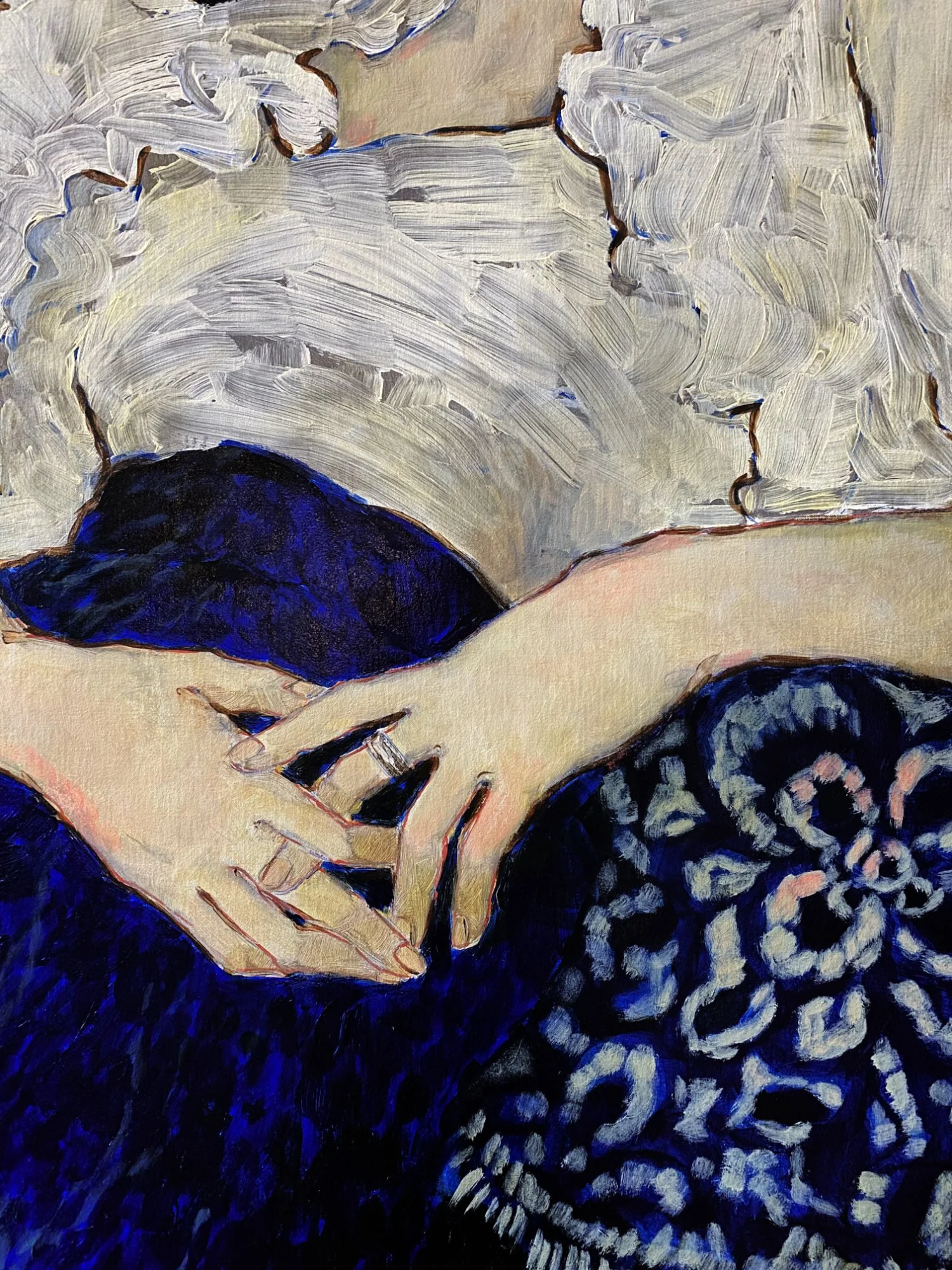


“Sing not for others but for me,
In ev’ry thought, in ev’ry strain,
Though I perchance am far from thee,
And we may never meet again:
Though I may only weep for thee,
Sing not for others but for me.
In starry night, or soft moon-beam,
In mossy bank, or rippling stream,
In balmy breeze or fragrant flower,
Though dearer hands may deck the bower,
In all that’s sweet or fair to thee,
Sing not for others but for me.
If e’er thou sing’st thy native lay,
As thou wert wont in happier day,
That lay which breath’d of love and truth,
And all the joys of early youth:
Though all those joys are past for thee,
Sing not for others, but for me.”
ELIZABETH GASKELL - 195 x 220 cm





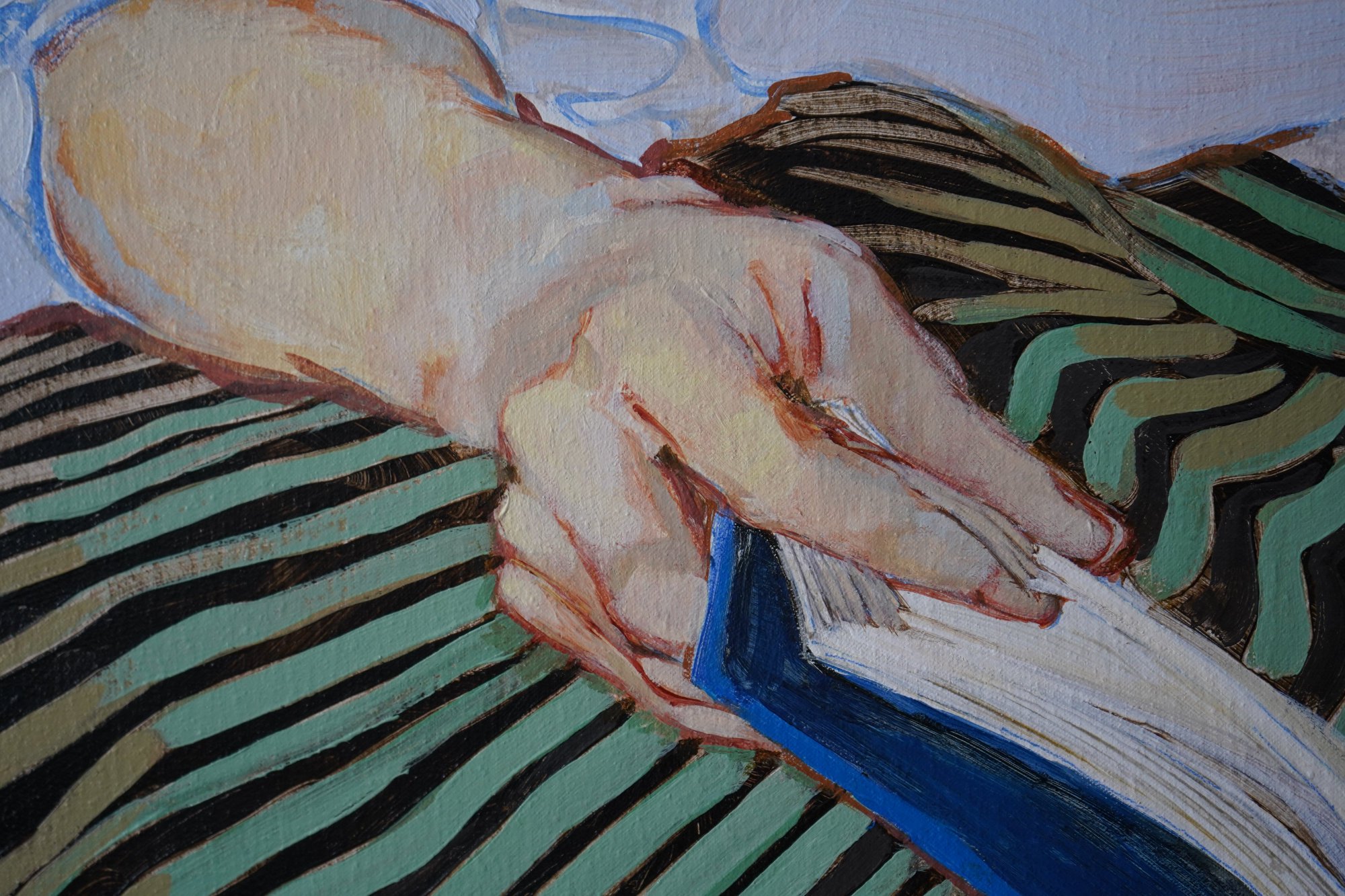

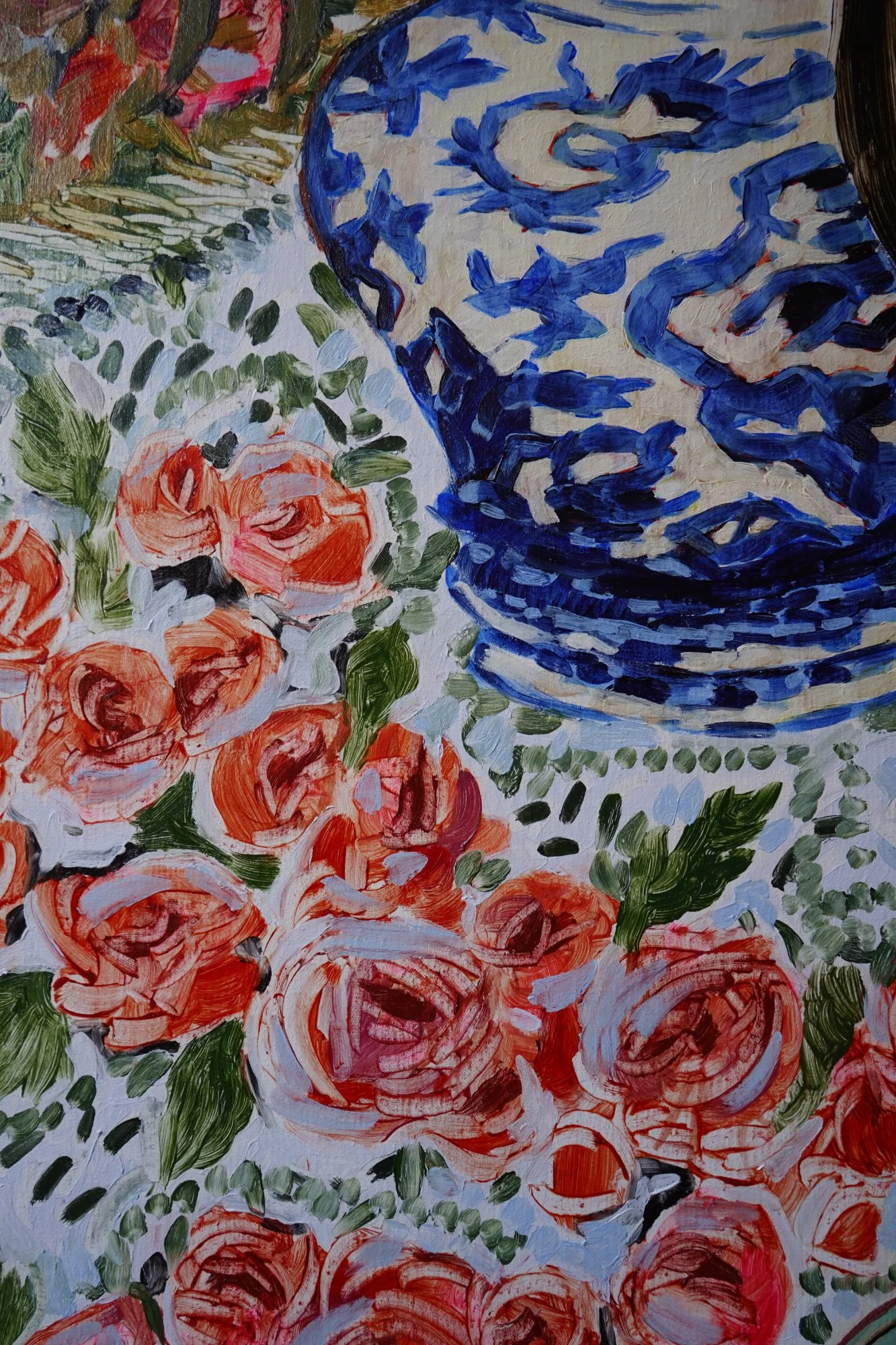


“They stood together at the top of a steep ascent, “the hill” of the hundred. At the summit there was a level space, sixty or seventy yards square, of unenclosed and broken ground, over which the golden bloom of the gorse cast a rich hue, while its delicious scent perfumed the fresh and nimble air. On one side of this common, the ground sloped down to a clear bright pond, in which were mirrored the rough sand-cliffs that rose abrupt on the opposite bank; hundreds of martens found a home there, and were now wheeling over the transparent water, and dipping in their wings in their evening sport. Indeed, all sorts of birds seemed to haunt the lonely pool; the water-wagtails were scattered around its margin, the linnets perched on the topmost sprays of the gorse- bushes, and other hidden warblers sang their vespers on the uneven ground beyond.”
TORU DUTT - 195 x 170 cm

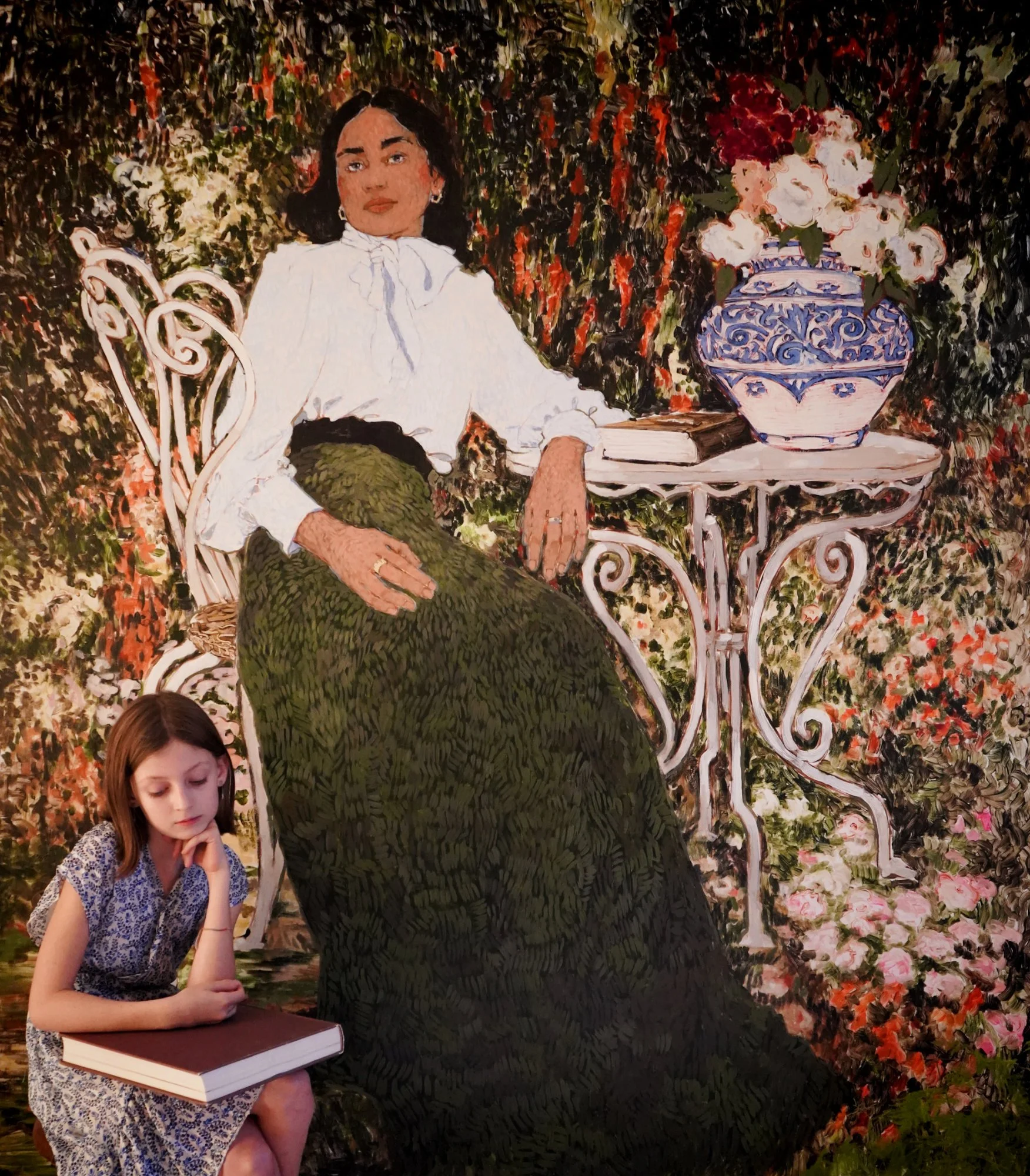







“Love came to Flora asking for a flower
That would of flowers be undisputed queen,
The lily and the rose, long, long had been
Rivals for that high honor. Bards of power
Had sung their claims. ‘The rose can never tower
Like the pale lily with her Juno mien’ -
’But is the lily lovelier?’ Thus between
Flower-factions rang the strife in Psyche’s bower.
’Give me a flower delicious as the rose
And stately as the lily in her pride’ -
But of what color?’ - ‘Rose-red,’ Love first chose,
Then prayed - ‘No, lily-white - or, both provide;’
And Flora gave the lotus, ‘rose-red’ dyed,
And ‘lily-white’ - the queenliest flower that blows”
JANE AUSTEN - 195 x 220 cm








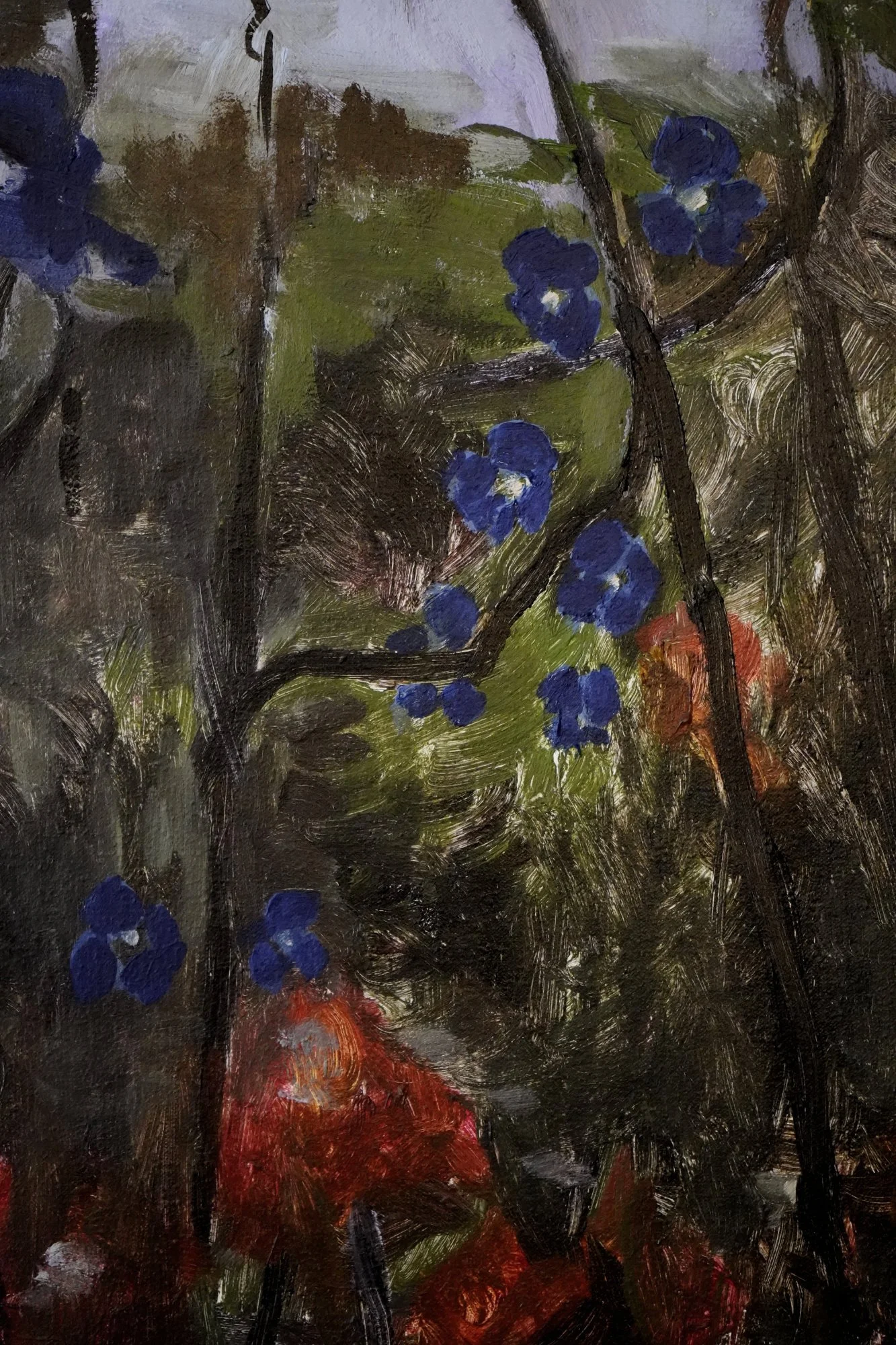

“I can listen no longer in silence. I must speak to you by such means as are within my reach. You pierce my soul. I am half agony, half hope. Tell me not that I am too late, that such precious feelings are gone for ever. I offer myself to you again with a heart even more your own than when you almost broke it, eight years and a half ago. Dare not say that man forgets sooner than woman, that his love has an earlier death. I have loved none but you. Unjust I may have been, weak and resentful I have been, but never inconstant. You alone have brought me to Bath. For you alone, I think and plan. Have you not seen this? Can you fail to have understood my wishes? I had not waited even these ten days, could I have read your feelings, as I think you must have penetrated mine. I can hardly write. I am every instant hearing something which overpowers me. You sink your voice, but I can distinguish the tones of that voice when they would be lost on others. Too good, too excellent creature! You do us justice, indeed. You do believe that there is true attachment and constancy among men. Believe it to be most fervent, most undeviating, in F. W.”
ELIZABETH BARRETT BROWNING - 195 x 130 cm









JANE MORRIS - 195 x 130 cm








“Sonnet XI: The Love-Letter
Warmed by her hand and shadowed by her hair
As close she leaned and poured her heart through thee,
Whereof the articulate throbs accompany
The smooth black stream that makes thy whiteness fair,—
Sweet fluttering sheet, even of her breath aware,—
Oh let thy silent song disclose to me
That soul wherewith her lips and eyes agree
Like married music in Love’s answering air.
Fain had I watched her when, at some fond thought,
Her bosom to the writing closelier press’d,
And her breast’s secrets peered into her breast;
When, through eyes raised an instant, her soul sought
My soul, and from the sudden confluence caught
The words that made her love the loveliest.”
VIRGINIA WOOLF - 165 x 190 cm
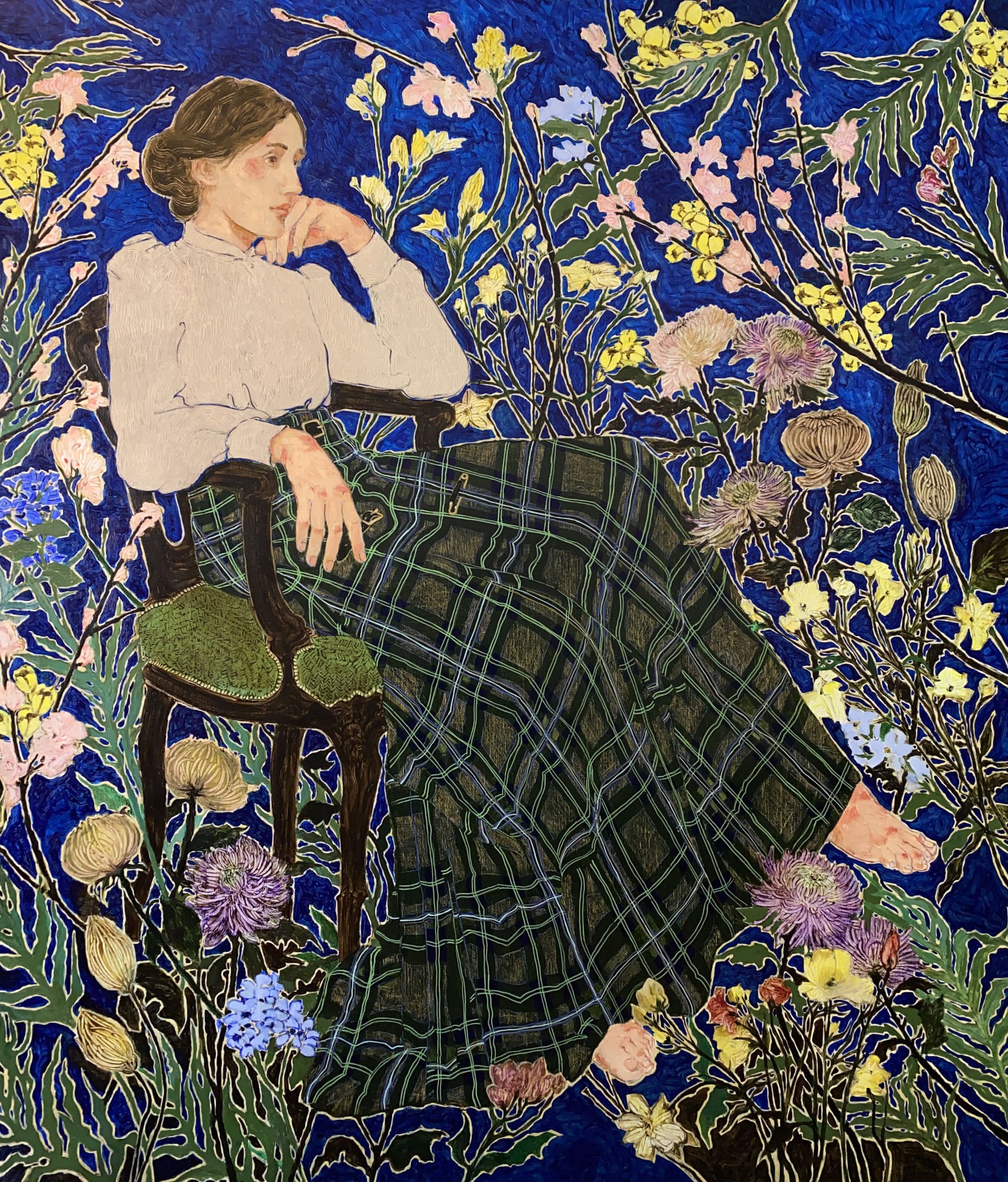
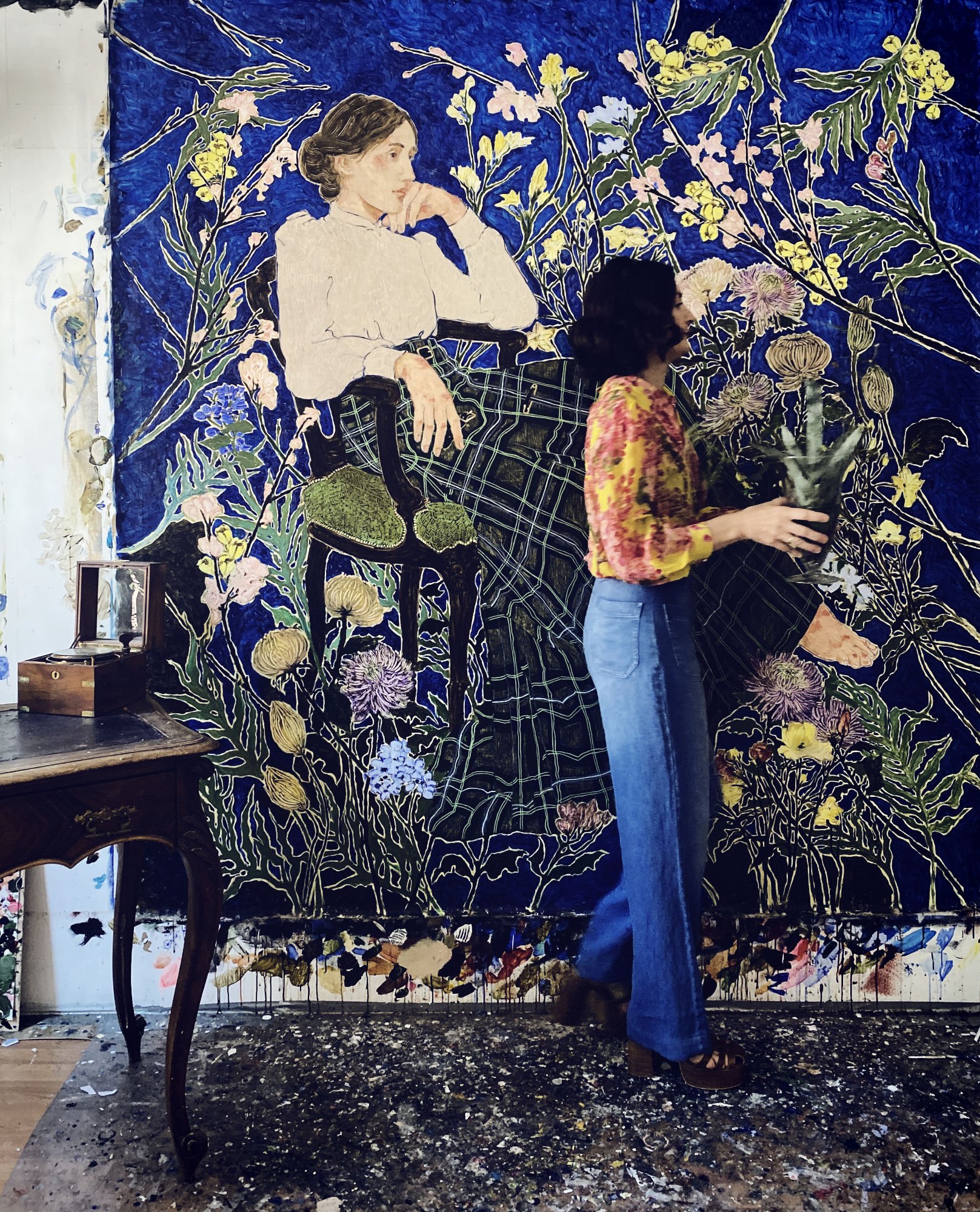
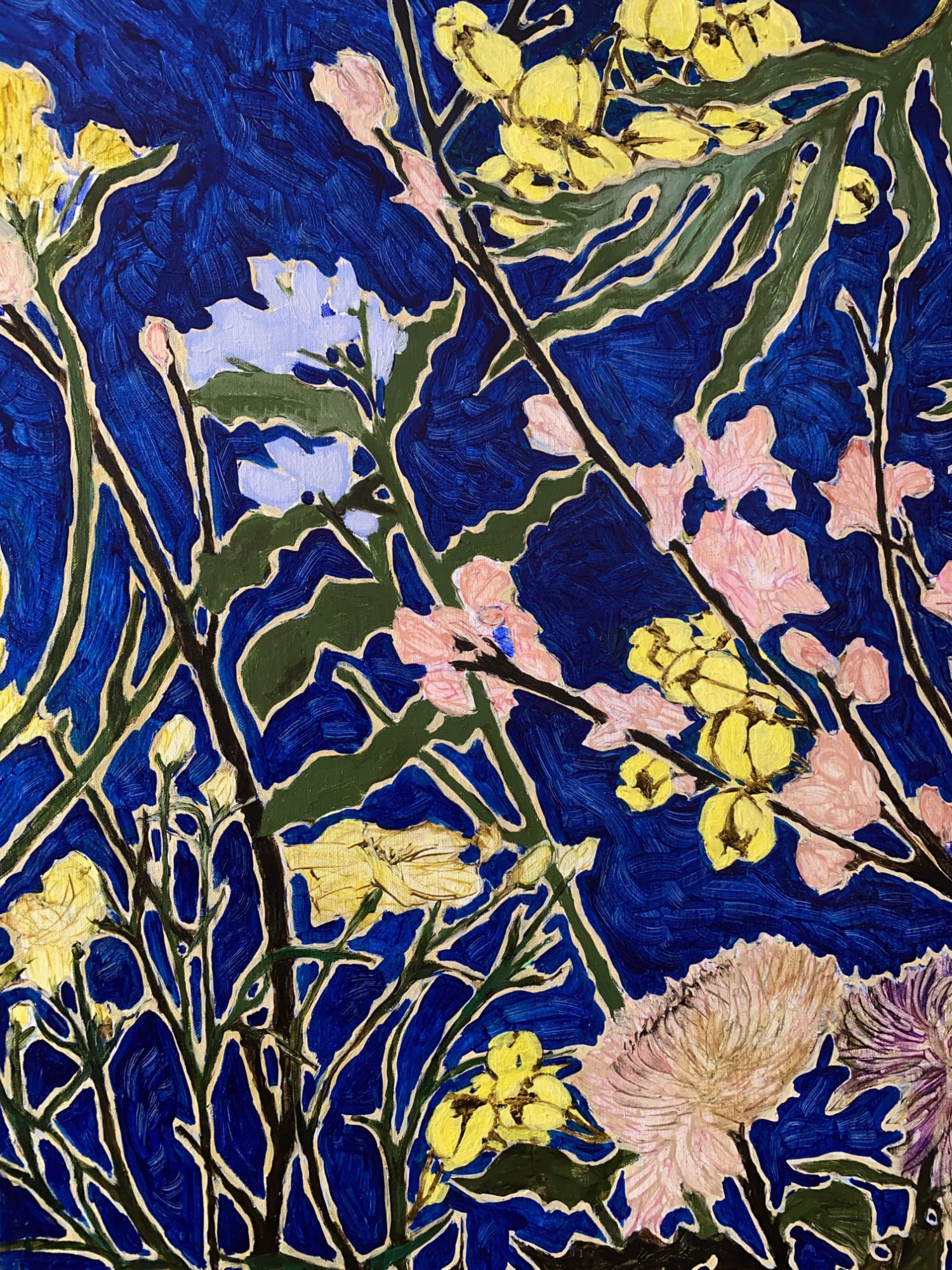
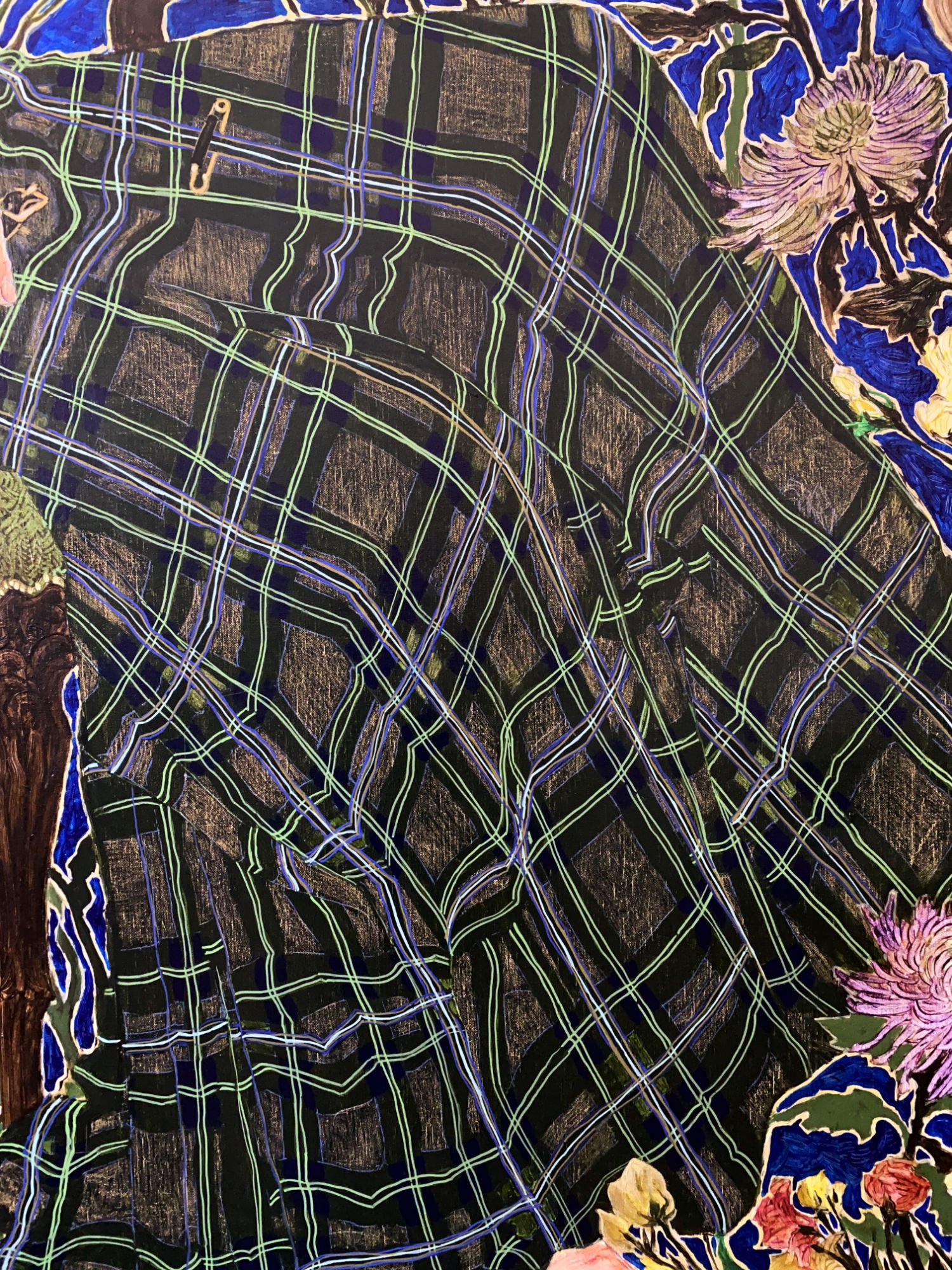
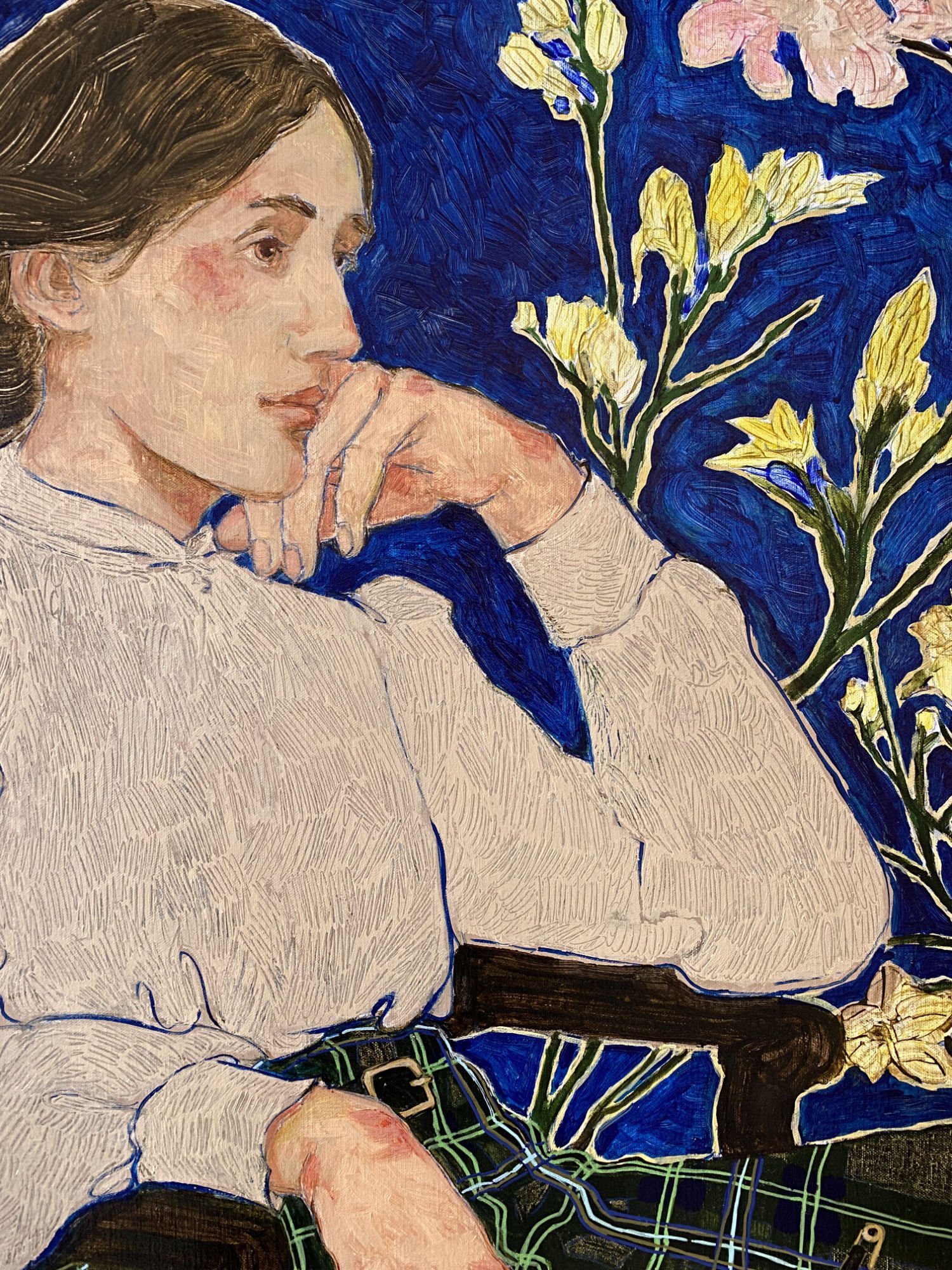
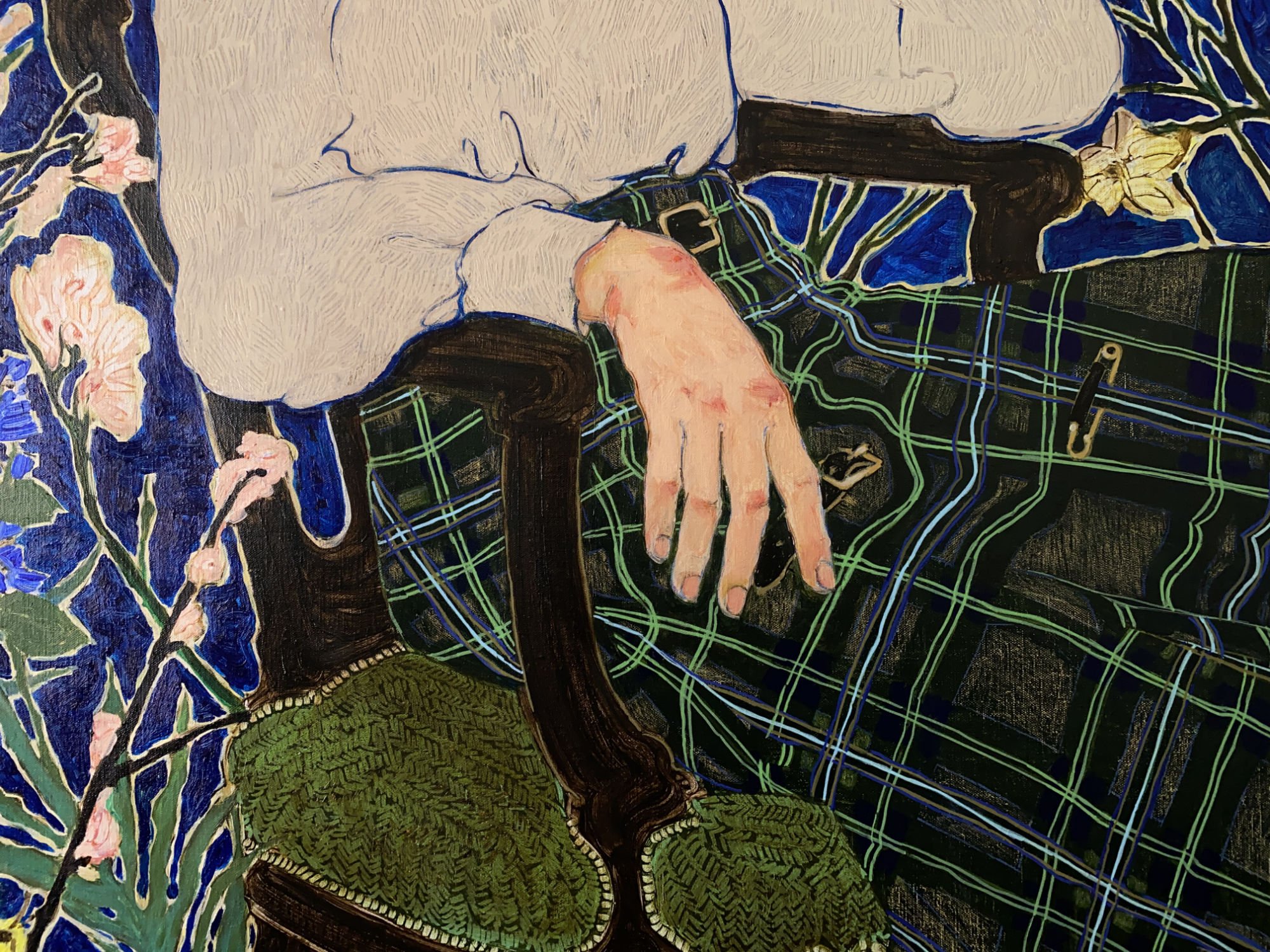
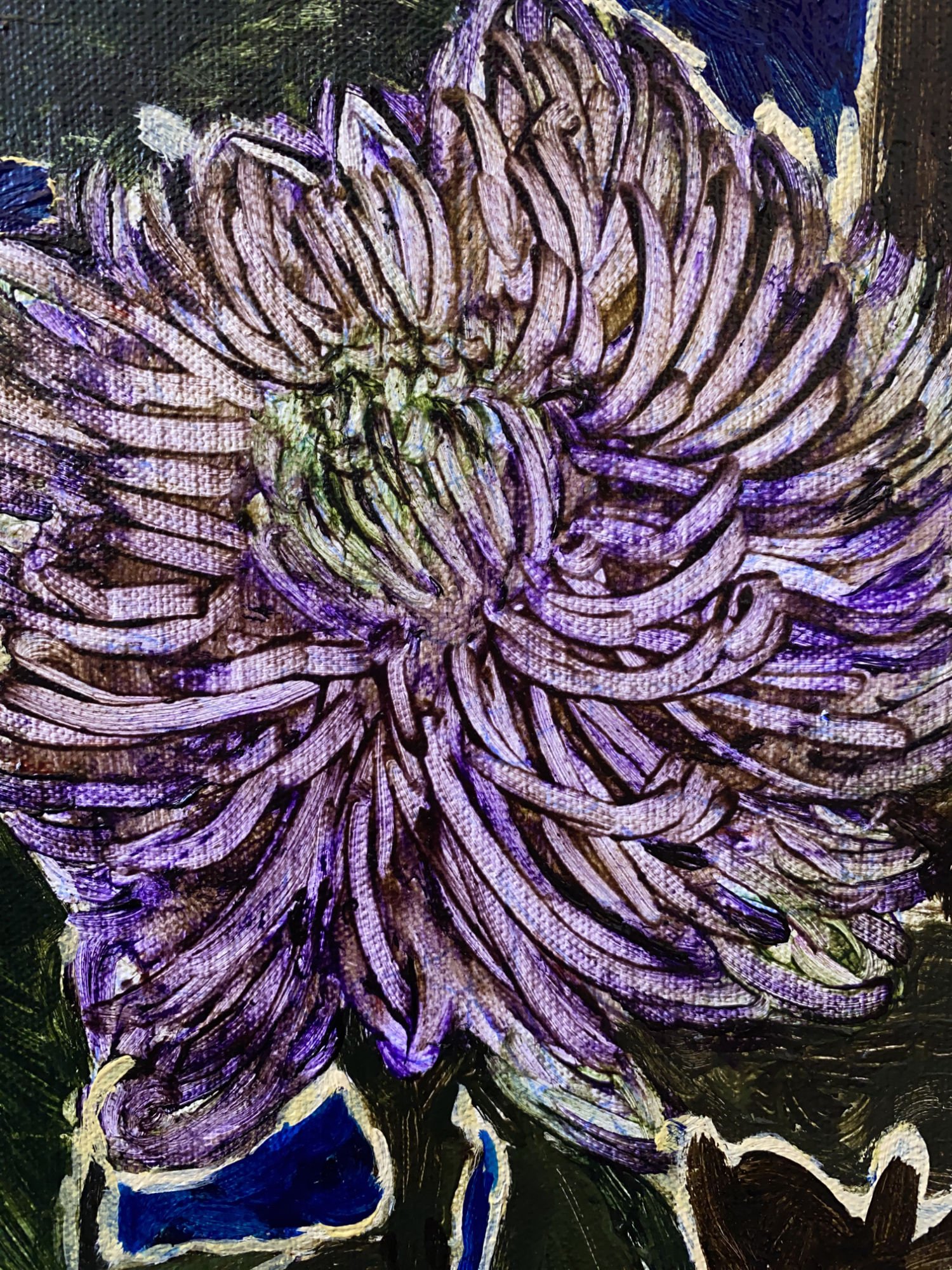
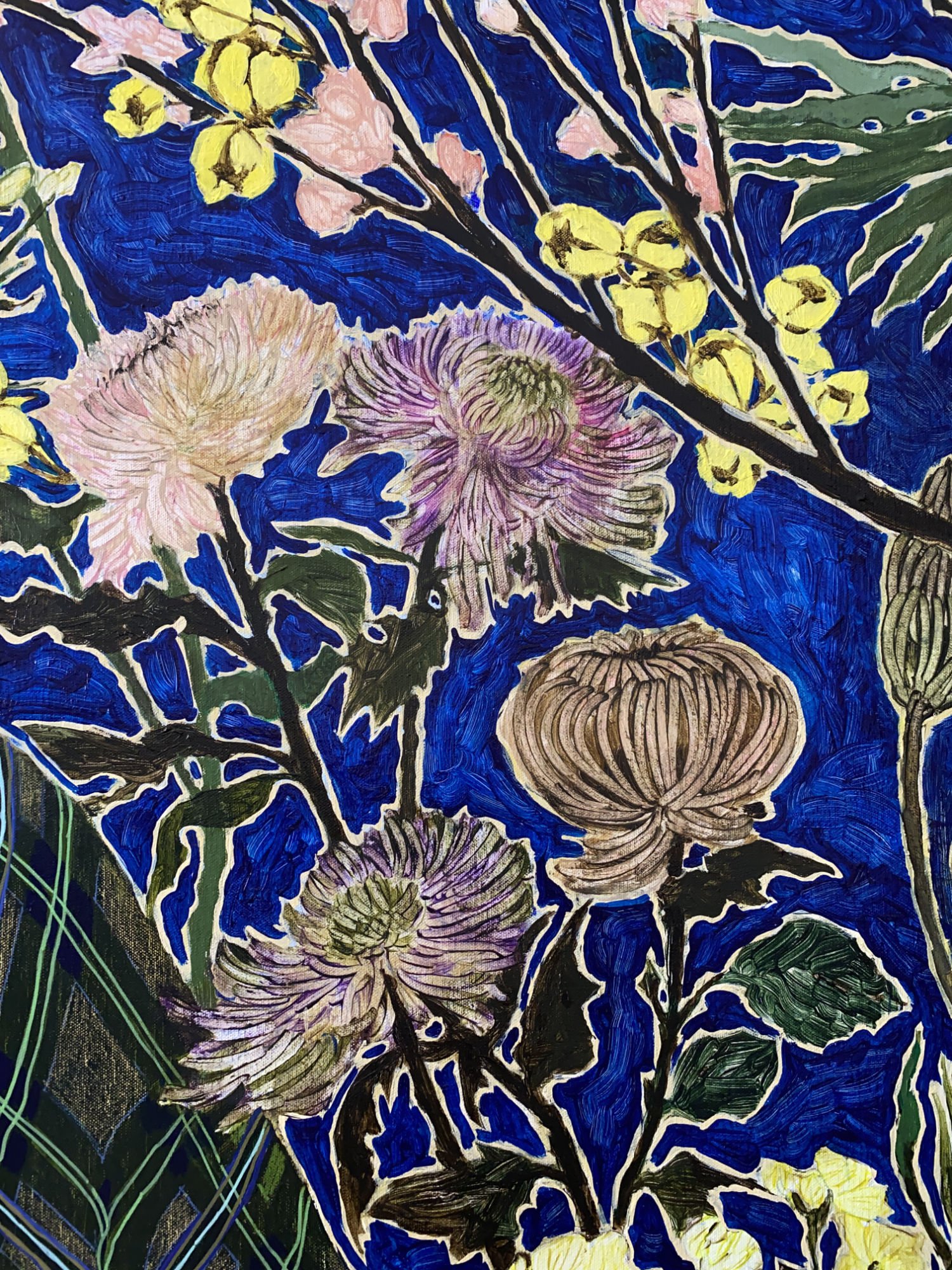
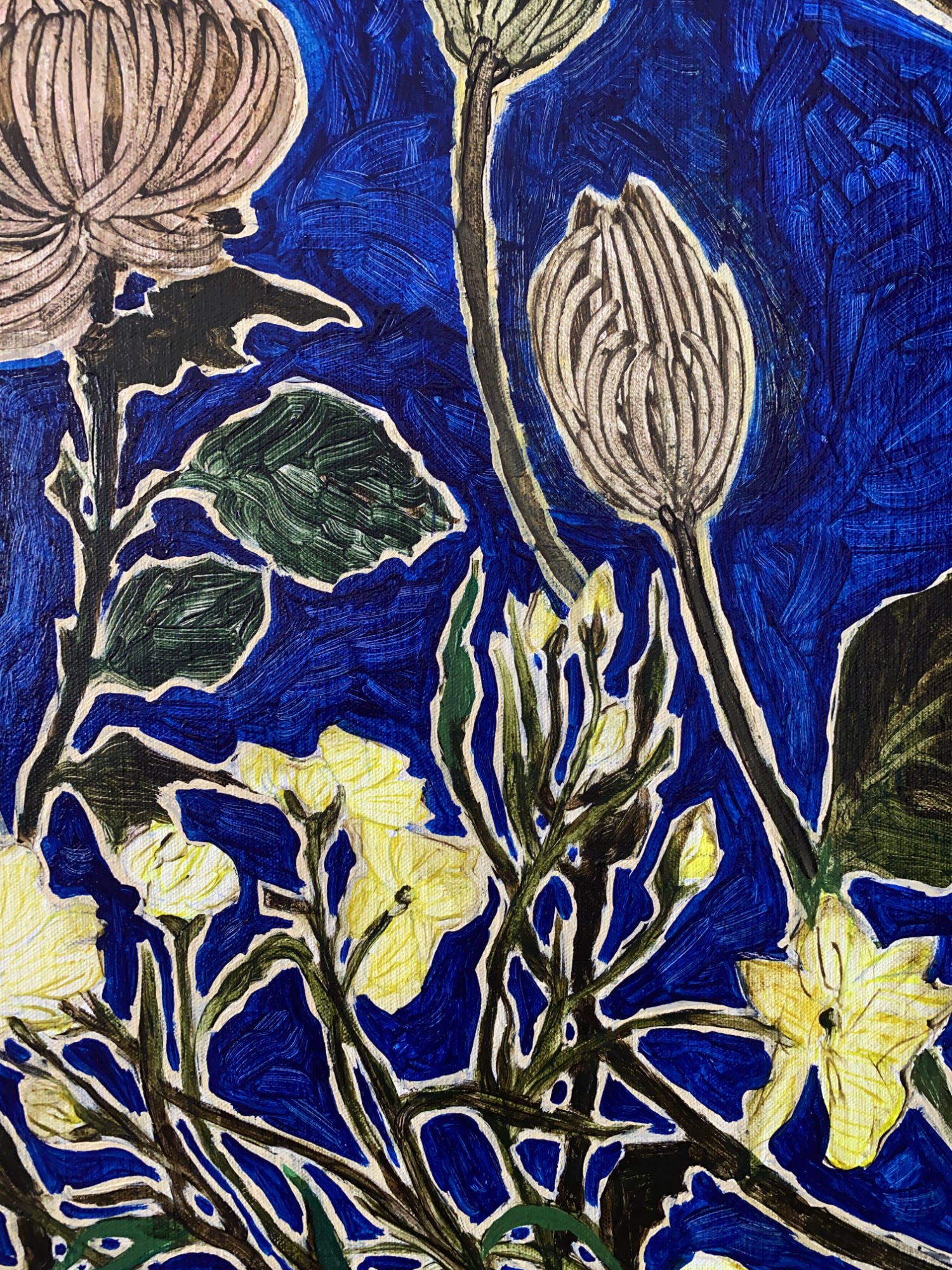
“But for all that there was something odd at work:
My heart is like a singing bird
Whose nest is in a water’d shoot;
My heart is like an apple tree
Whose boughs are bent with thick-set fruit—
perhaps the words of Christina Rossetti were partly responsible for the folly of the fancy—it was nothing of course but a fancy—that the lilac was shaking its flowers over the garden walls, and the brimstone butterflies were scudding hither and thither, and the dust of the pollen was in the air. A wind blew, from what quarter I know not, but it lifted the half-grown leaves so that there was a flash of silver grey in the air. It was the time between the lights when colours undergo their intensification and purples and golds burn in window-panes like the beat of an excitable heart; when for some reason the beauty of the world revealed and yet soon to perish (here I pushed into the garden, for, unwisely, the door was left open and no beadles seemed about), the beauty of the world which is so soon to perish, has two edges, one of laughter, one of anguish, cutting the heart asunder. The gardens of Fernham lay before me in the spring twilight, wild and open, and in the long grass, sprinkled and carelessly flung, were daffodils and bluebells, not orderly perhaps at the best of times, and now wind-blown and waving as they tugged at their roots. The windows of the building, curved like ships’ windows among generous waves of red brick, changed from lemon to silver under the flight of the quick spring clouds.”
EMILY BRONTE - 195 x 170 cm









“I cannot express it; but surely you and everybody have a notion that there is or should be an existence of yours beyond you. What were the use of my creation, if I were entirely contained here? My great miseries in this world have been Heathcliff’s miseries, and I watched and felt each from the beginning: my great thought in living is himself. If all else perished , and he remained, I should still continue to be; and if all else remained, and he were annihilated, the universe would turn to a mighty stranger: I should not seem a part of it. My love for Linton is like the foliage in the woods: time will change it, I’m well aware, as winter changes the trees. My love for Heathcliff resembles the eternal rocks beneath: a source of little visible delight, but necessary. Nelly, I am Heathcliff! He’s always, always in my mind: not as a pleasure, any more than I am always a pleasure to myself, but as my own being.”
COLETTE - 195 x 130 cm









“...The first stir of spring is such a solemn thing that the accession of the rose, coming after it, is celebrated with less fervour. Yet everything is permitted to the rose: splendour, conspiring scents, petals with flesh that tempts the nostrils, the lips, the teeth. But all has been said, everything has been born already in any year when once the rose has entered it; the first rose but heralds all the other roses that must follow. How assured, and how easy to love it is! Riper than fruit, more sensuous than cheek or breast. Every painter’s brush has painted it and will go on painting it. I have twenty portraits of it, like everyone else. Plump roses, cabbage roses, flat roses like the roses of Persia ....
Rose, increasing your dimensions, shrinking once more, perverted, disguised, and docile in the capricious hands of man, you still have the power, despite all this, to draw out from us, to calm in us all that remains of lover’s old madness. Rose, it is right that you should be the final ember around which the circle of former lovers gathers in contemplation. If they are seized by the great shiver that comes with spring, and if they sigh, ‘I am trembling with the cold,’ you may be sure that more than one is listening within himself to the long confession of yesteryear: ‘I am trembling with morning, with March, with flight, with hope that has no face, with sprouting seeds, and with forgetfulness . . . I am trembling with hyacinths, with hawthorn flowers, with tears ...”
H.MARTINEAU - 130 x 195 cm










“There is the same human heart everywhere,—the universal growth of mind and life,—ready to open to the sunshine of sympathy, flourishing in the enclosures of cities, and blossoming wherever dropped in the wilderness; but folding up when touched by chill, and drooping in gloom. As well might the Erl-king go and play the florist in the groves and plains of the tropics, as an unsympathizing man render an account of society. It will all turn to stubble and sapless rigidity before his eyes.
There is the same human heart everywhere; and, if the traveller has a good one himself, he will presently find this out, whatever may have been his fears at home of checks to his sympathy from difference of education, objects in life, &c. There is no place where people do not suffer and enjoy; where love is not the high festival of life; where birth and death are not occasions of emotion; where parents are not proud of their children; where thoughtful minds do not speculate upon the two eternities; where, in short, there is not broad ground on which any two human beings may meet and clasp hands, if they have but unsophisticated hearts. If a man have not sympathy, there is no point of the universe—none so wide even as the Mahomedan bridge over the bottomless pit—where he can meet with his fellow. Such an one is indeed floundering in the bottomless pit, with only the shadows of men ever flitting about him.”
EUPHEMIA GRAY - 145 x 190 cm
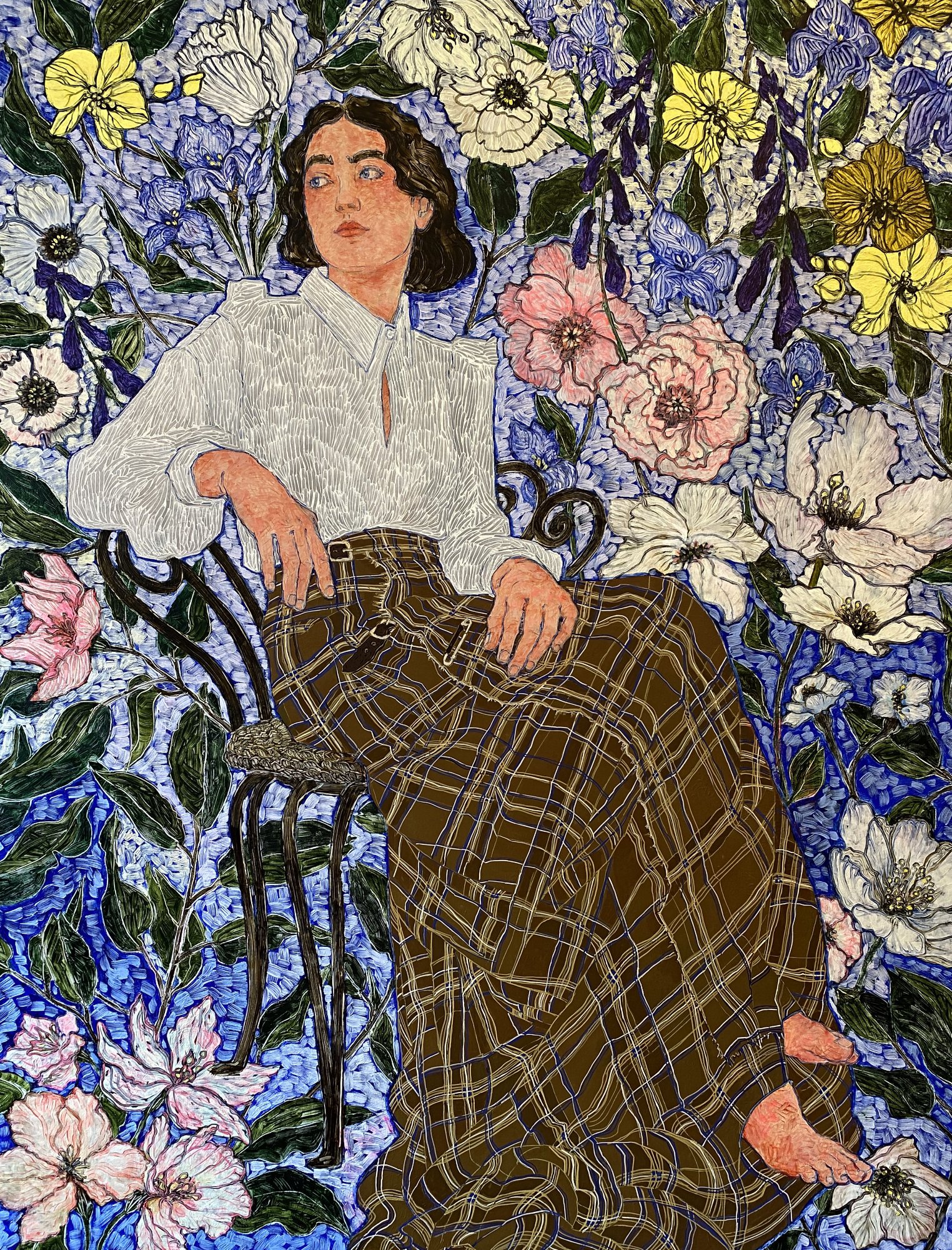
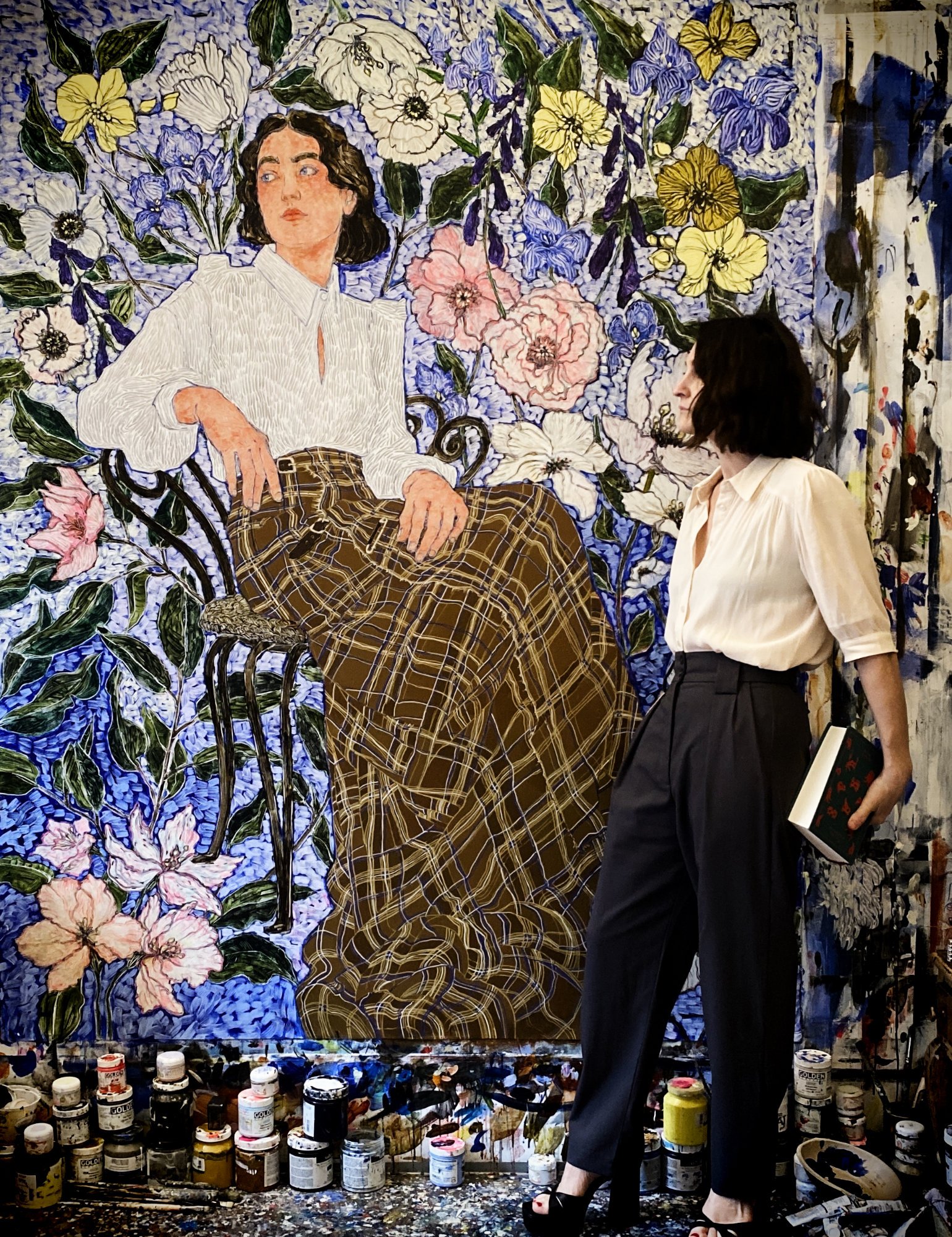
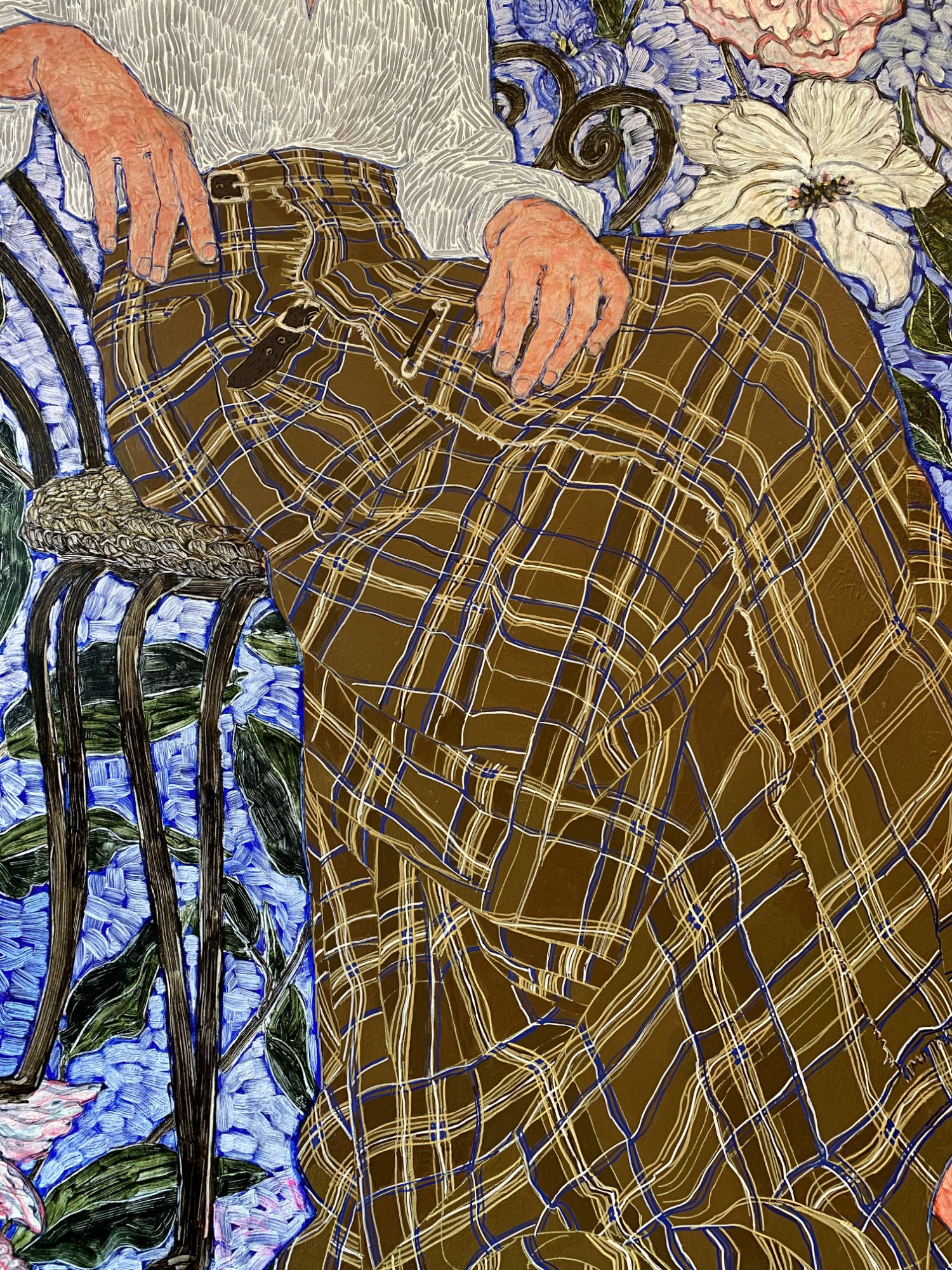
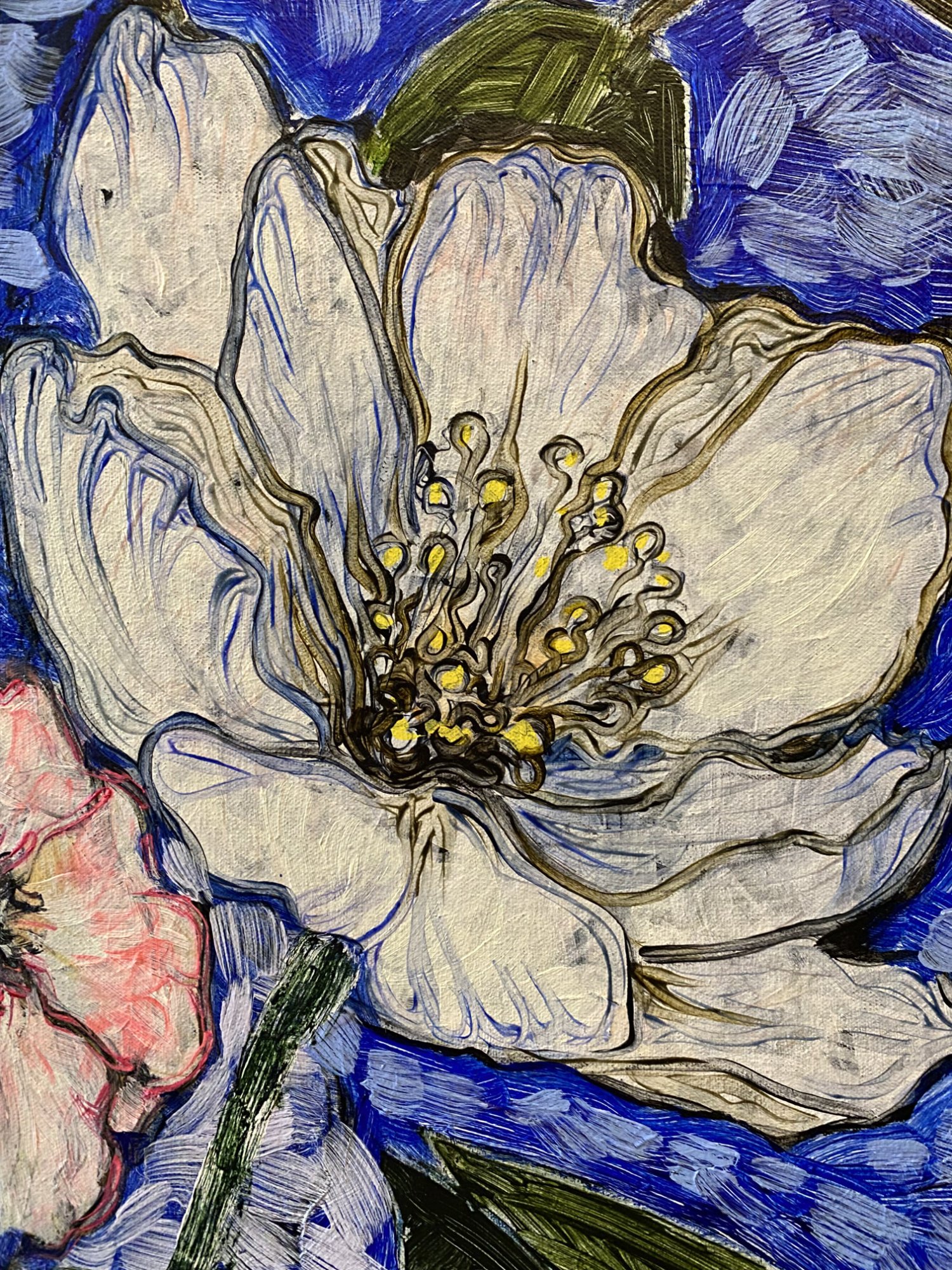
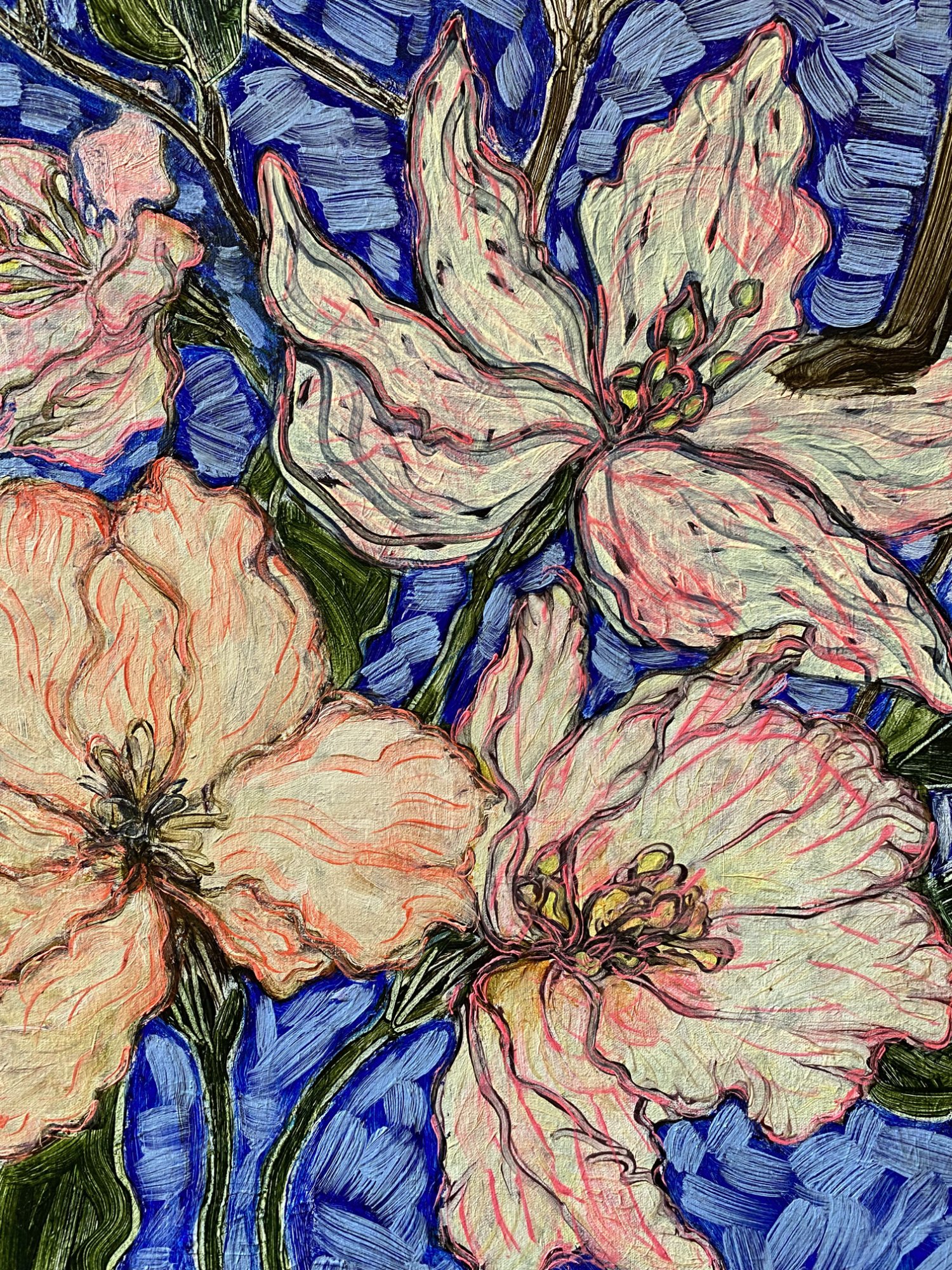

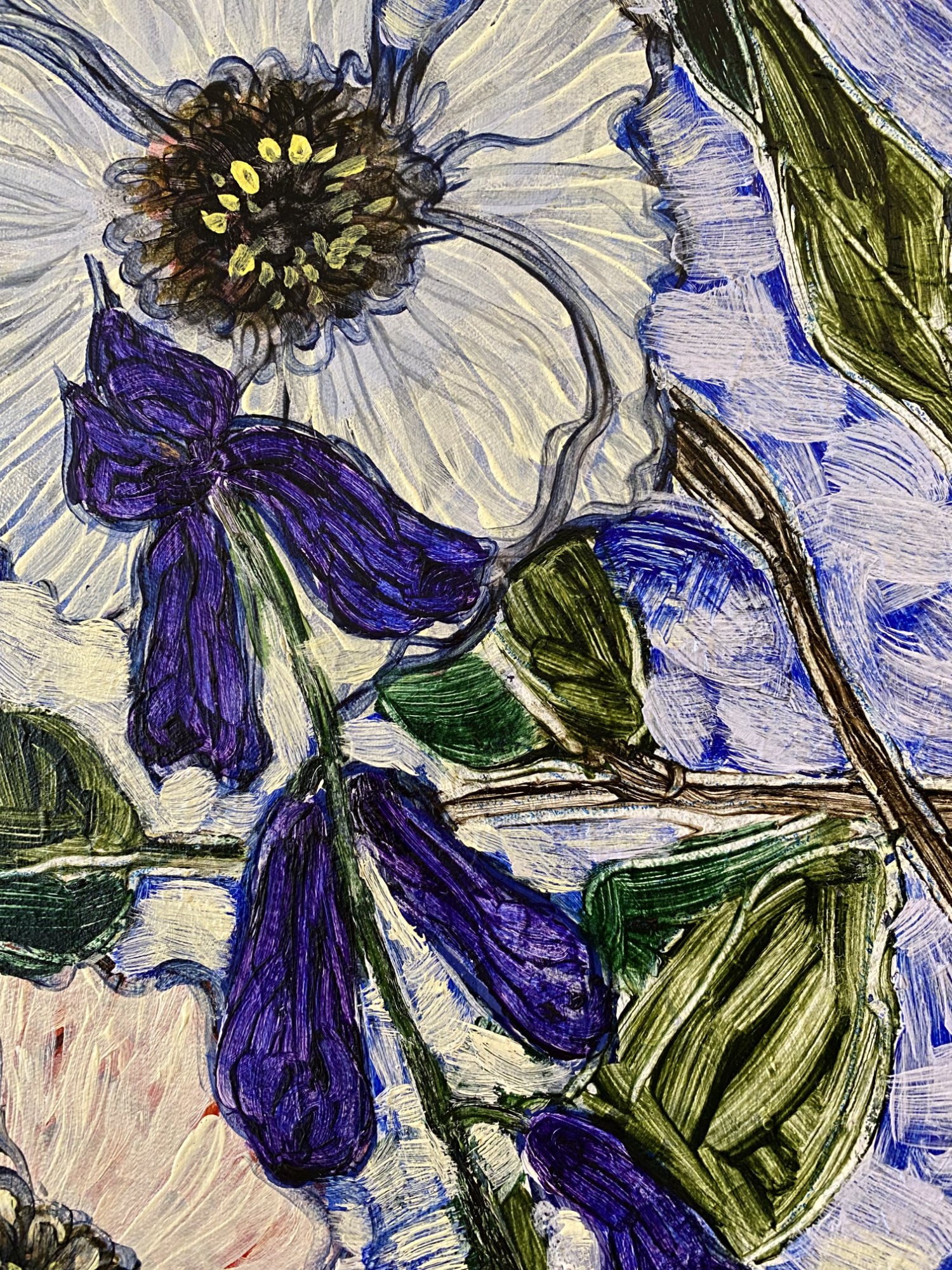
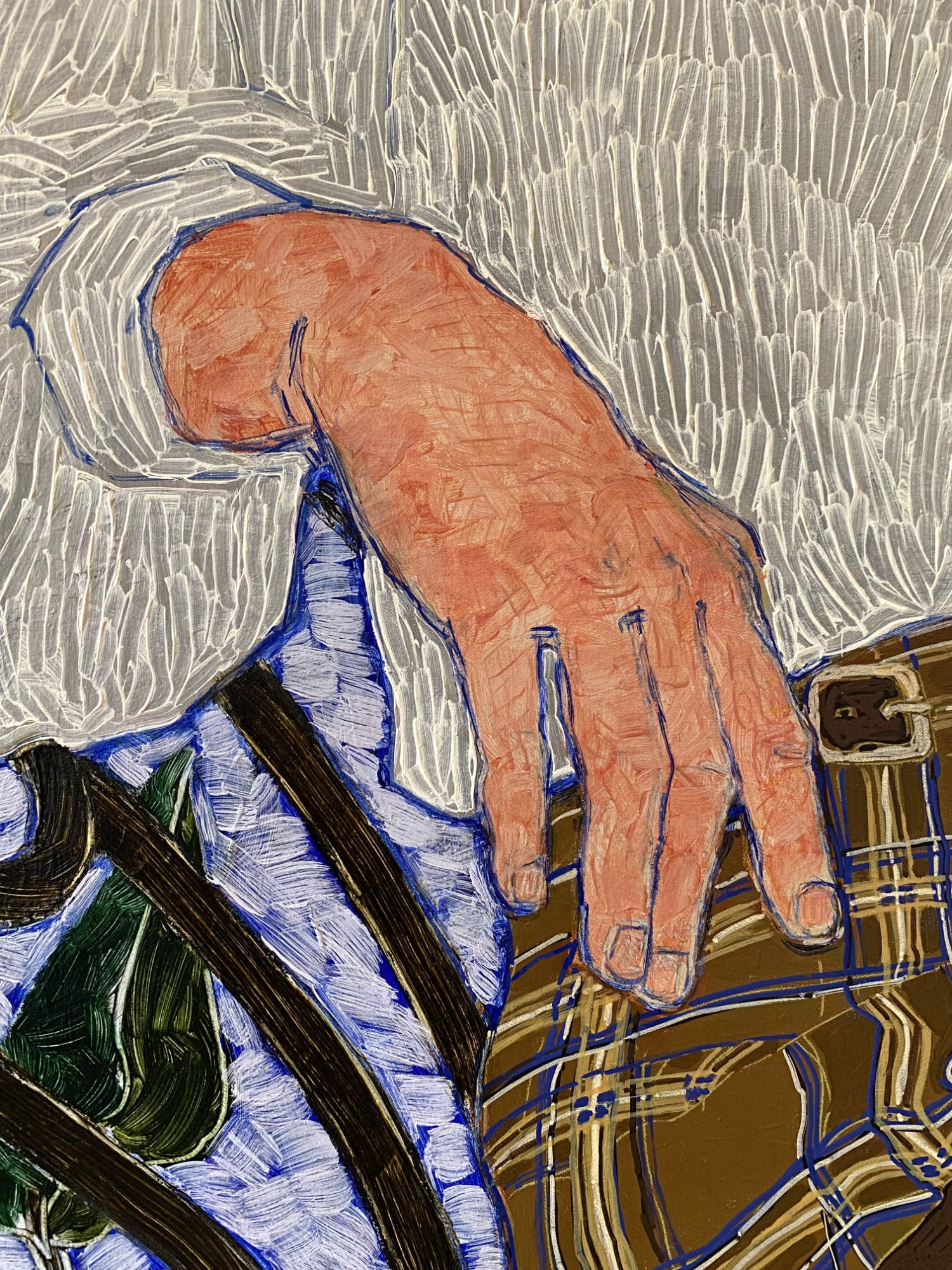

“A Pause of Thought
I looked for that which is not, nor can be,
And hope deferred made my heart sick in truth:
But years must pass before a hope of youth
Is resigned utterly.
I watched and waited with a steadfast will:
And though the object seemed to flee away
That I so longed for, ever day by day
I watched and waited still.
Sometimes I said: This thing shall be no more;
My expectation wearies and shall cease;
I will resign it now and be at peace:
Yet never gave it o’er.
Sometimes I said: It is an empty name
I long for; to a name why should I give
The peace of all the days I have to live?—
Yet gave it all the same.
Alas, thou foolish one! alike unfit
For healthy joy and salutary pain:
Thou knowest the chase useless, and again
Turnest to follow it.”
BEATRICE - 194 x 225 cm
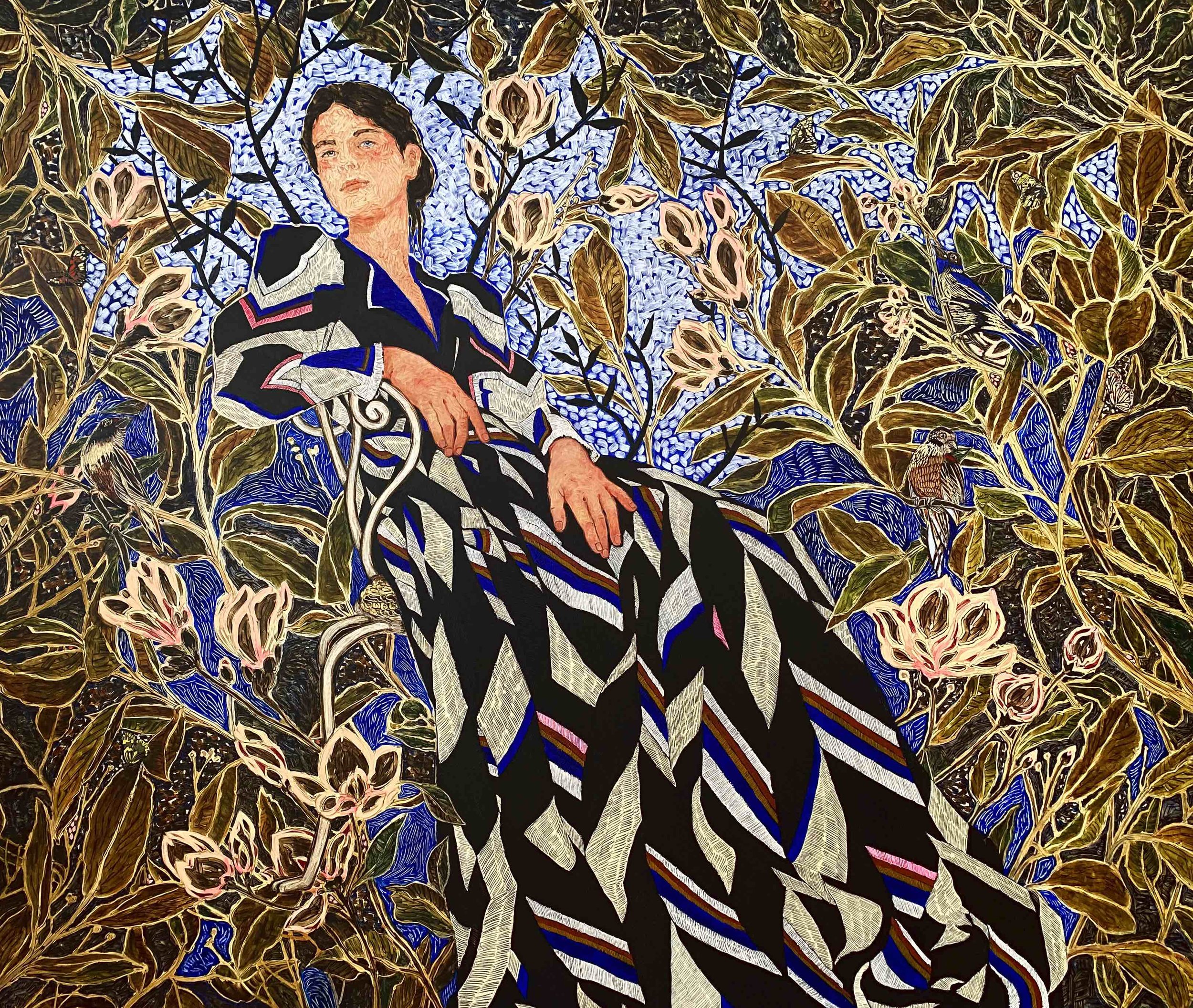

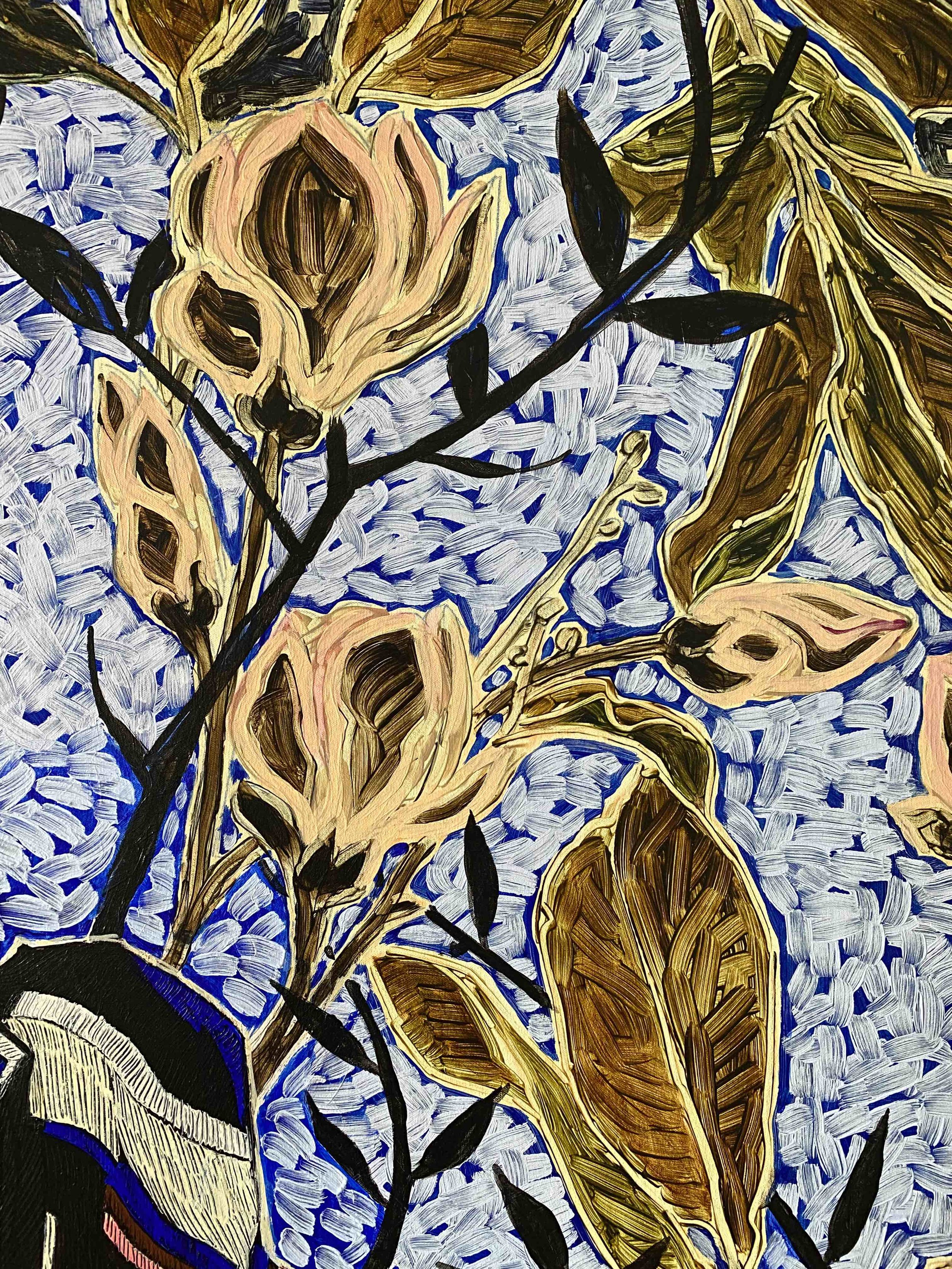

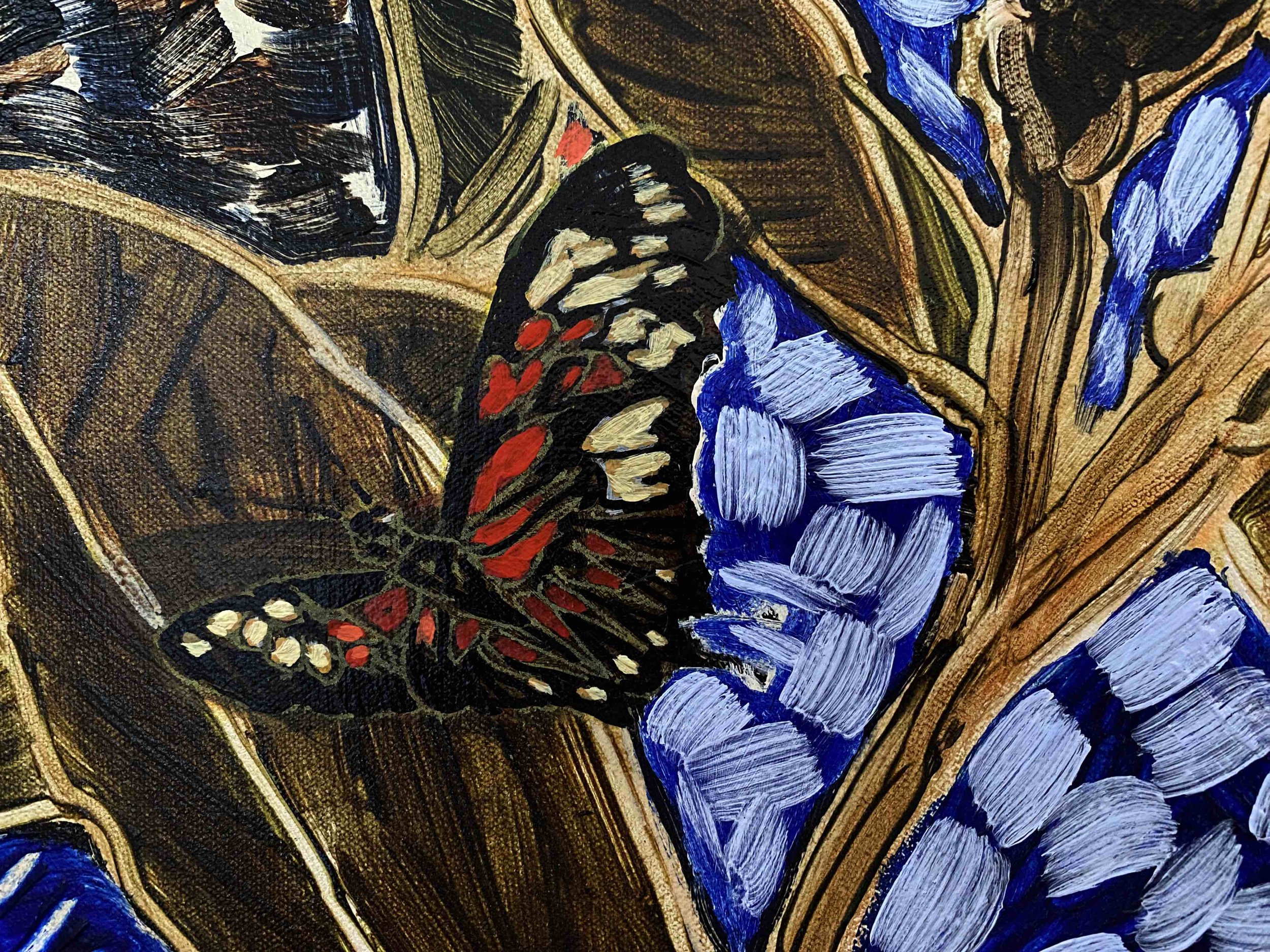
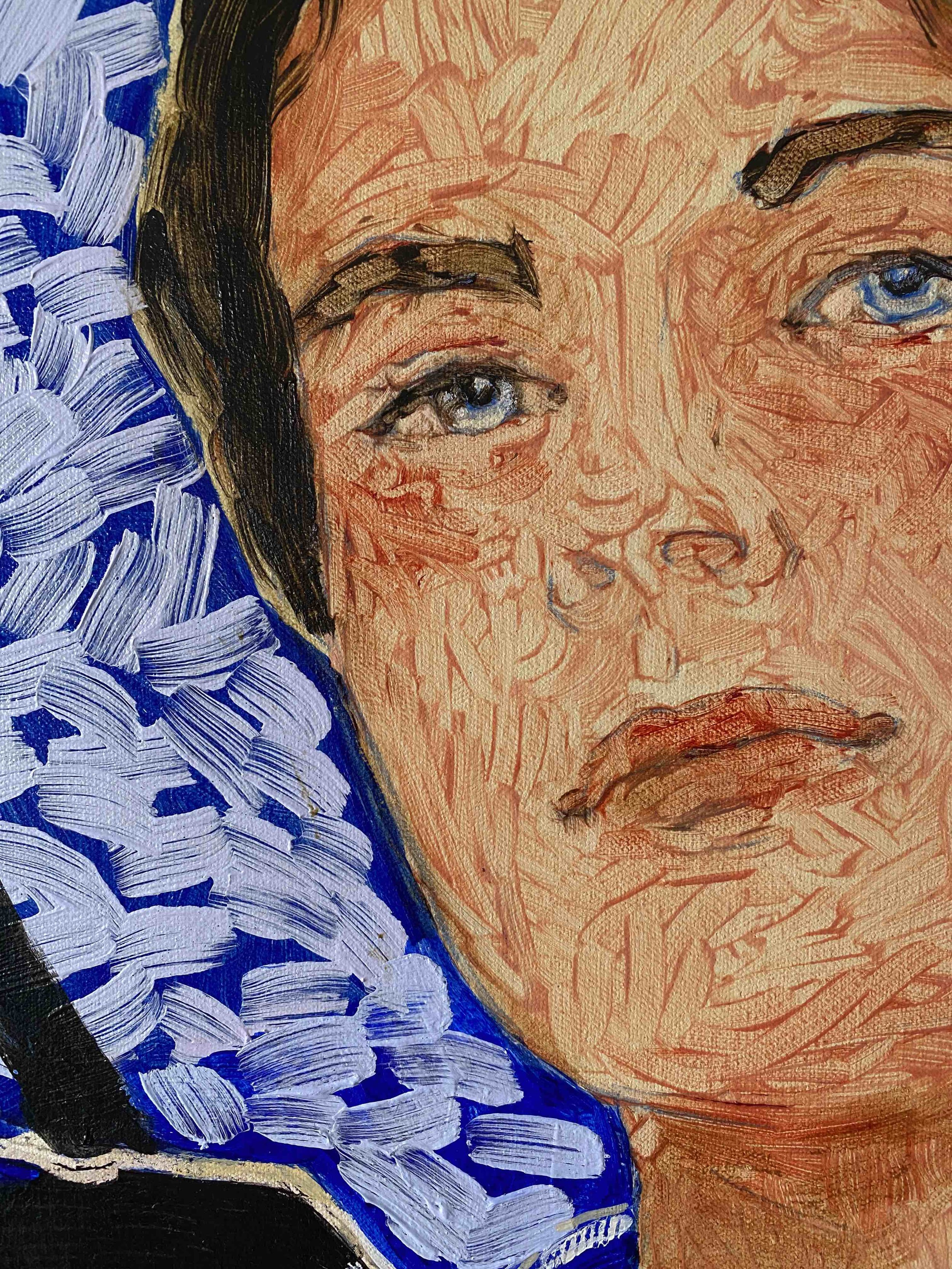
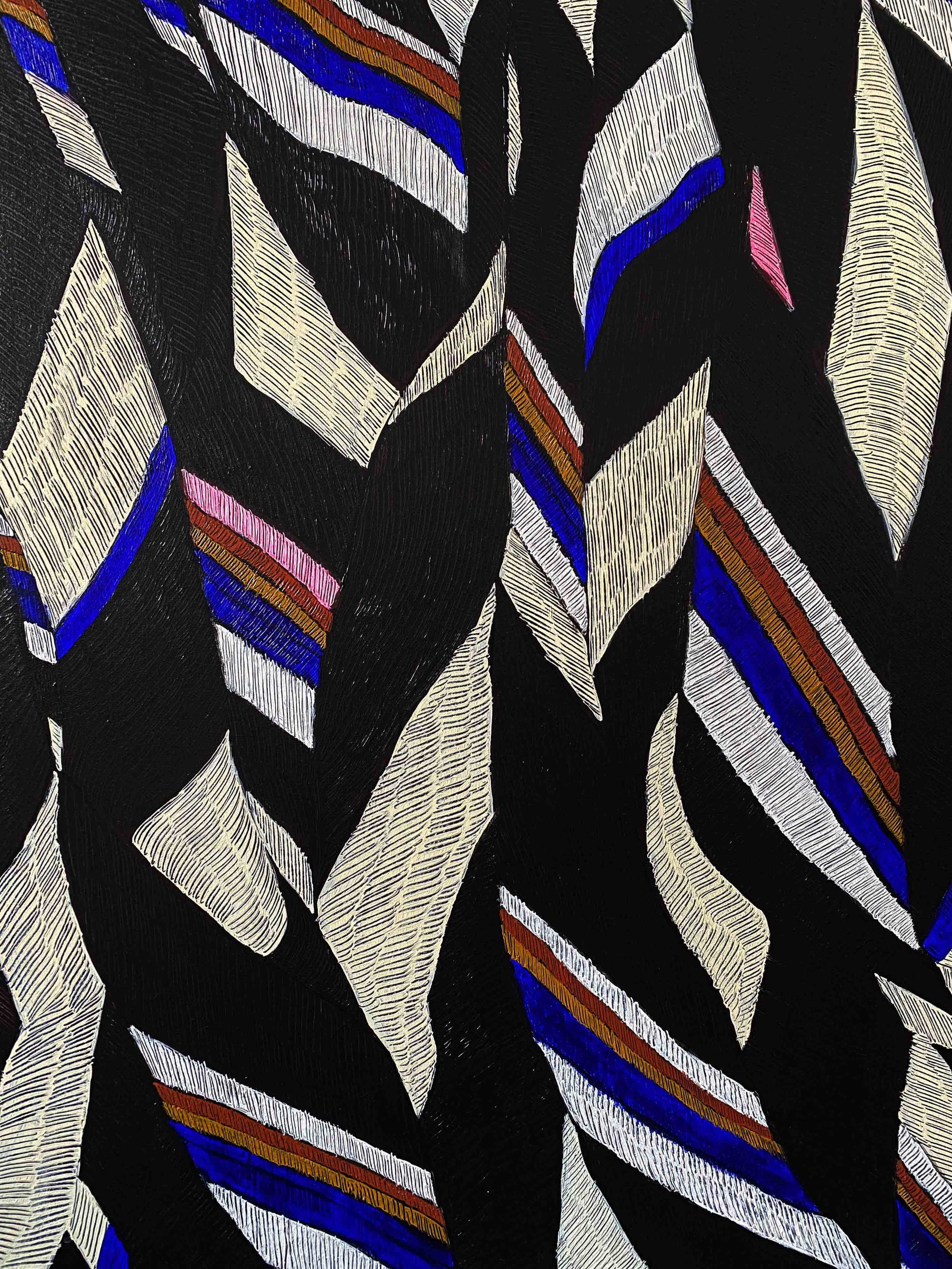
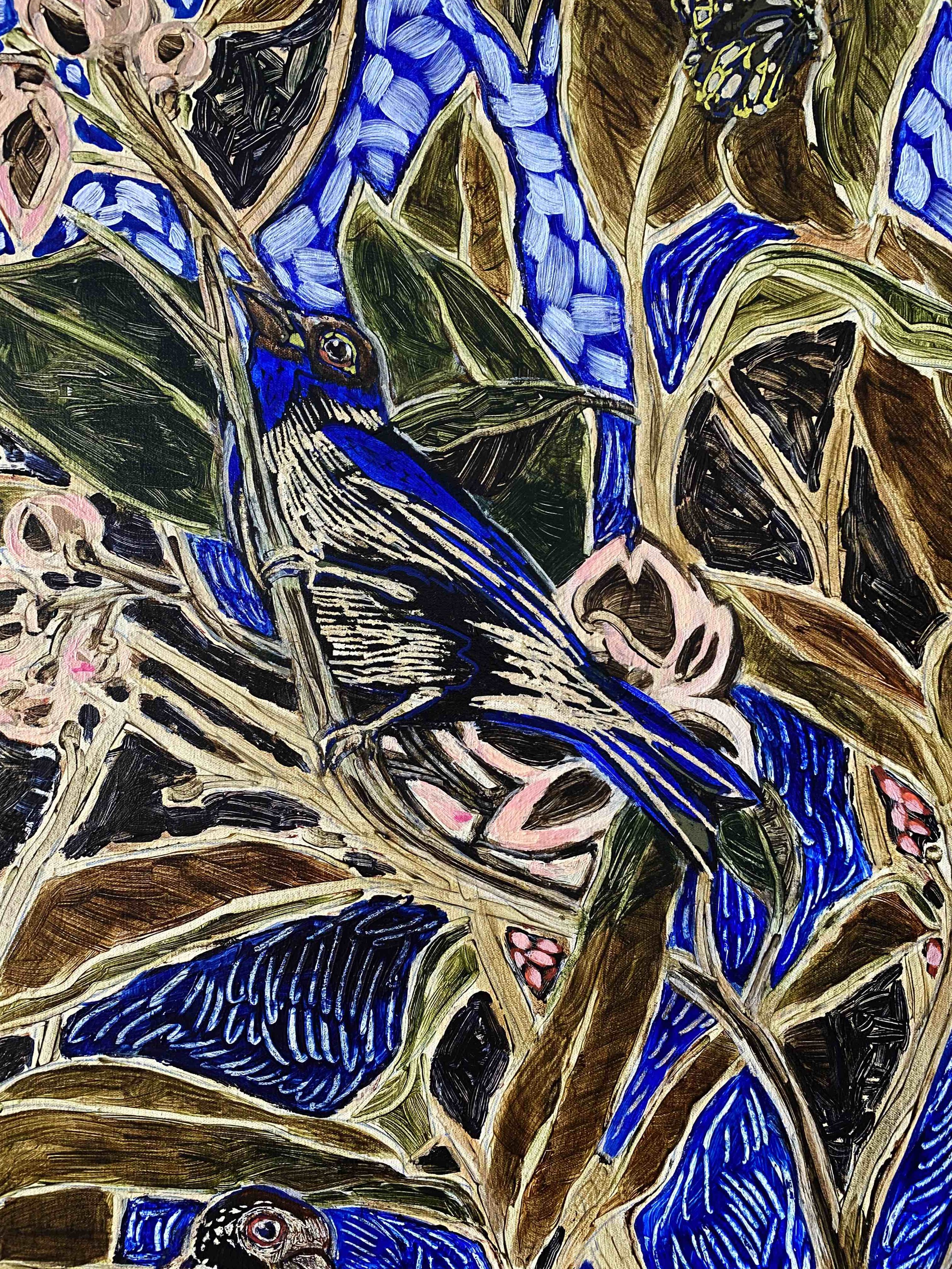
“Last All Saints’ holy-day, even now gone by,
I met a gathering of damozels:
She that came first, as one doth who excels,
Had Love with her, bearing her company:
A flame burned forward through her steadfast eye.
As when in living fire a spirit dwells:
So, gazing with the boldness which prevails
O’er doubt, I knew an angel visibly.
As she passed on, she bowed her mild approof
And salutation to all men of worth,
Lifting the soul to solemn thoughts aloof.
In Heaven itself that lady had her birth,
I think, and is with us for our behoof:
Blessed are they who meet her on the earth.”
MARY WOLLSTONECRAFT - 170 x 190 CM
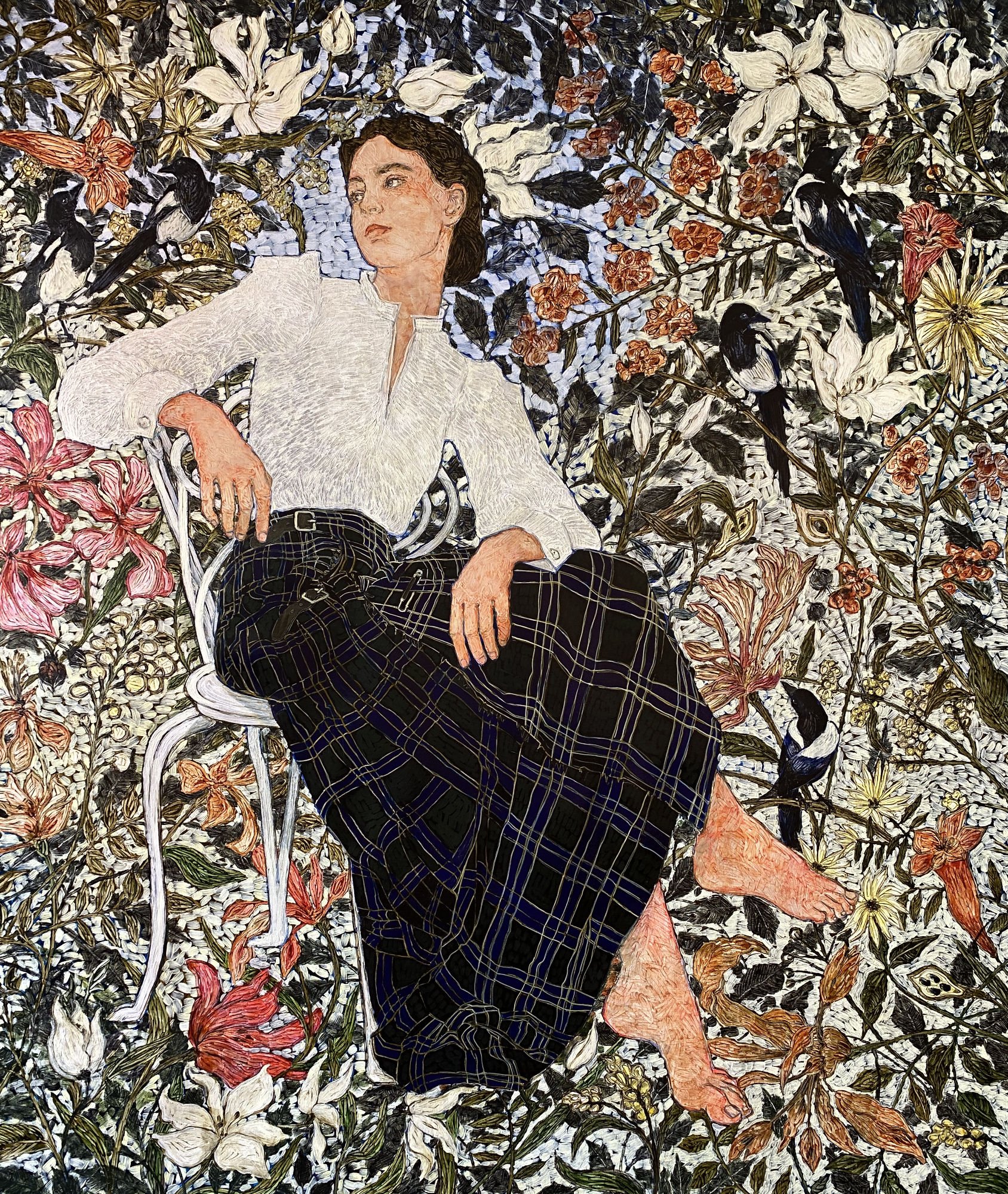
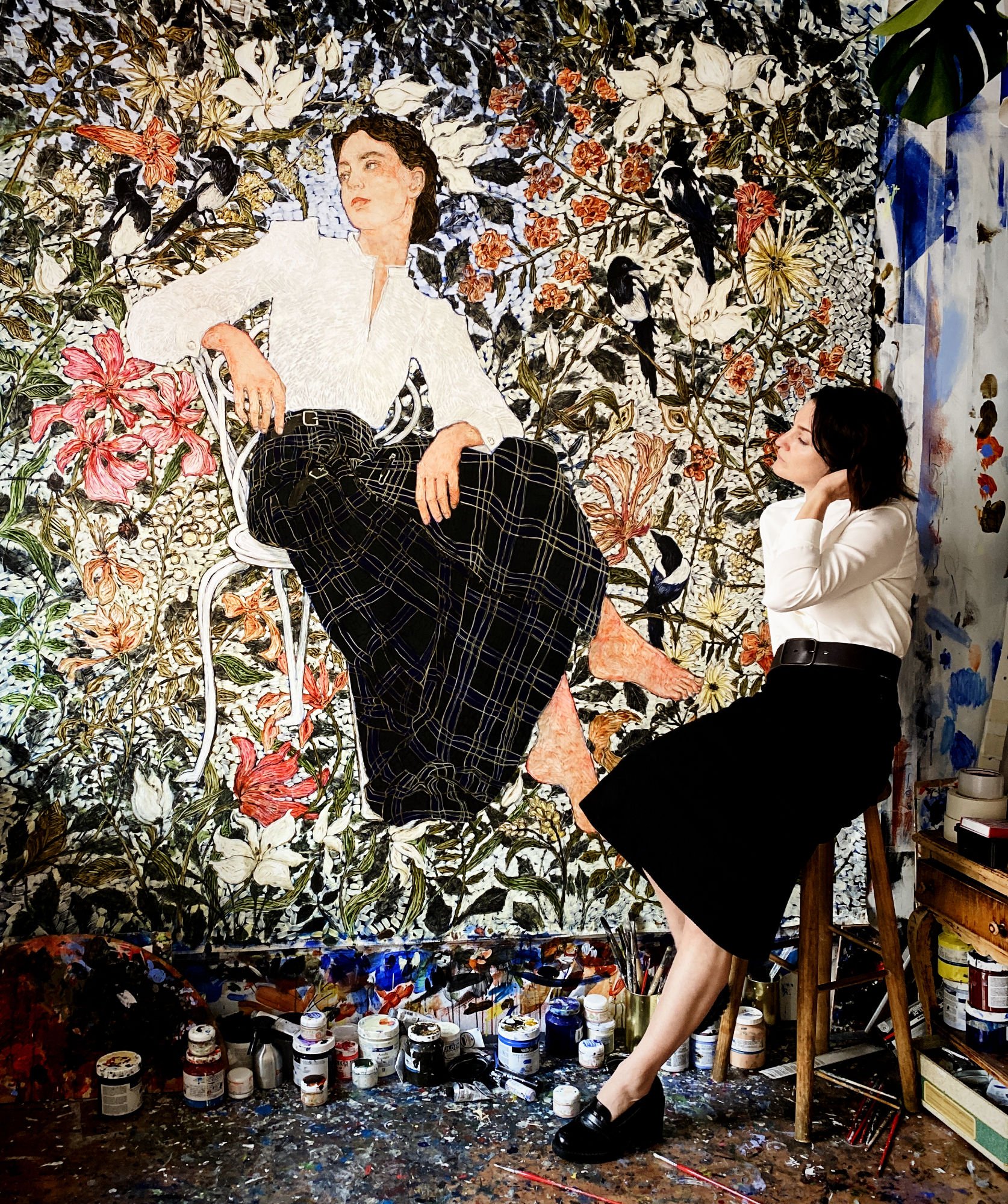
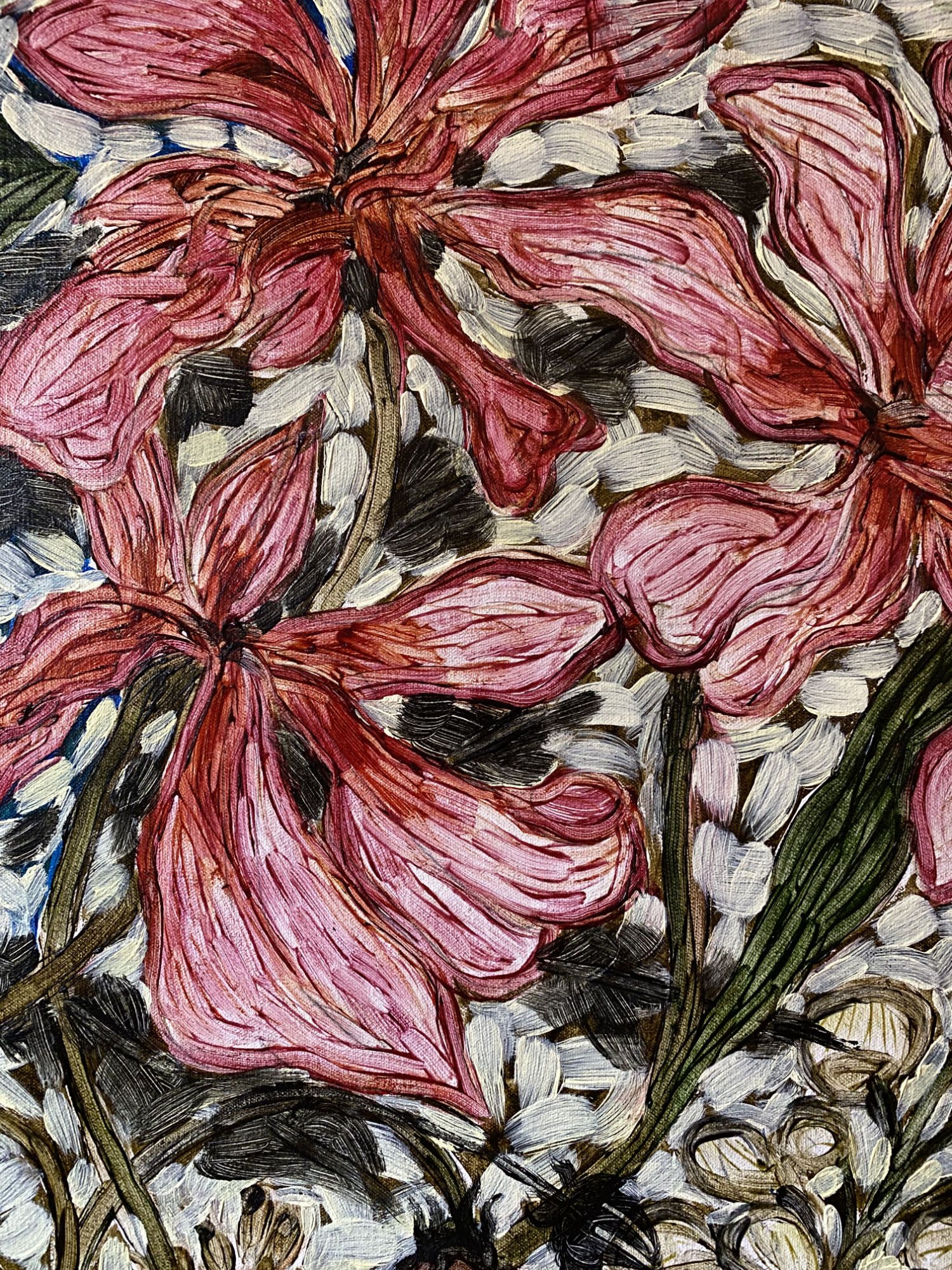
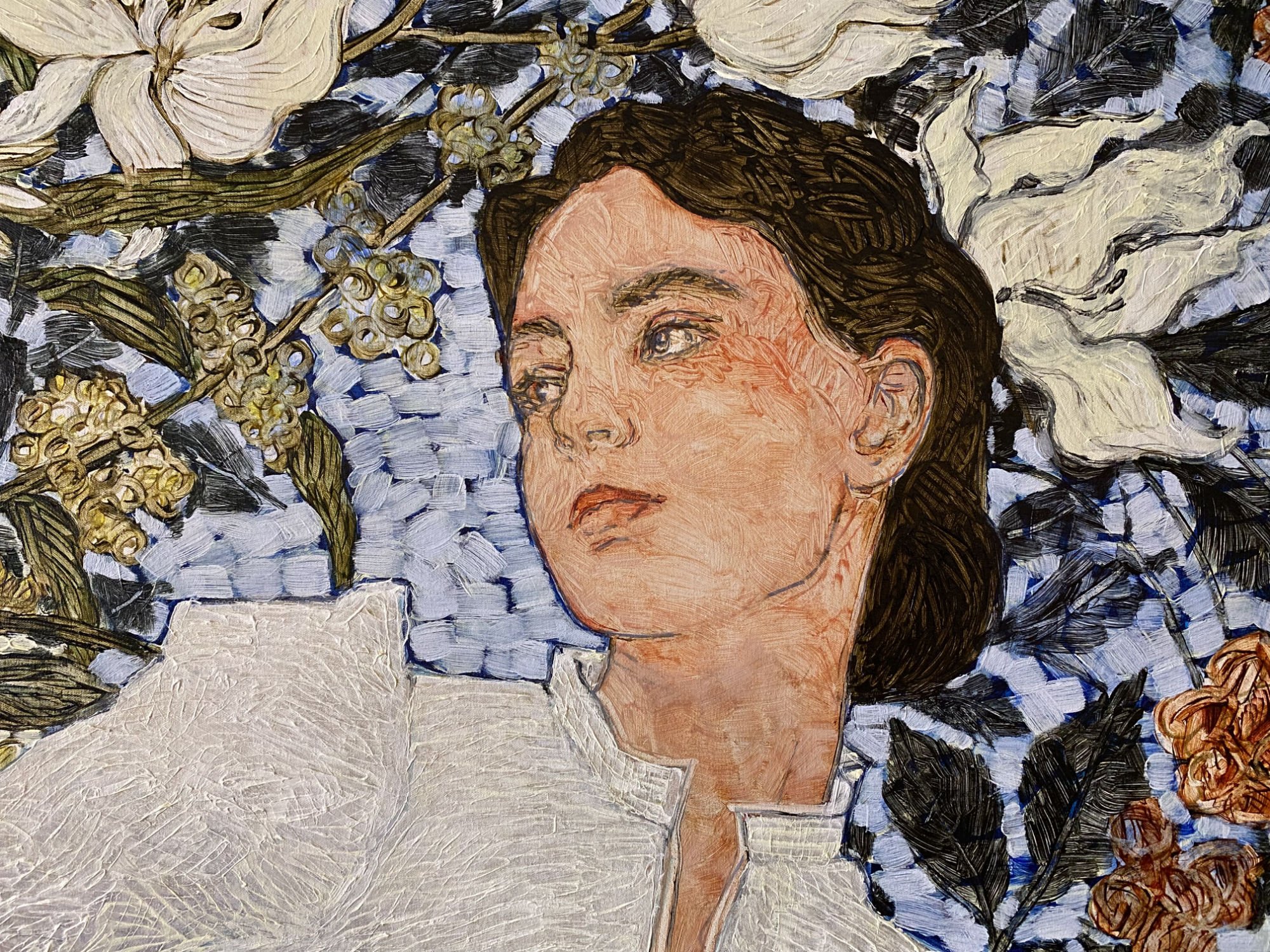
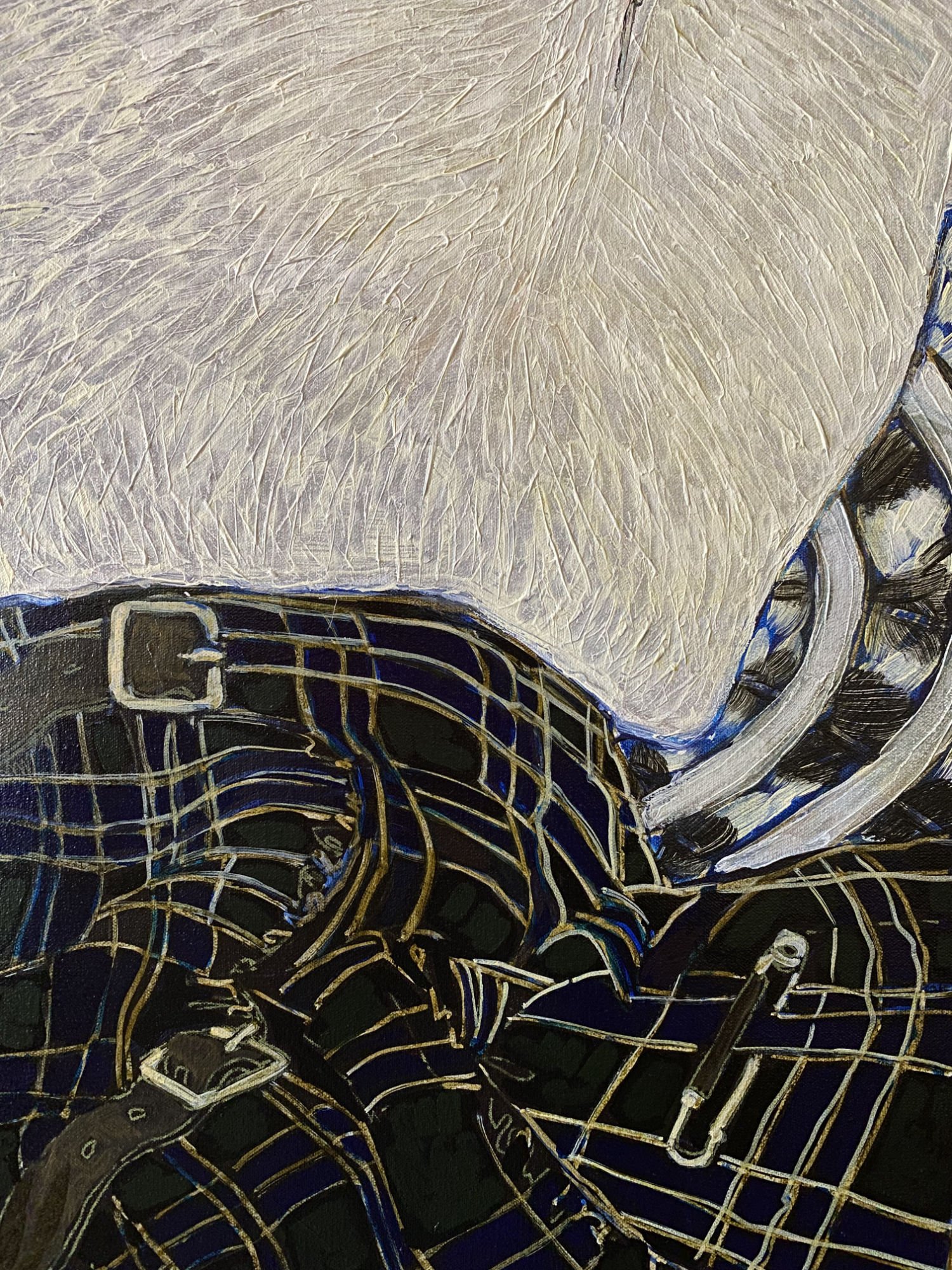
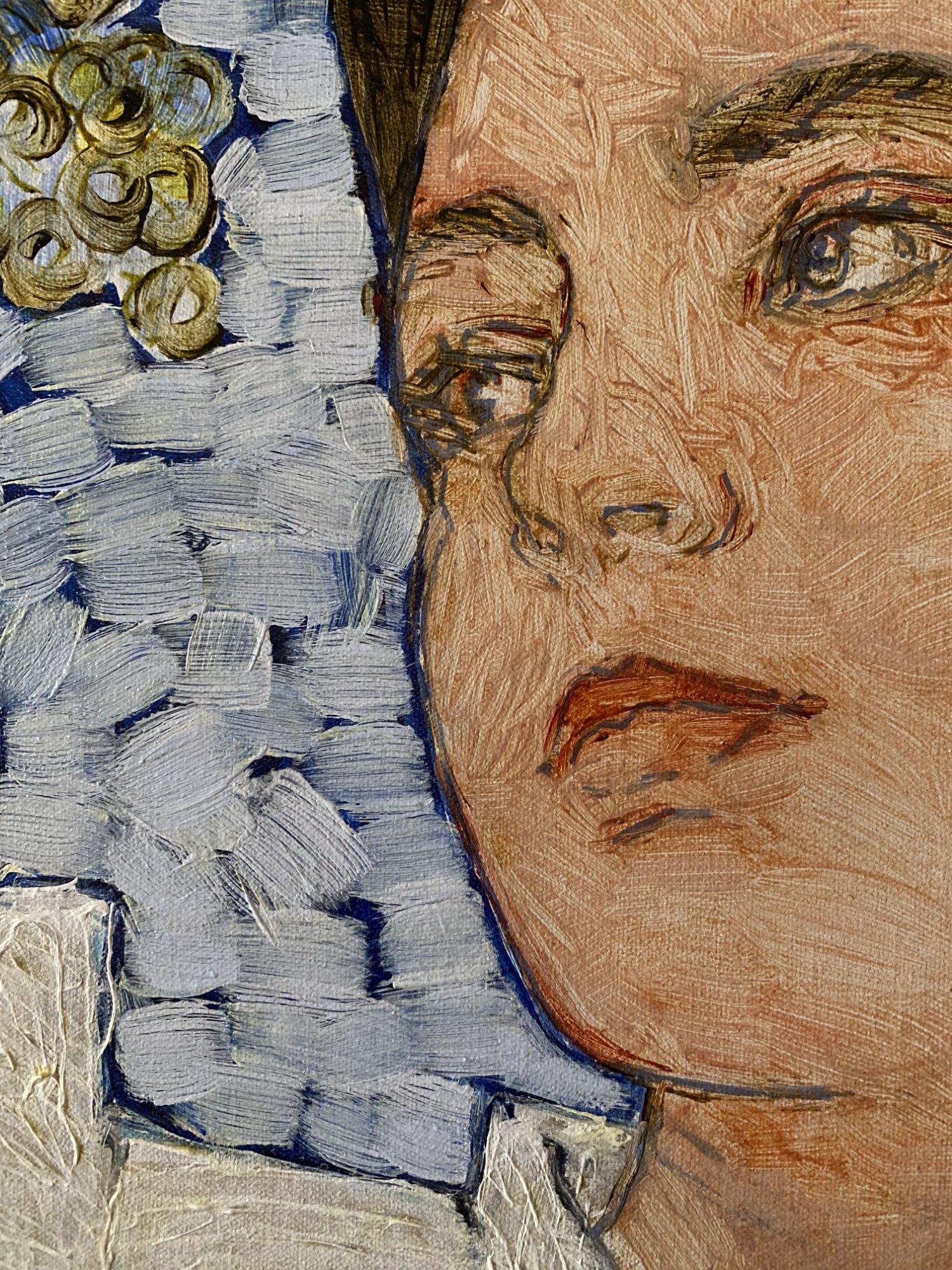
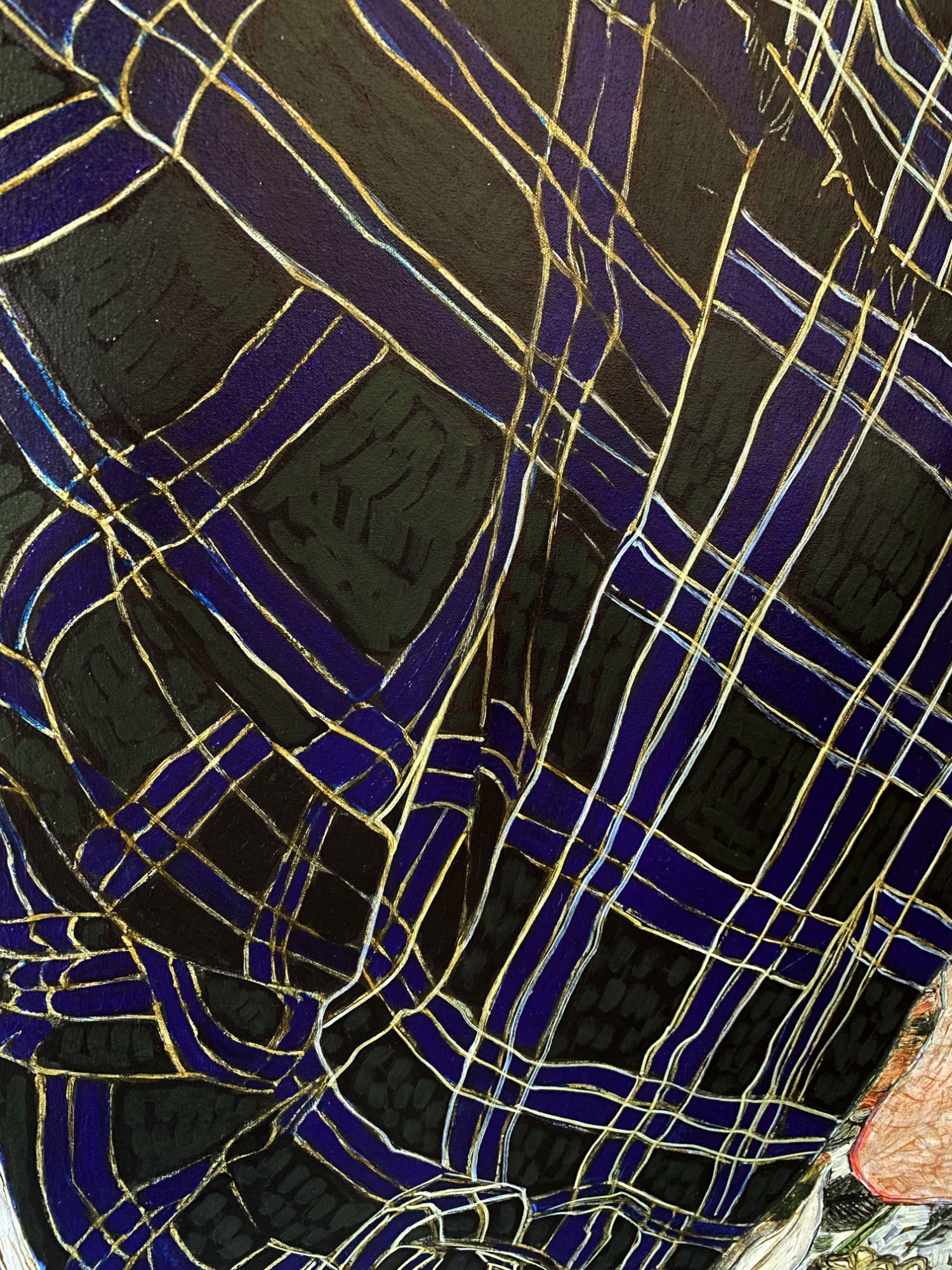
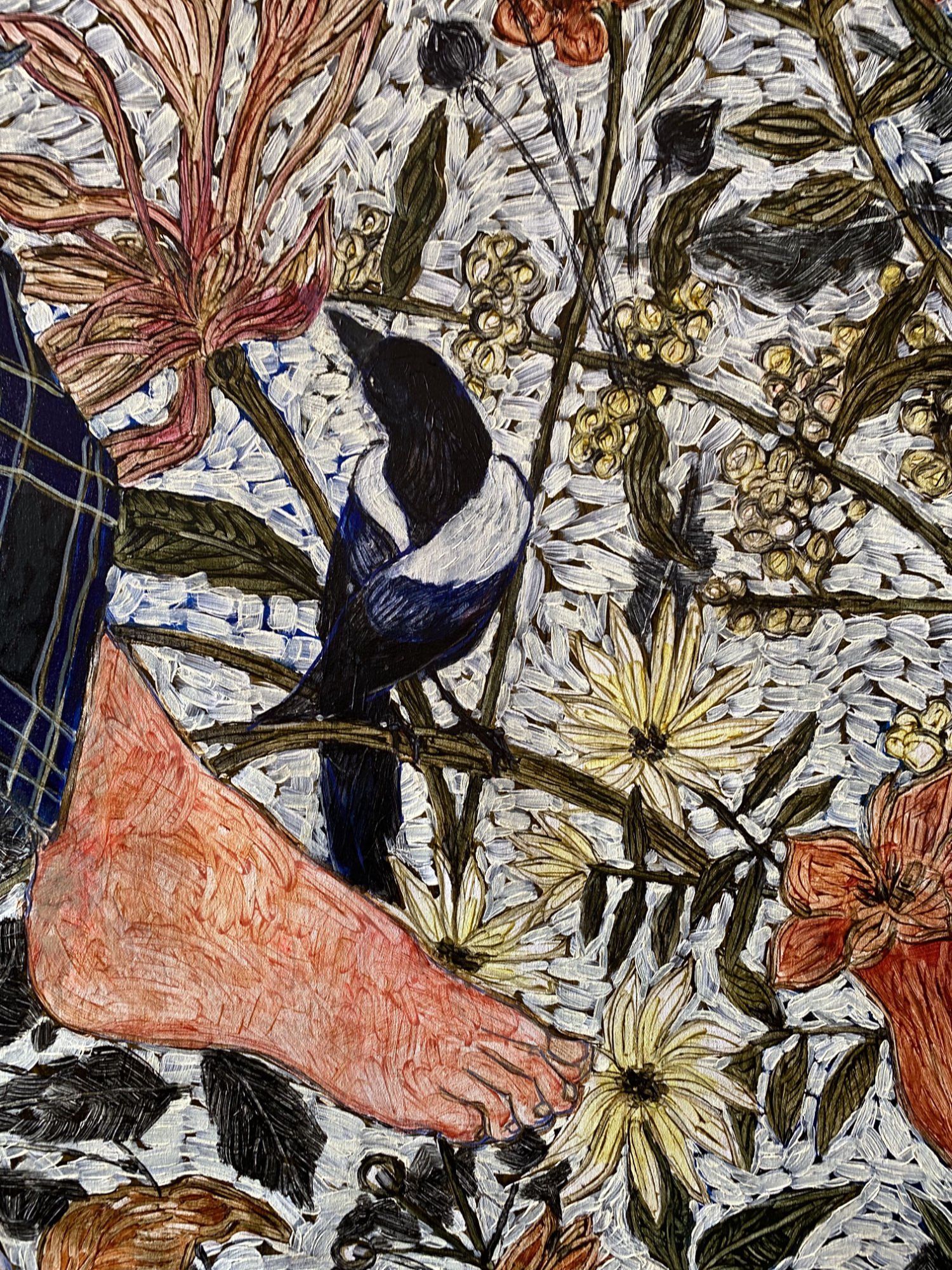
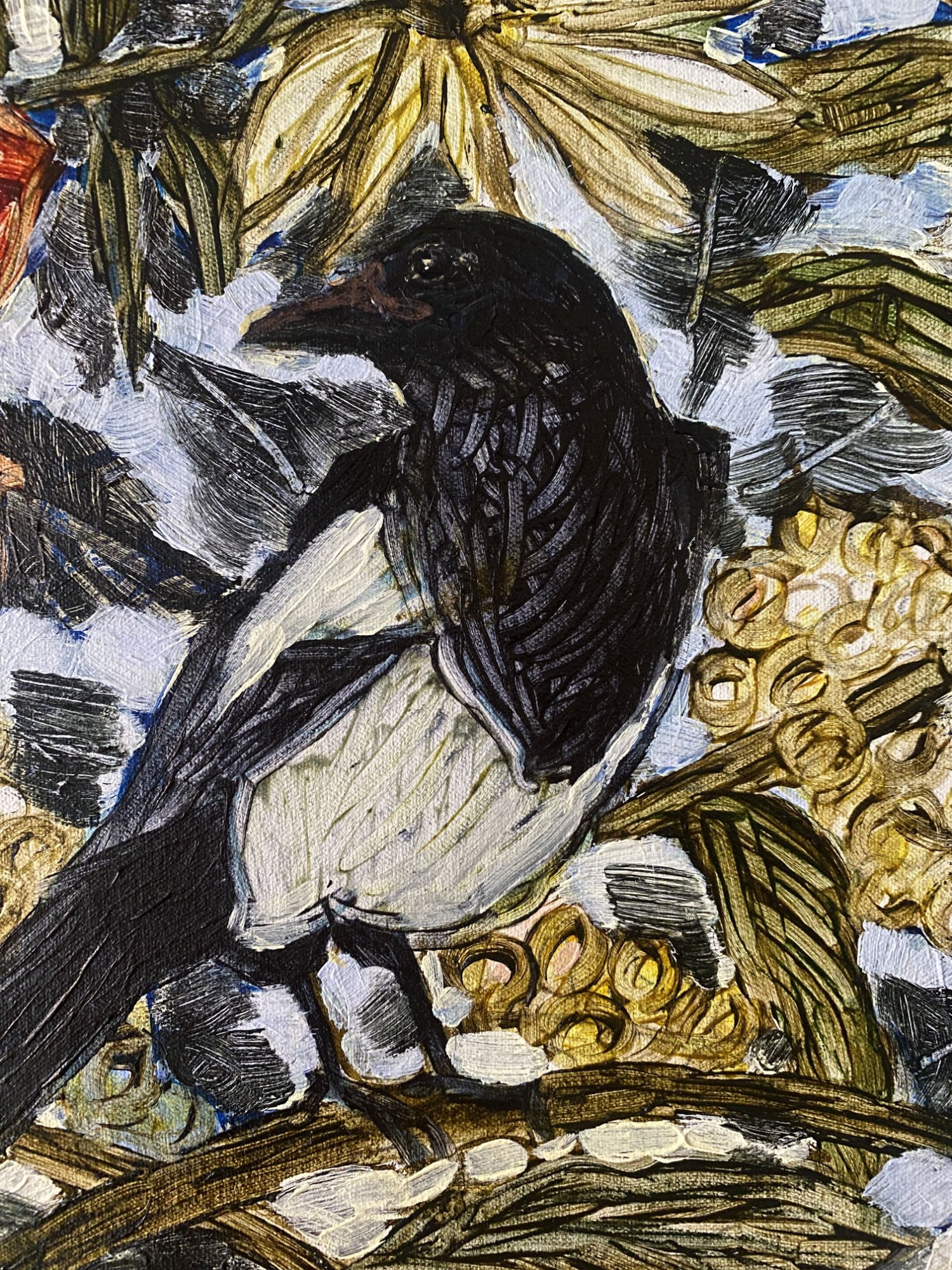
“Everyone who has written about female education and manners, from Rousseau to Dr Gregory, has helped to make women more artificial, weaker characters than they would otherwise have been...
...I address you as a legislator: When men fight for their freedom, fight to be allowed to judge for themselves concerning their own happiness, isn’t it inconsistent and unjust to hold women down? I know that you firmly believe you are acting in the manner most likely to promote women’s happiness; but who made man the exclusive judge of that if woman shares with him the gift of reason?
Tyrants of every kind, from the weak king to the weak father of a family, use this same argument that ‘It is in your own best interests’. They are all eager to crush reason, but they always say that they usurp reason’s throne only to be useful. Isn’t that what you are doing when you force all women, by denying them civil and political rights, to remain walled in by their families and groping in the dark? Surely, sir, you won’t say that a duty can be binding without being founded on reason! Arguments for civil and political rights can be drawn from reason; and with that splendid support, the more understanding women acquire the more they will be attached to their duty, understanding it. Unless they understand it—unless their morals are based on the same immutable principles as those of man—no authority can make them act virtuously. They may be convenient slaves, but slavery will have its constant effect, degrading the master and the abject dependent...”
CHRISTINA ROSSETTI - 185 X 190 CM
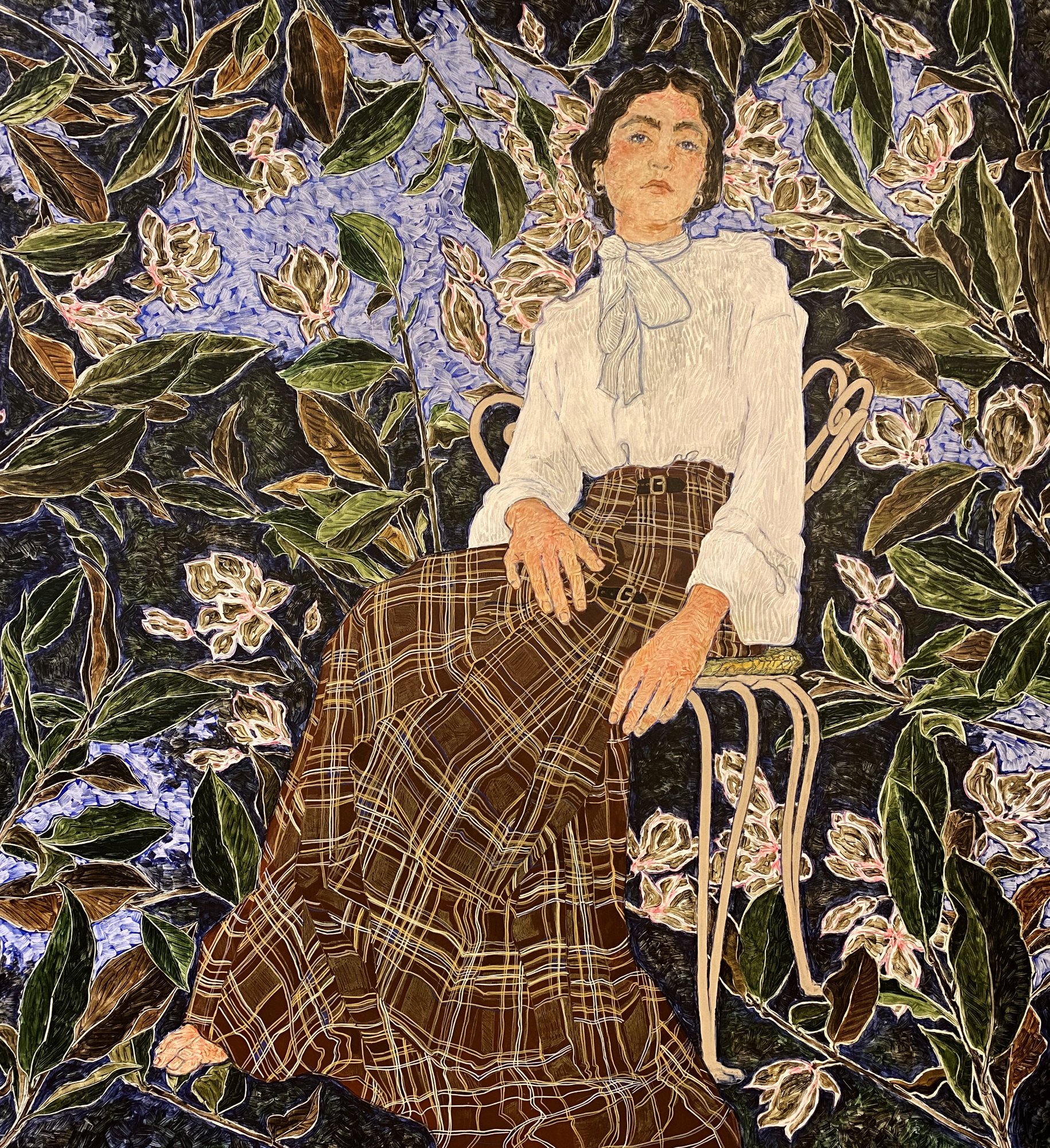
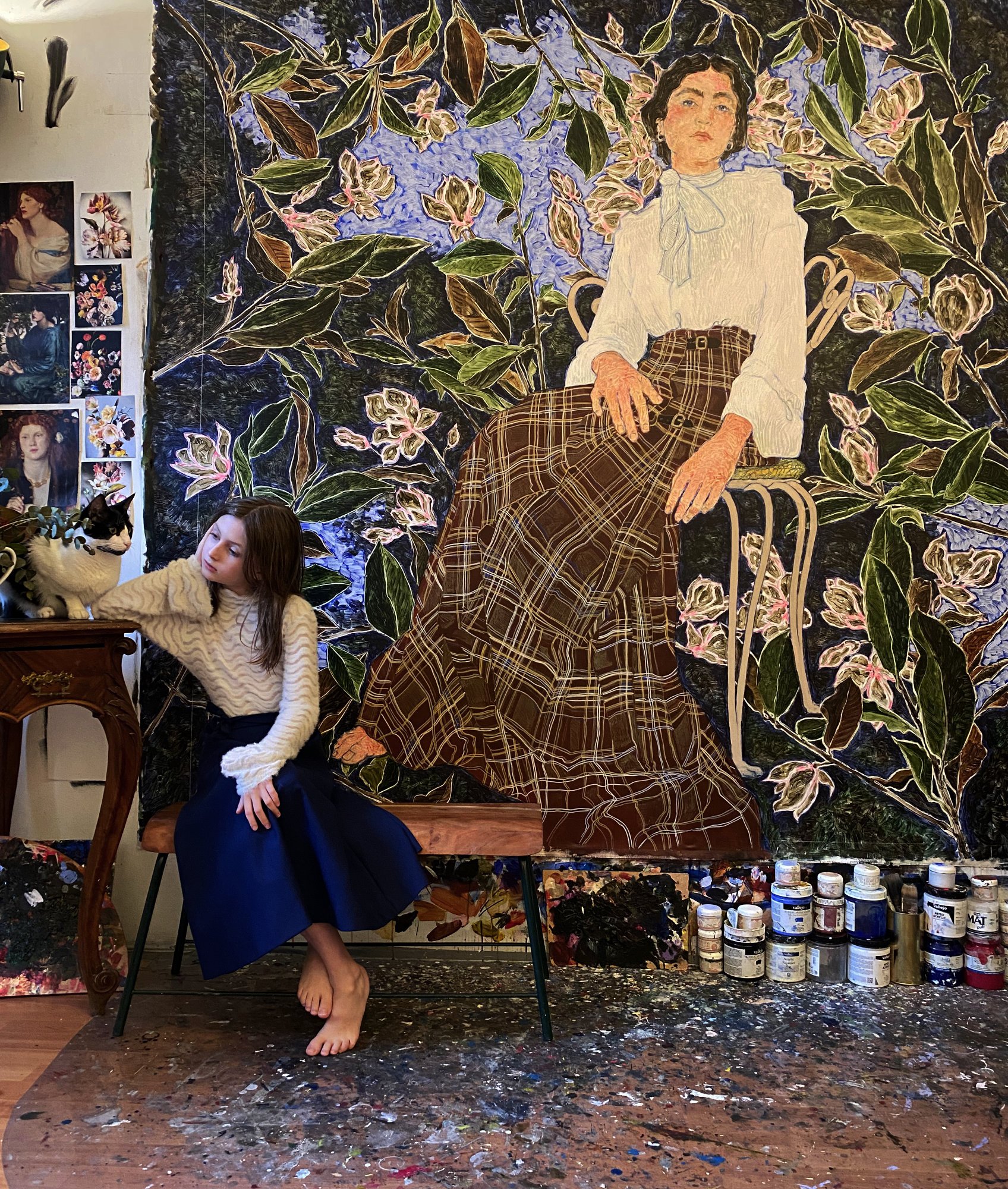
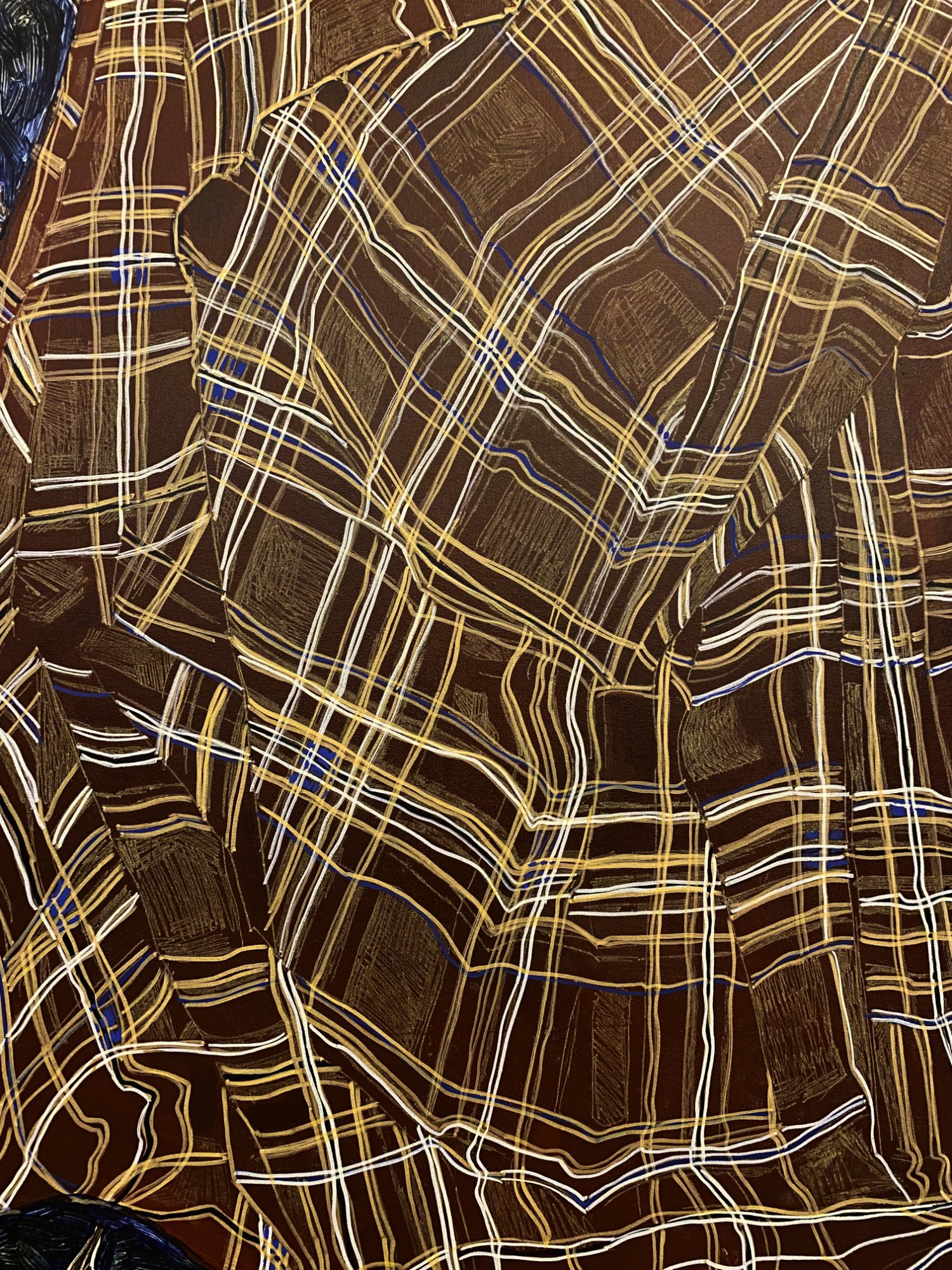
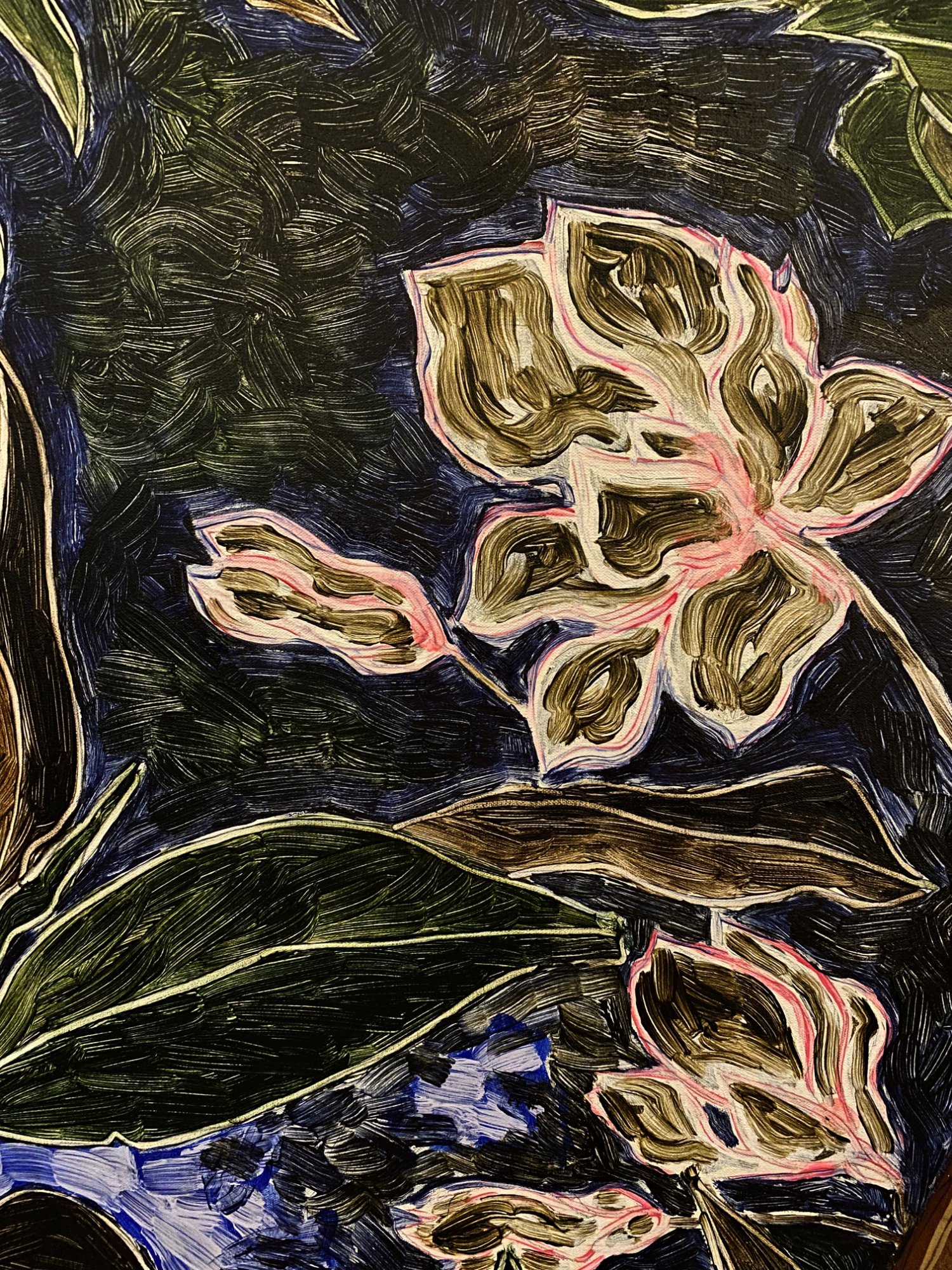
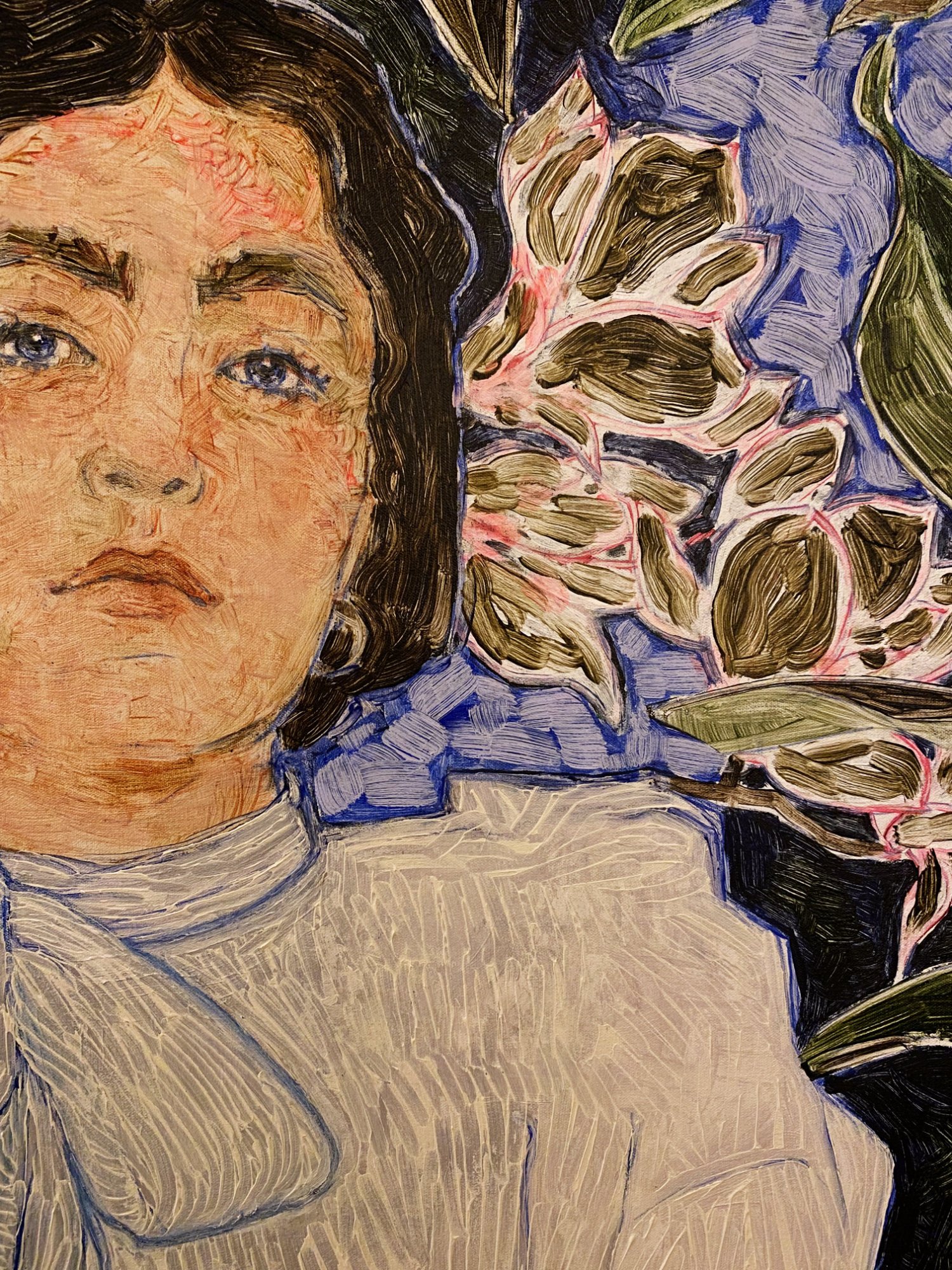
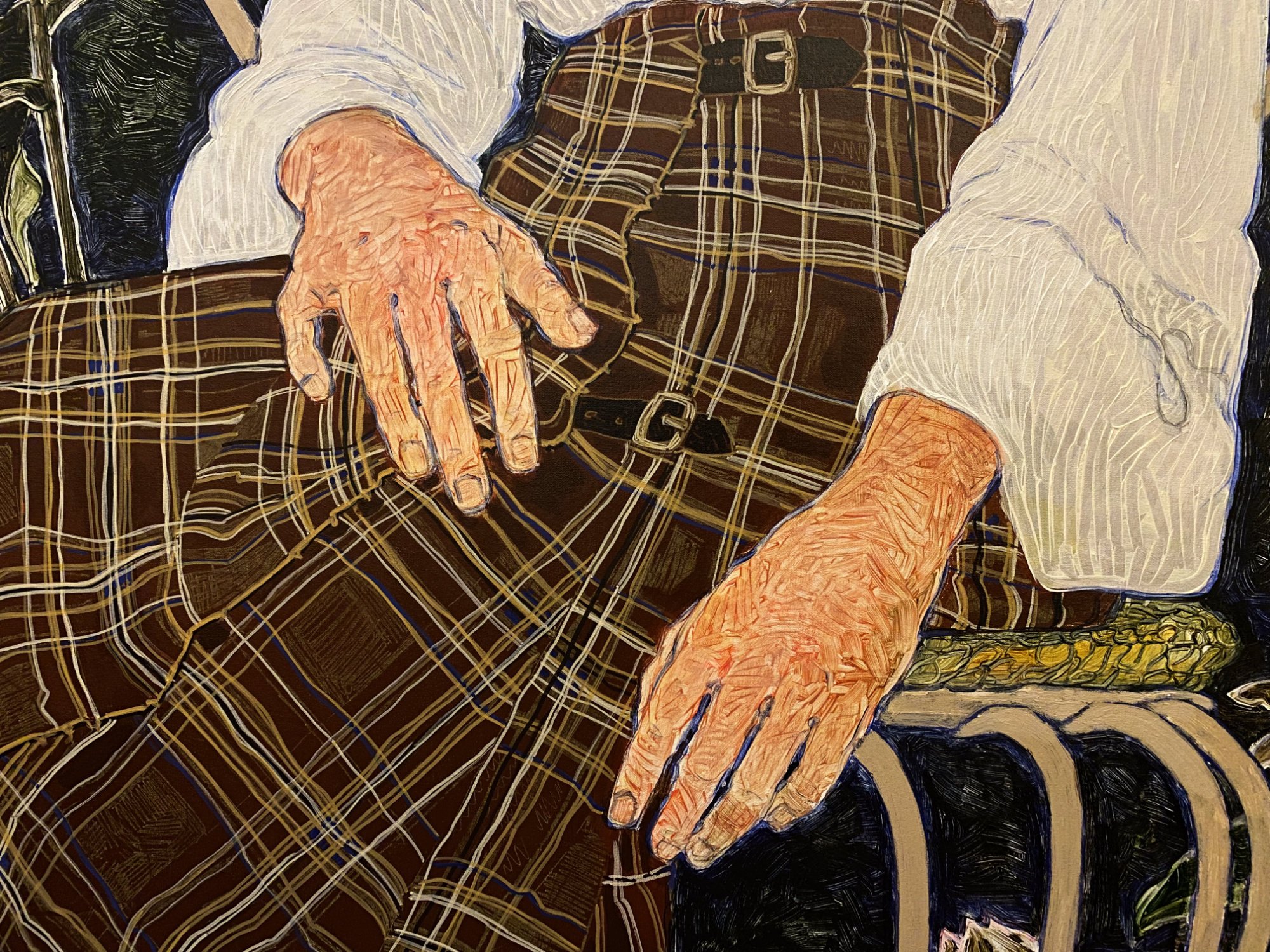
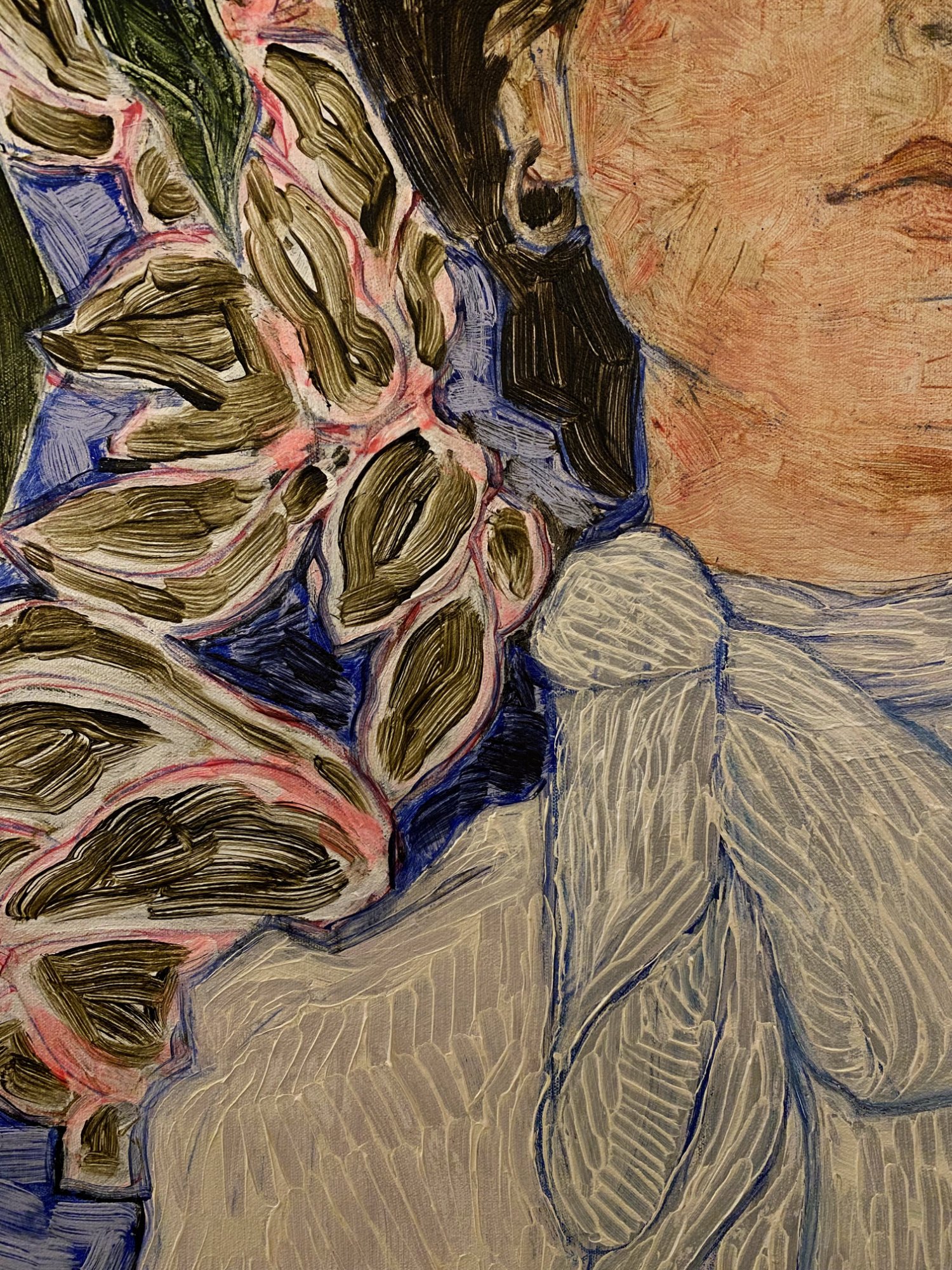
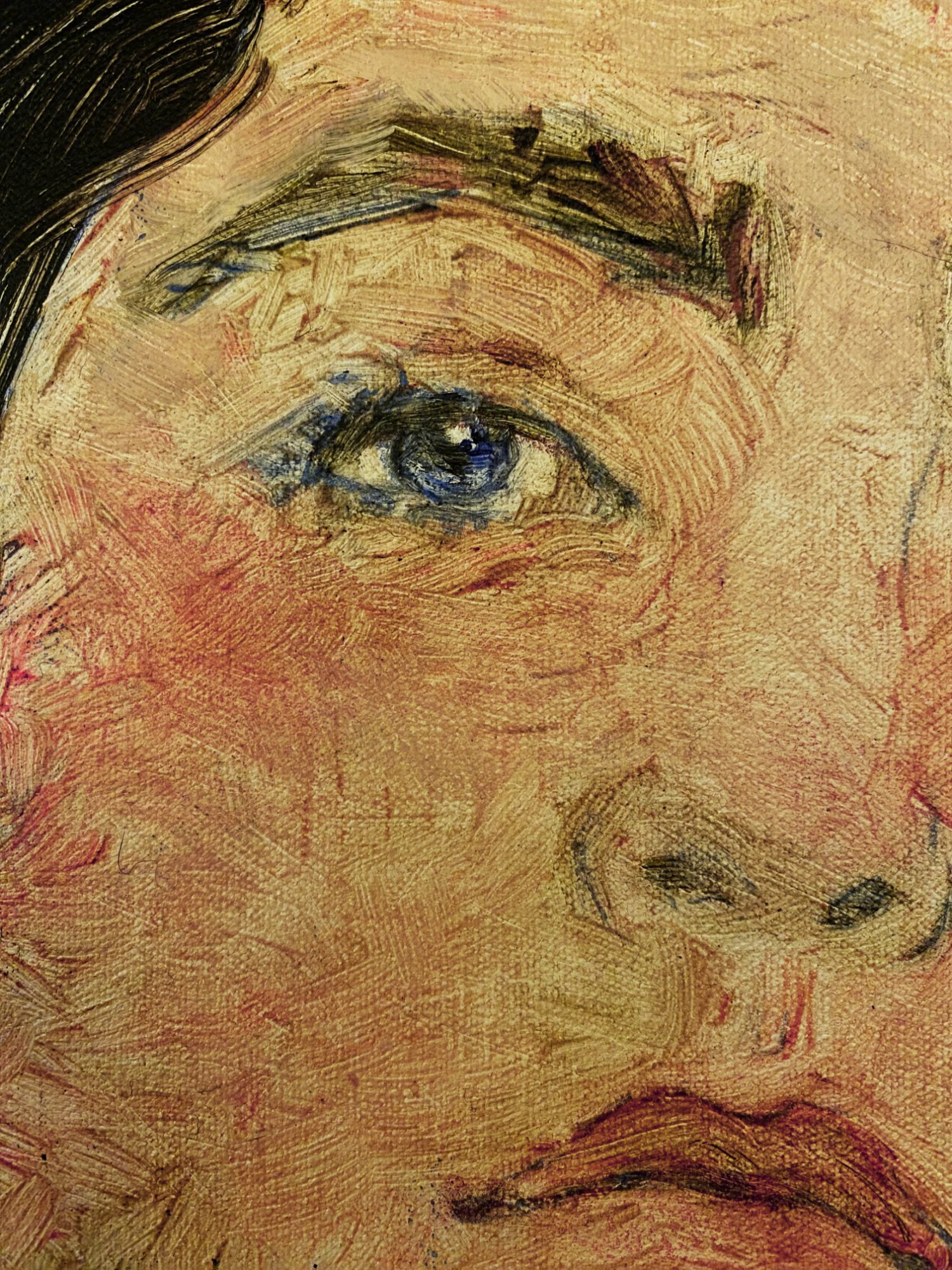
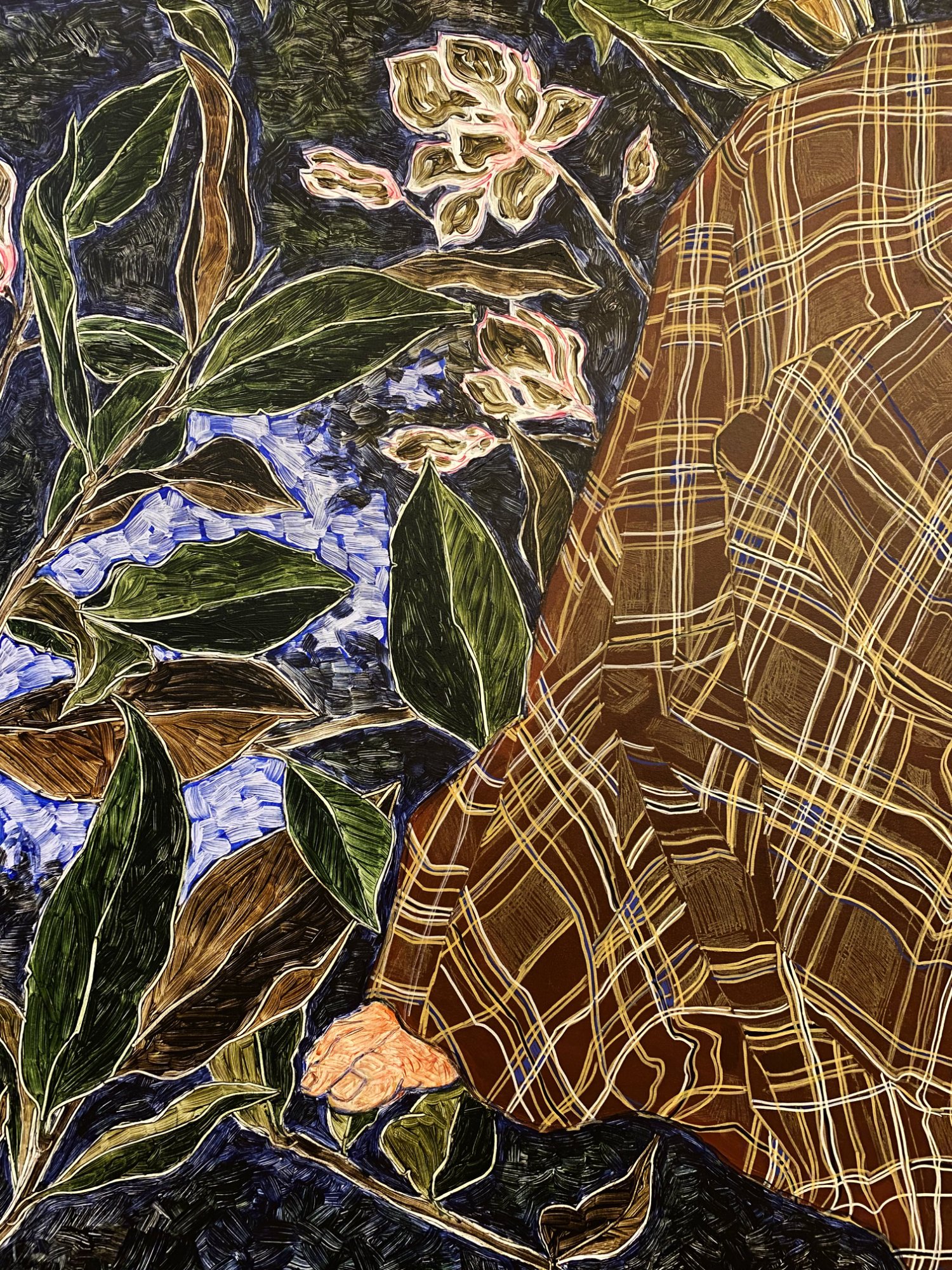
“Spring
Frost-locked all the winter,
Seeds, and roots, and stones of fruits,
What shall make their sap ascend
That they may put forth shoots?
Tips of tender green,
Leaf, or blade, or sheath;
Telling of the hidden life
That breaks forth underneath,
Life nursed in its grave by Death.
Blows the thaw-wind pleasantly,
Drips the soaking rain,
By fits looks down the waking sun:
Young grass springs on the plain;
Young leaves clothe early hedgerow trees;
Seeds, and roots, and stones of fruits,
Swollen with sap, put forth their shoots;
Curled-headed ferns sprout in the lane;
Birds sing and pair again.
There is no time like Spring,
When life’s alive in everything,
Before new nestlings sing,
Before cleft swallows speed their journey back
Along the trackless track,—
God guides their wing,
He spreads their table that they nothing lack,—
Before the daisy grows a common flower,
Before the sun has power
To scorch the world up in his noontide hour.
There is no time like Spring,
Like Spring that passes by;
There is no life like Spring-life born to die,—
Piercing the sod,
Clothing the uncouth clod,
Hatched in the nest,
Fledged on the windy bough,
Strong on the wing:
There is no time like Spring that passes by,
Now newly born, and now
Hastening to die.”
EMILY DICKINSON - 105 x 194 cm
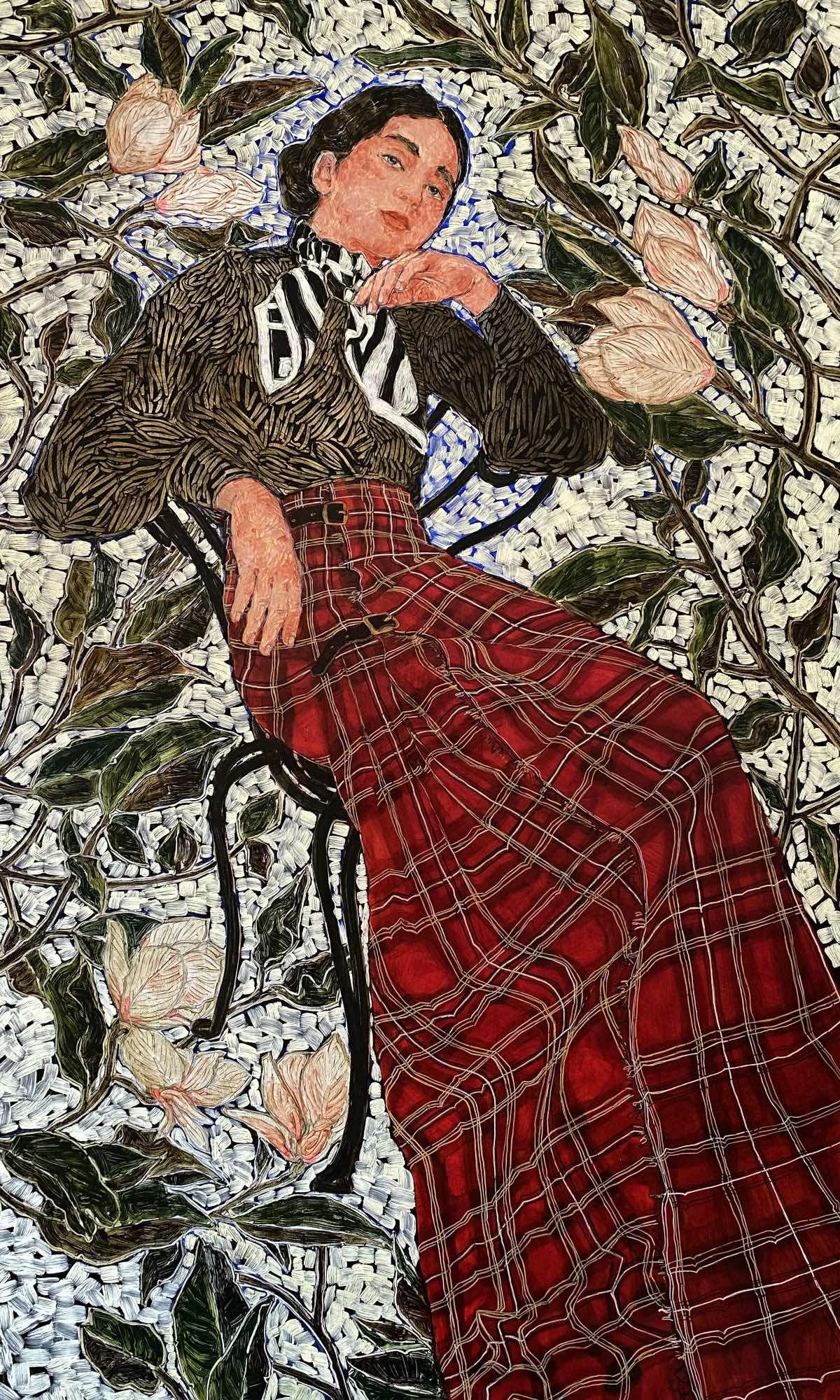


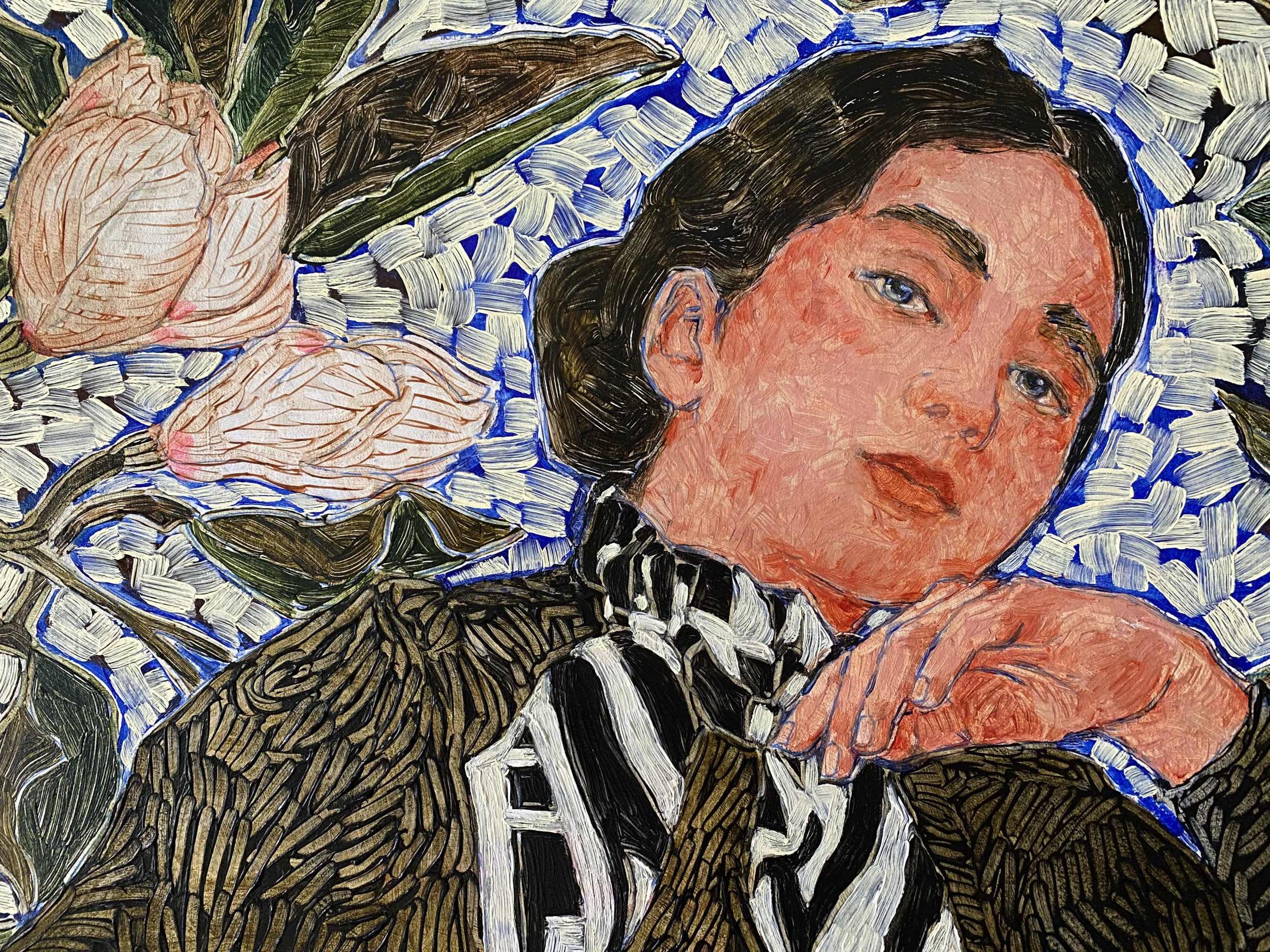
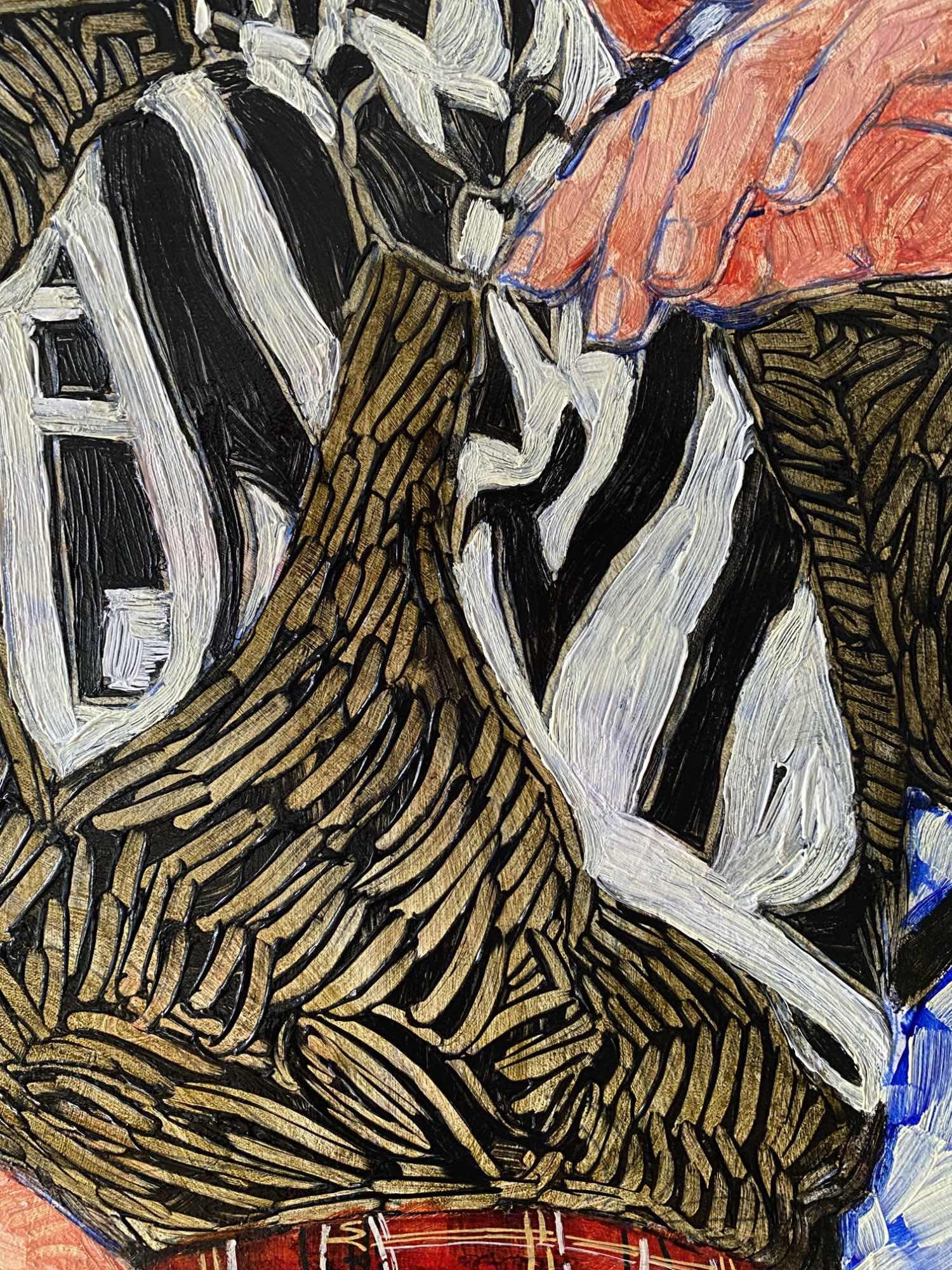
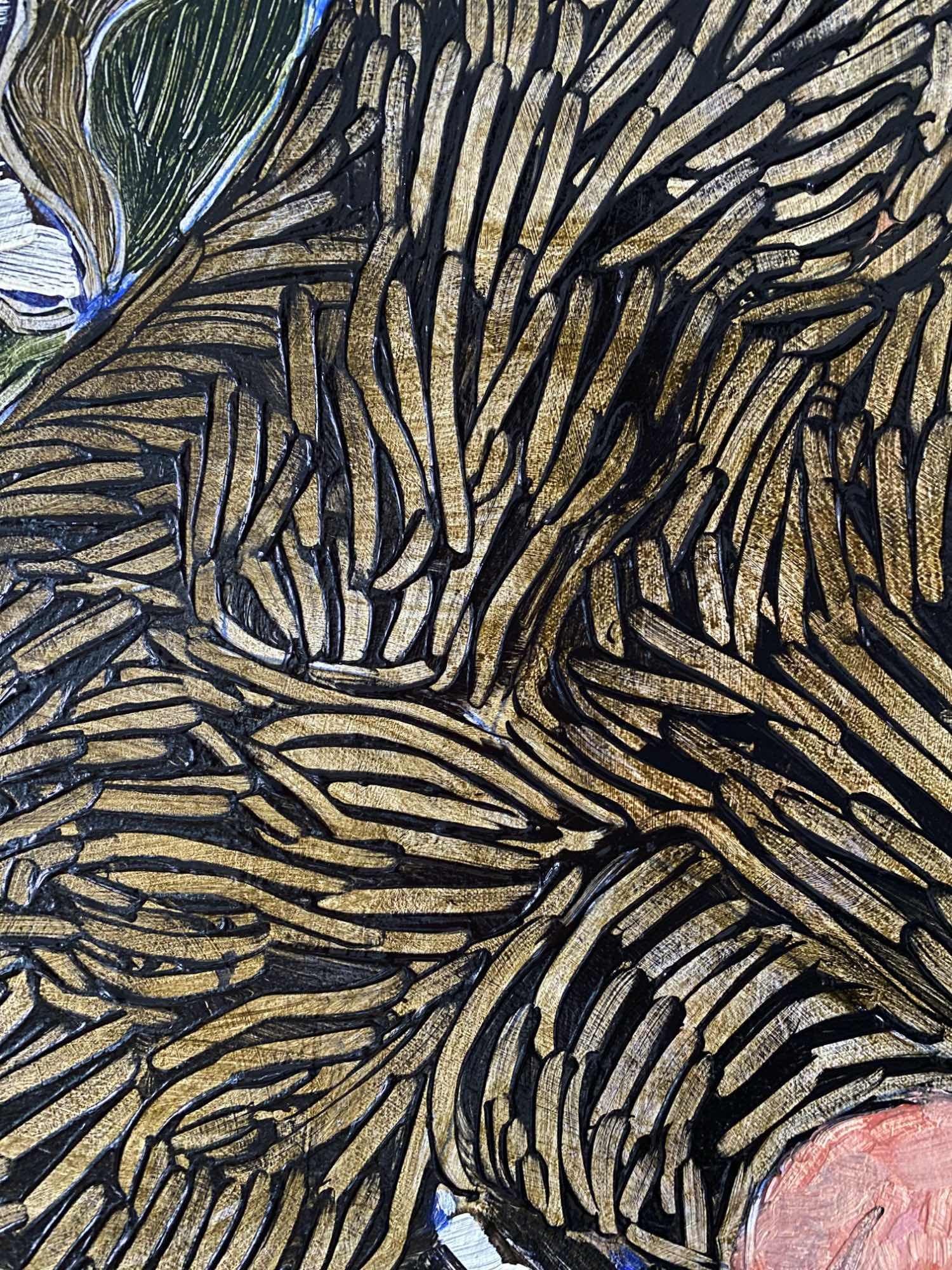
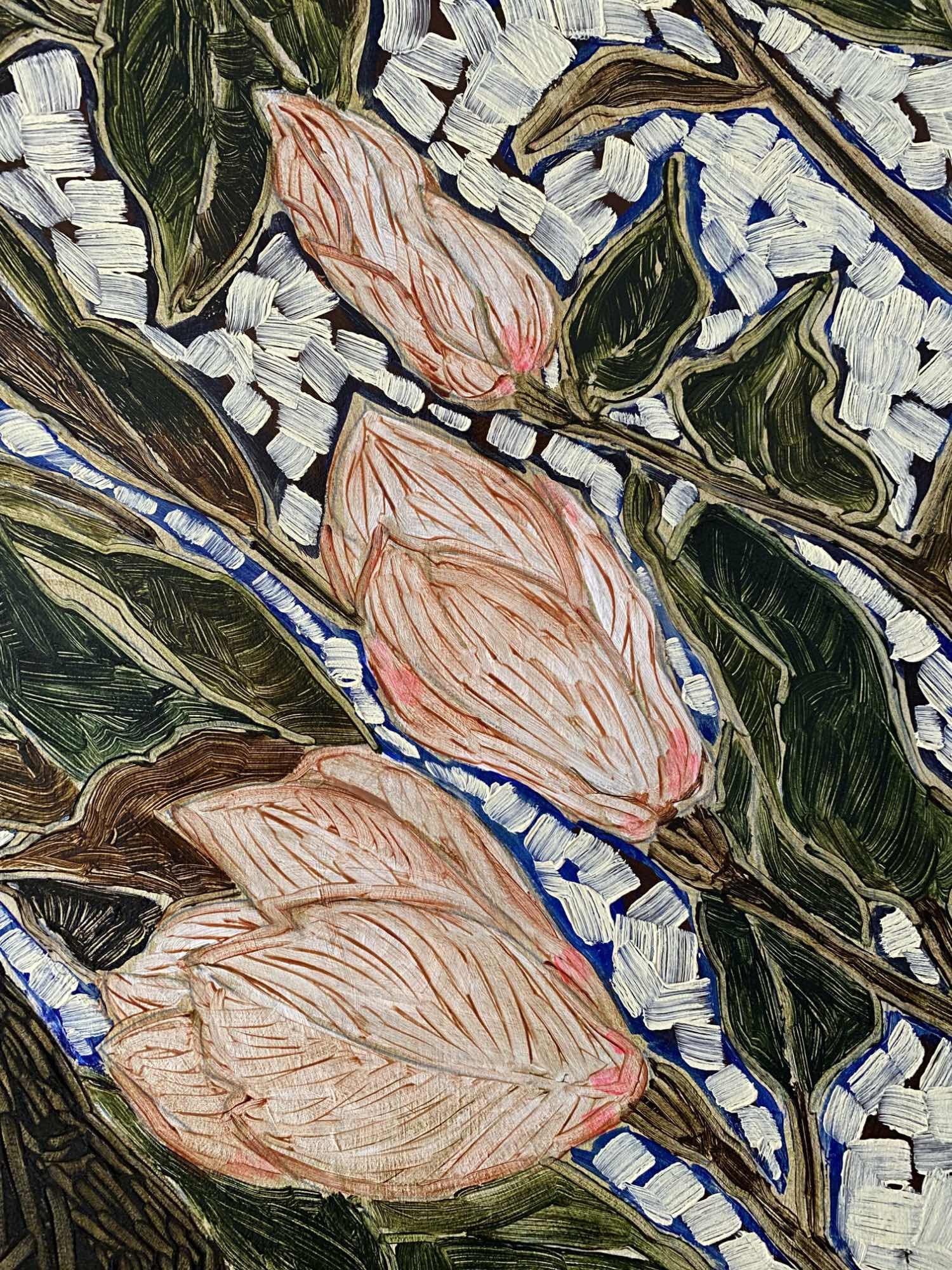
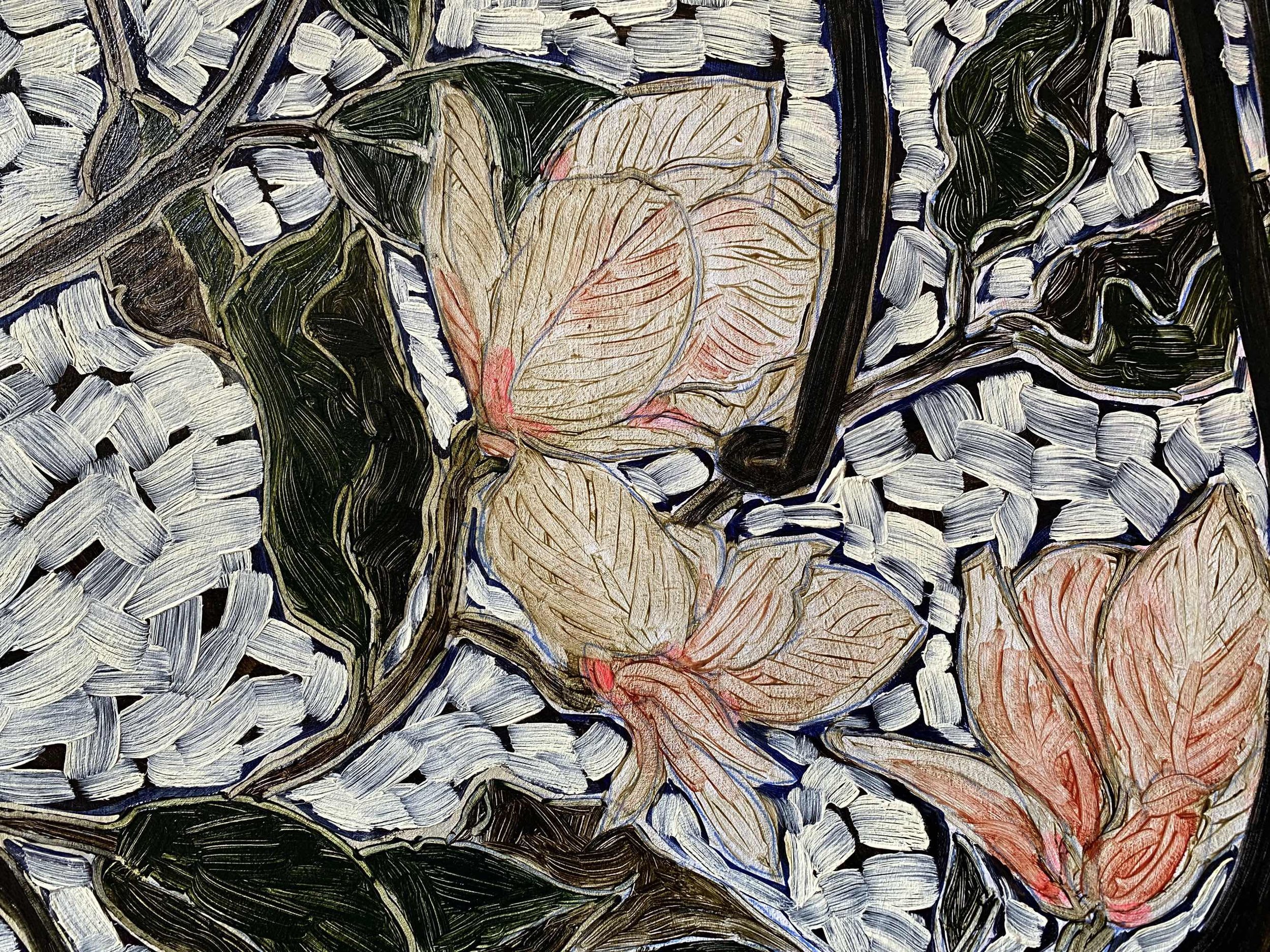
“The Brain - is wider than the Sky
For - put them side by side -
The one the other will contain
With ease—and you—beside—
The Brain is deeper than the sea—
For—hold them—Blue to Blue—
The one the other will absorb—
As sponges—Buckets—do—
The Brain is just the weight of God—
For—Heft them—Pound for Pound—
And they will differ—if they do—
As Syllable from Sound—”
ORLANDO - 194 x 225 cm
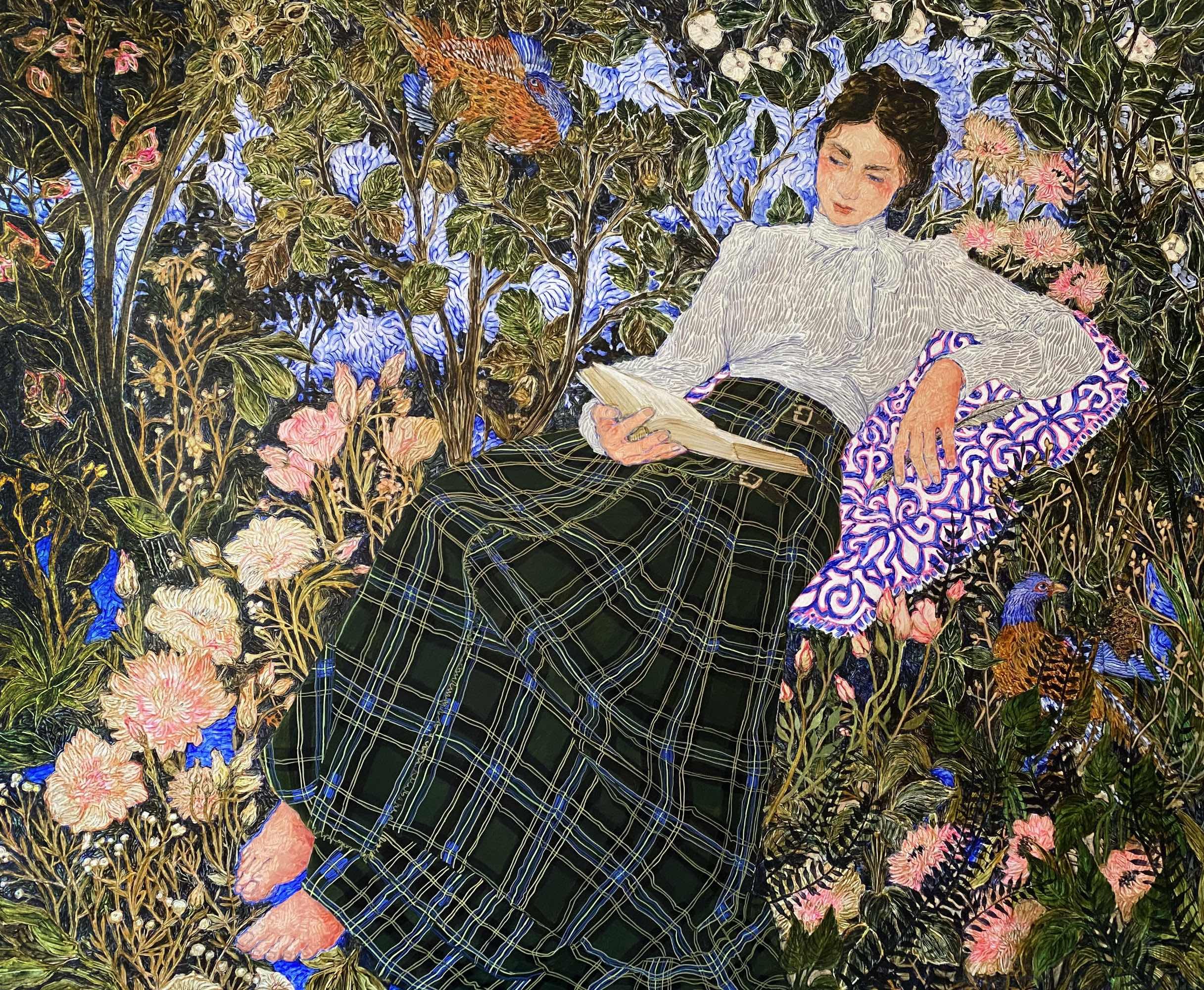
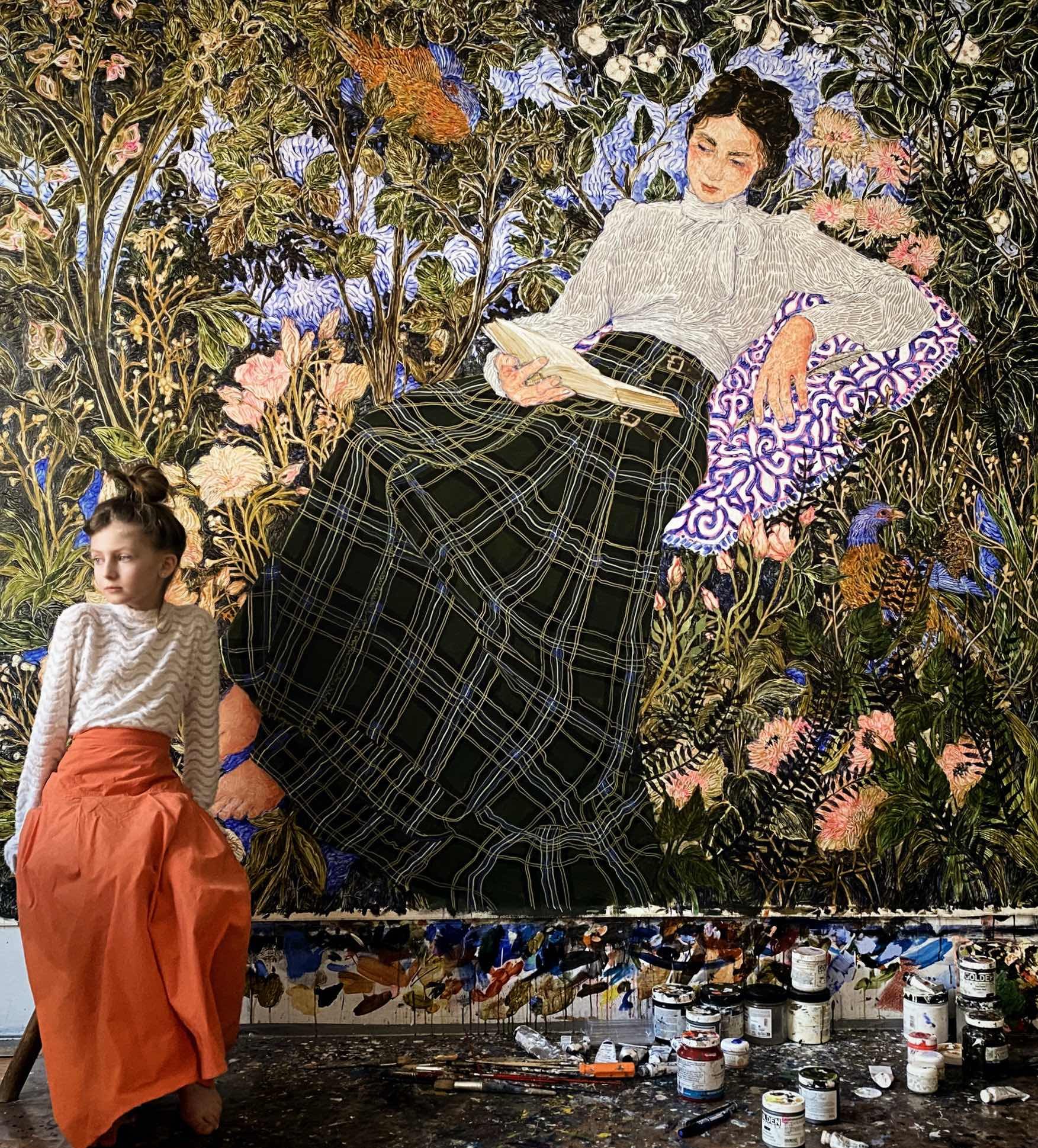
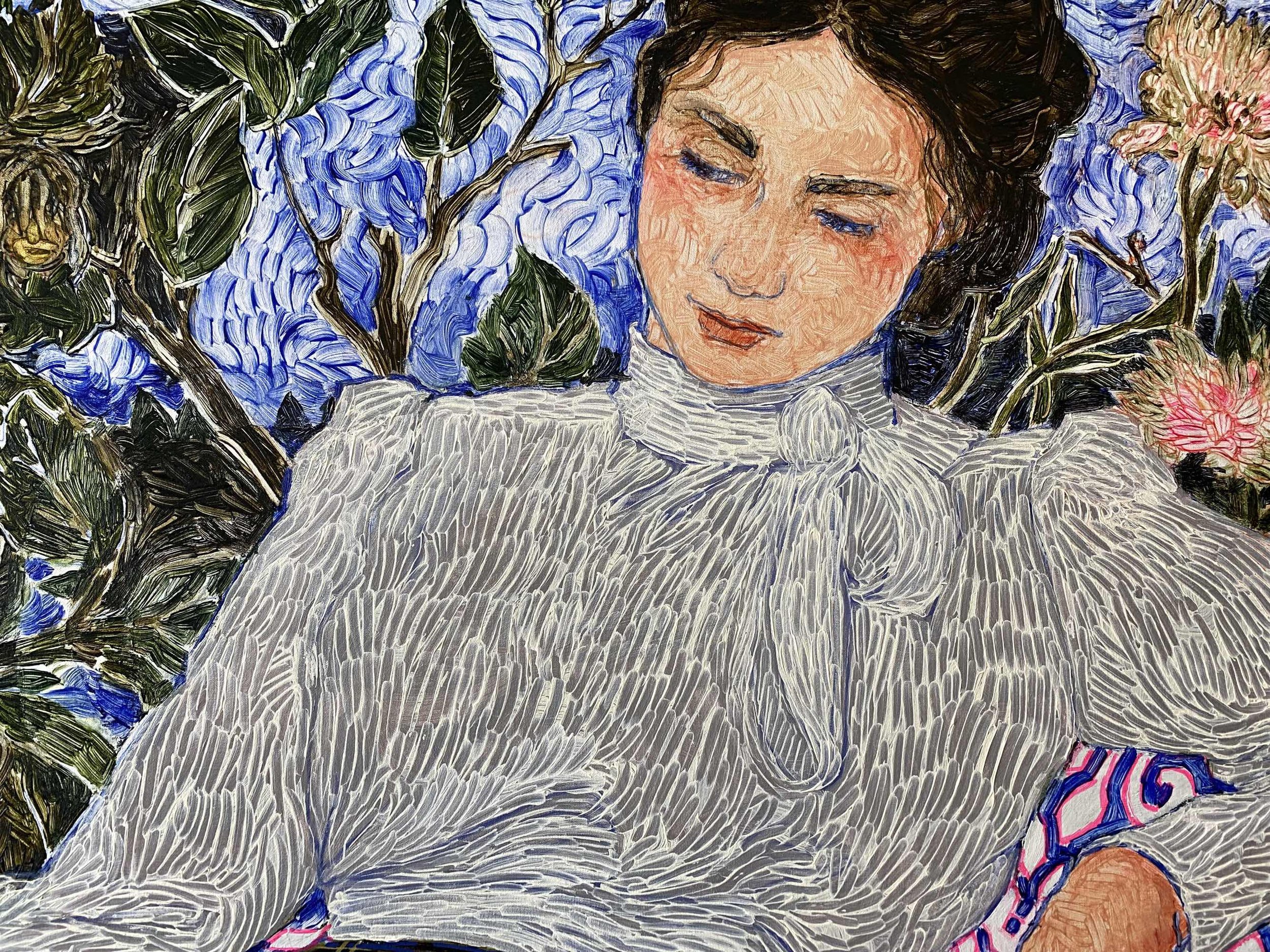
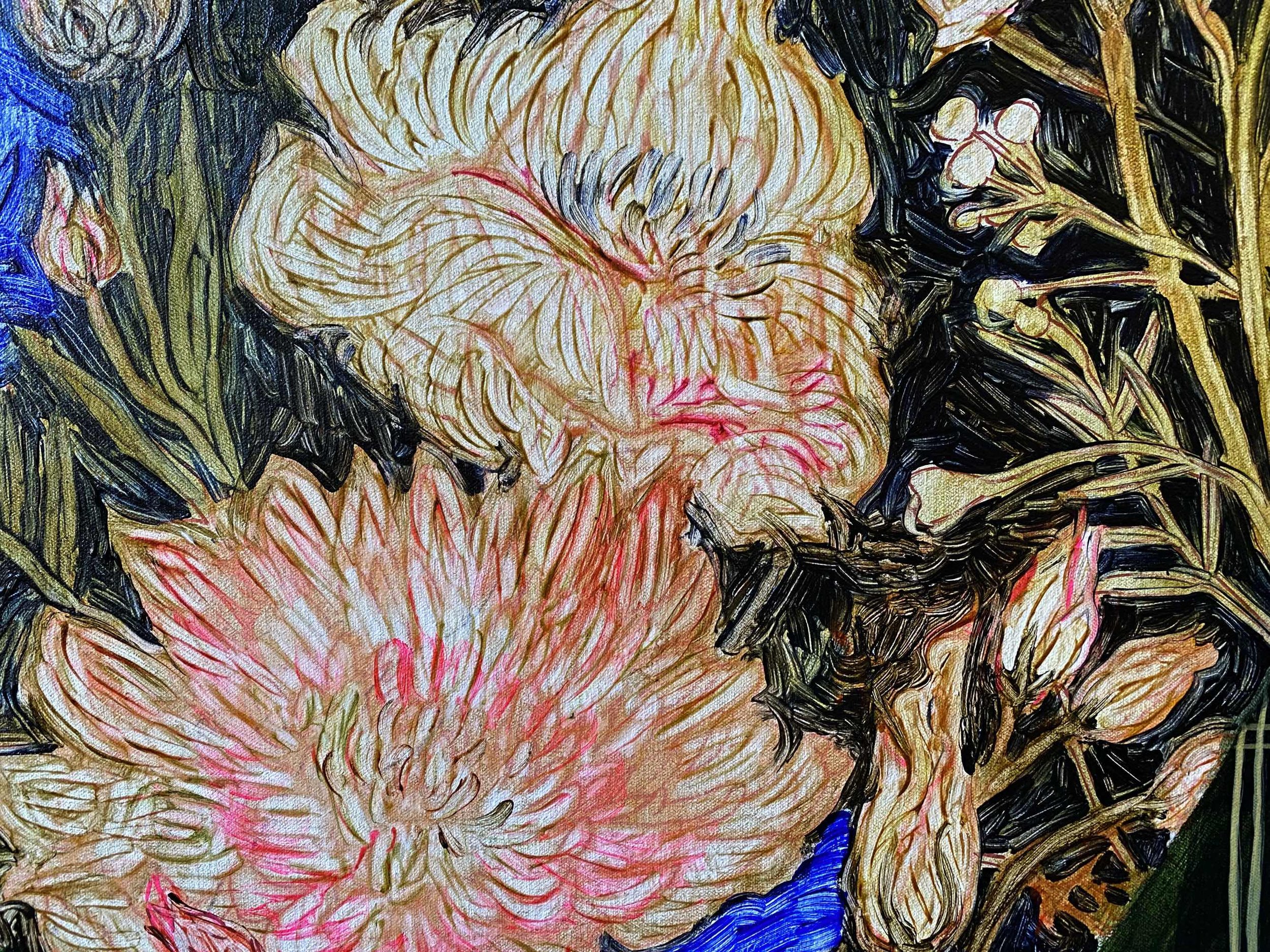
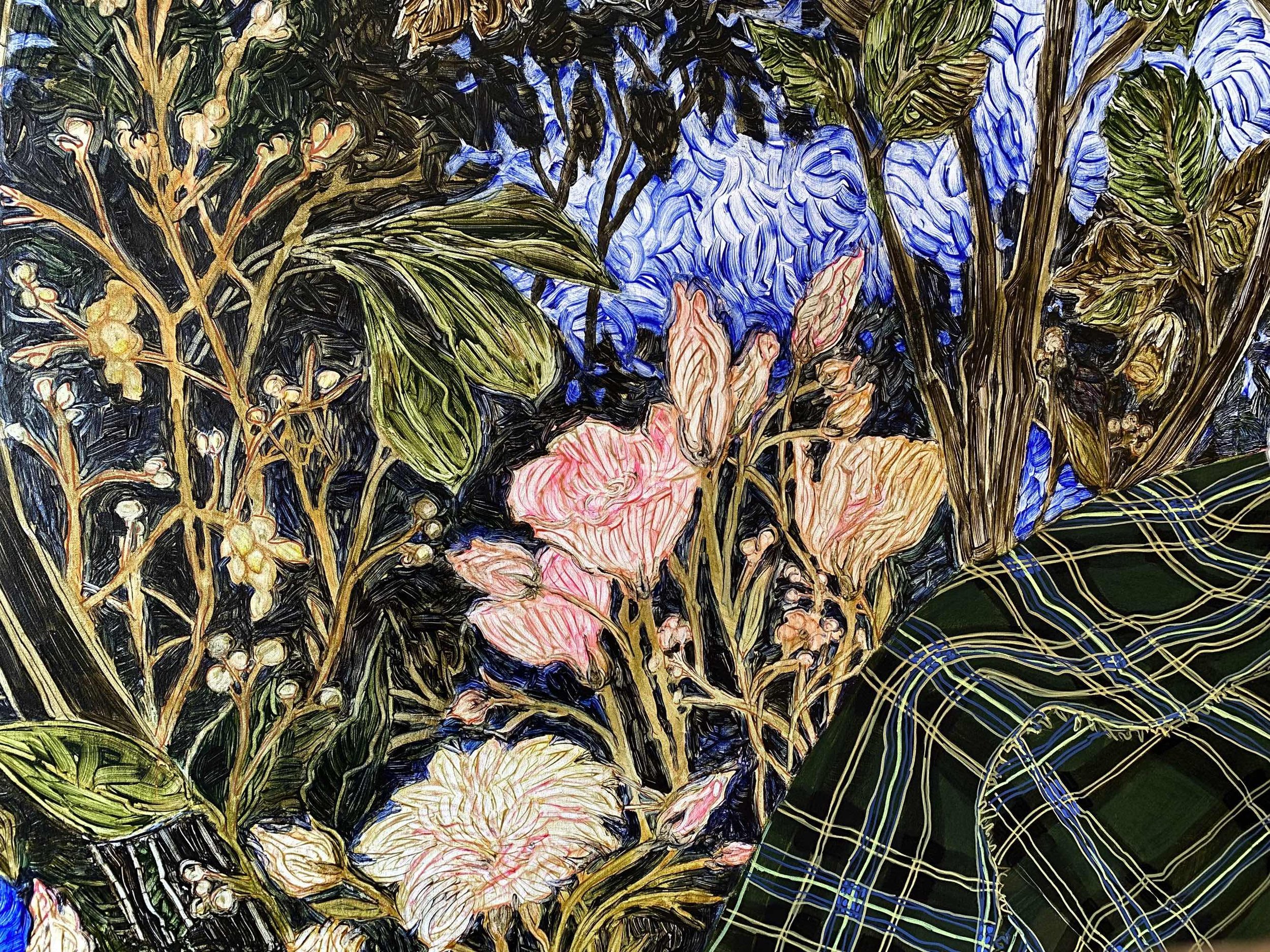
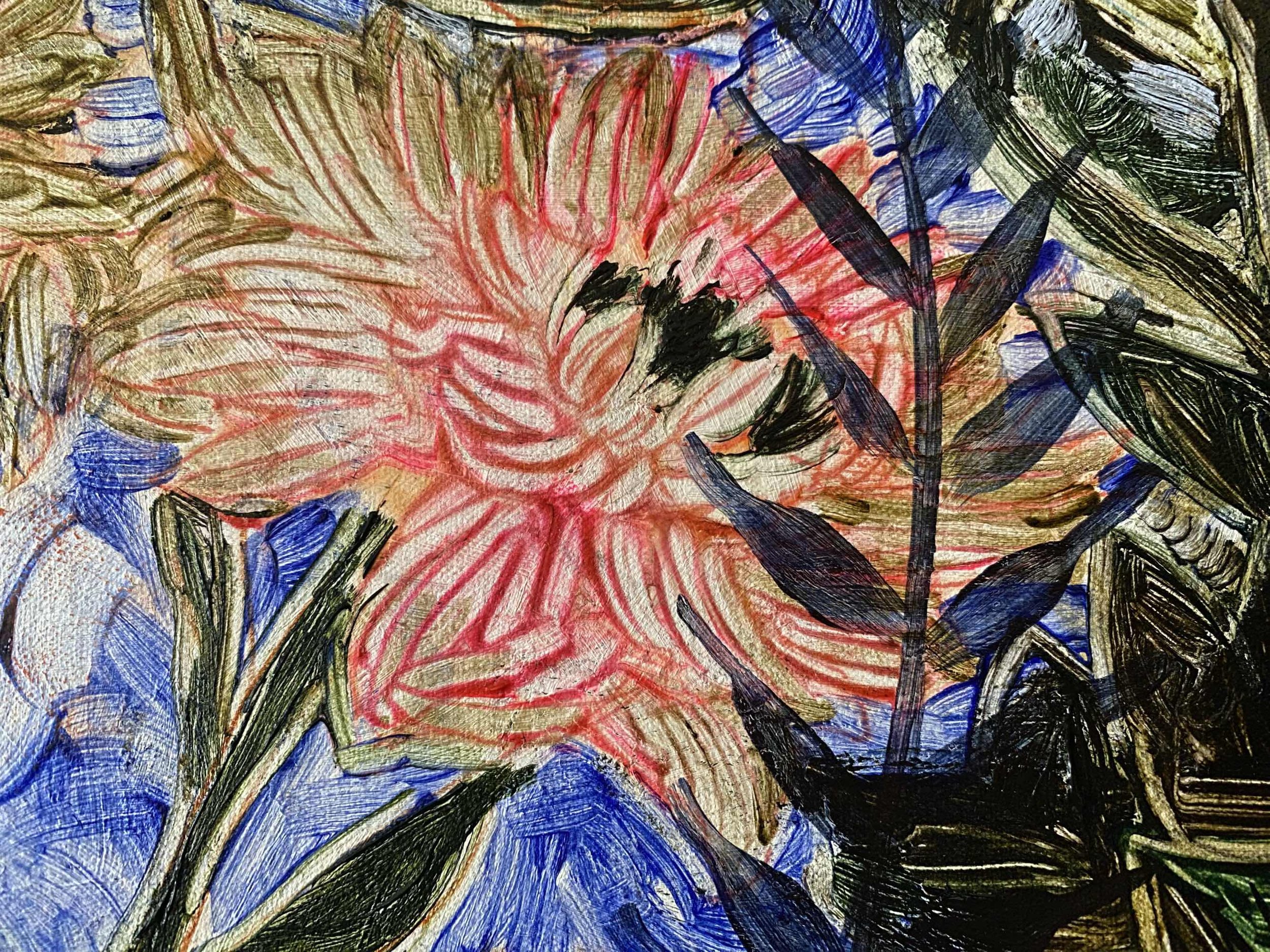
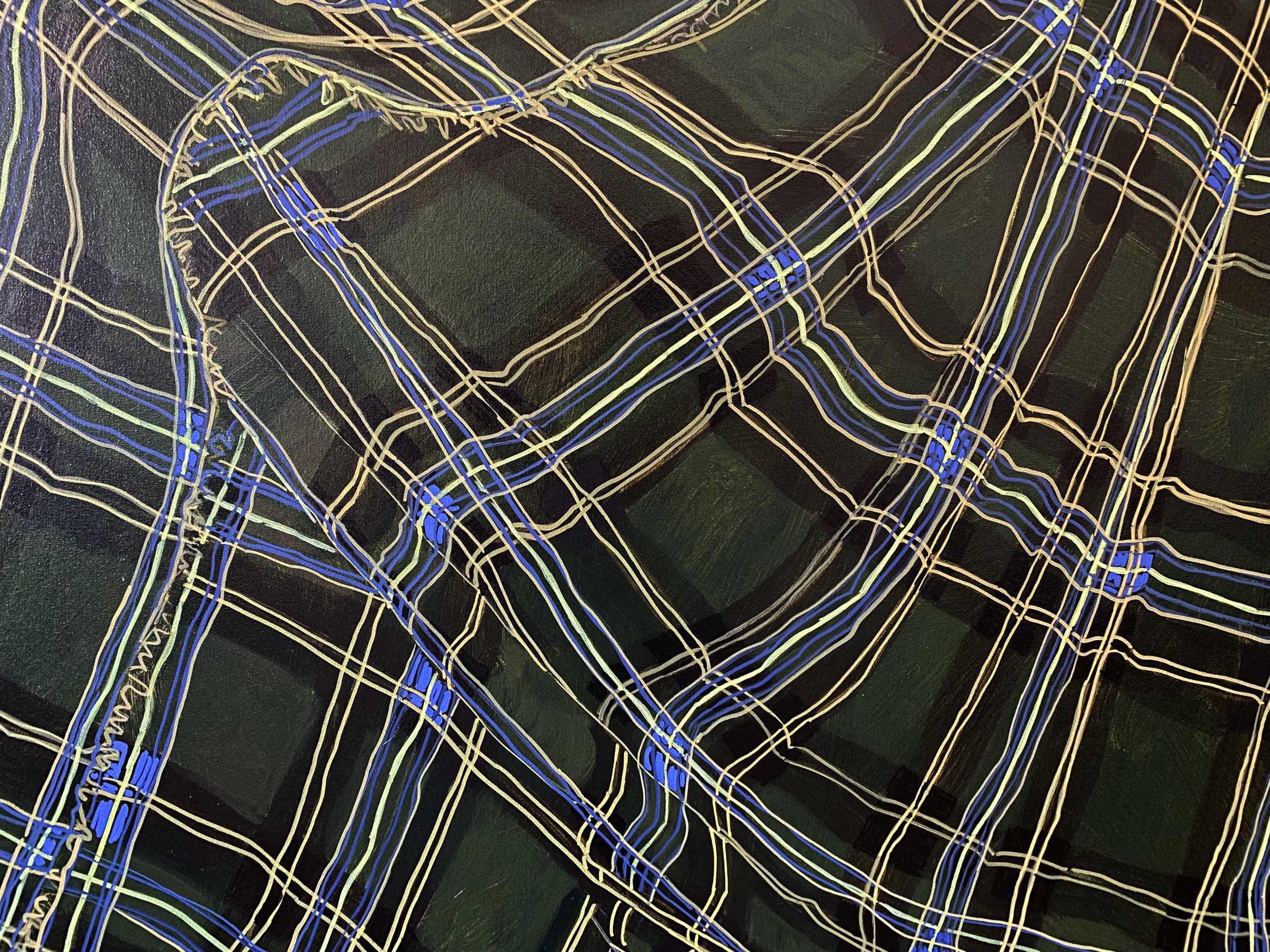
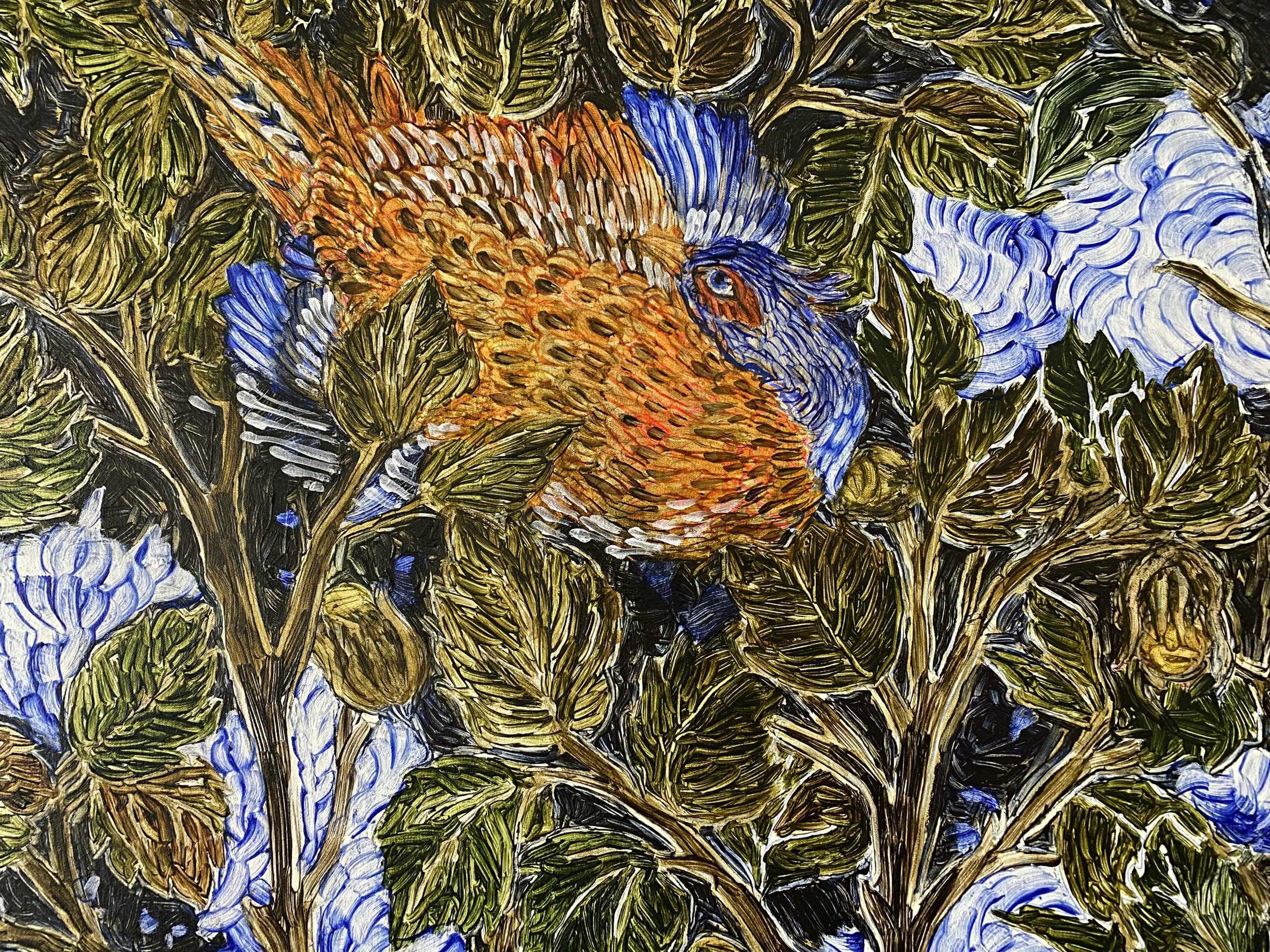
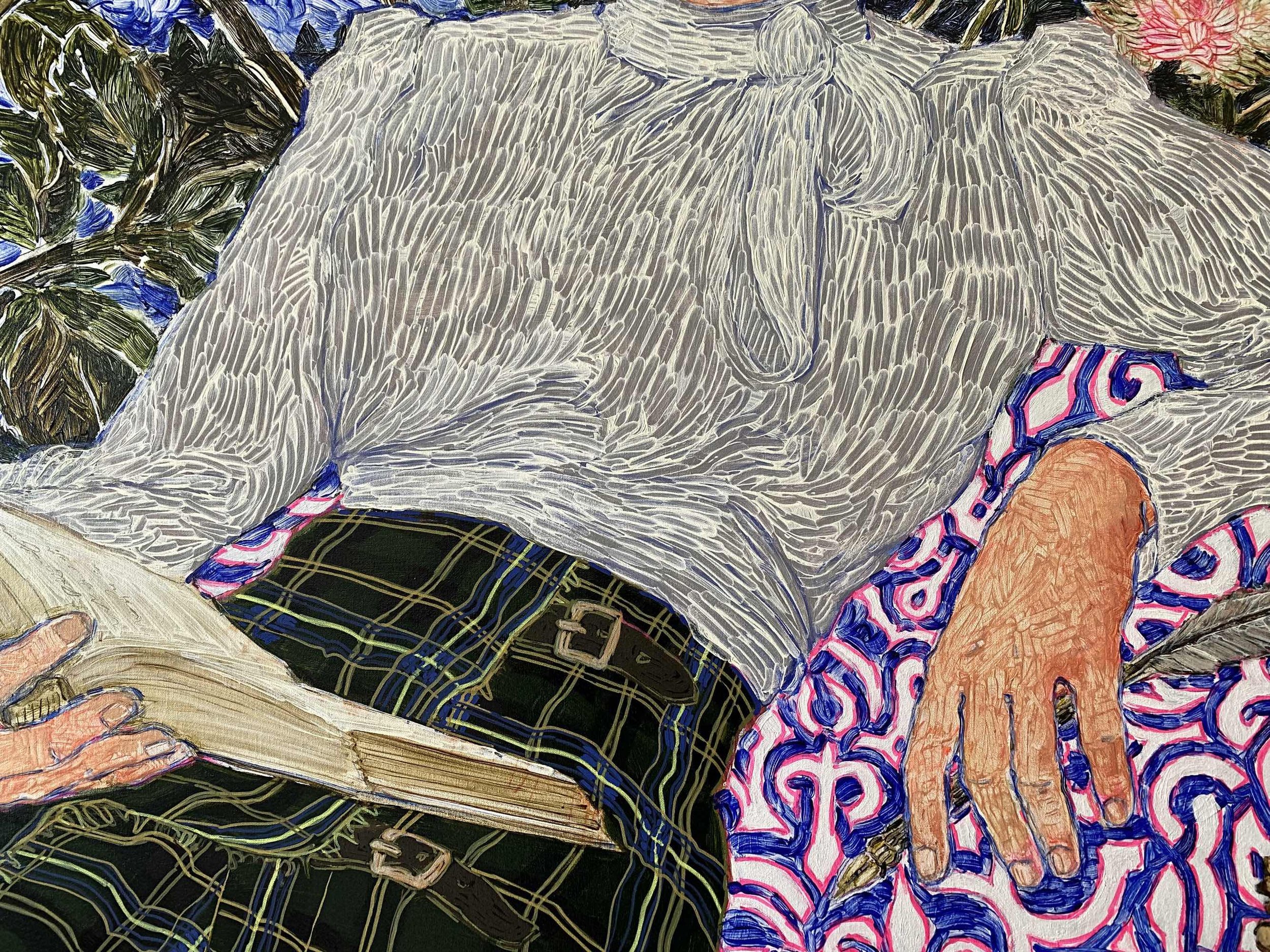
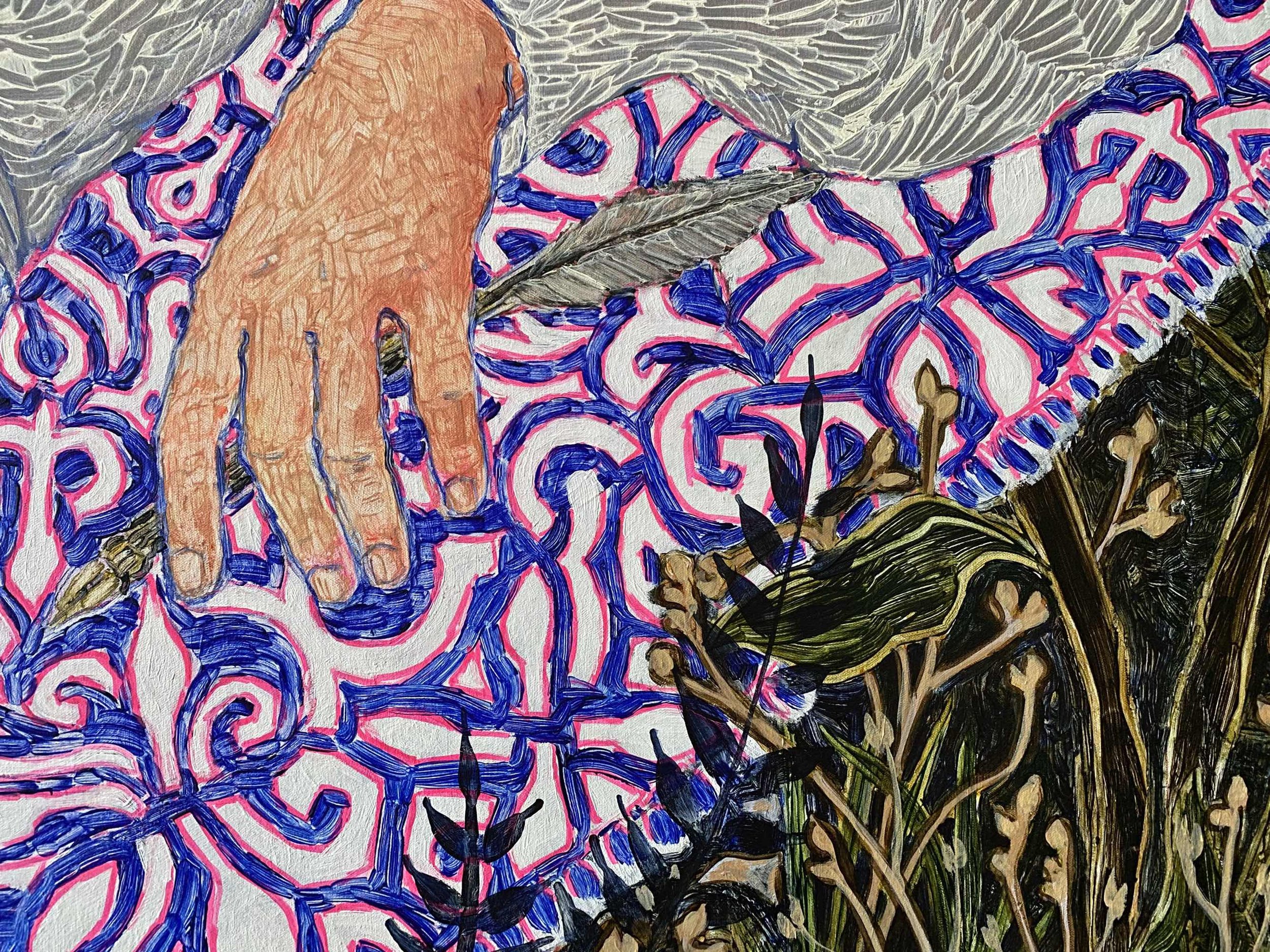
“The beautiful, glittering name fell out of the sky like a steel-blue feather. She watched it fall, turning and twisting like a slow-falling arrow that cleaves the deep air beautifully. He was coming, as he always came, in moments of dead calm; when the wave rippled and the spotted leaves fell slowly over her foot in the autumn woods; when the leopard was still; the moon was on the waters, and nothing moved in between sky and sea. Then he came.
All was still now. It was near midnight. The moon rose slowly over the weald. Its light raised a phantom castle upon earth. There stood the great house with all its windows robed in silver. Of wall or substance there was none. All was phantom. All was still. All was lit as for the coming of a dead Queen. Gazing below her, Orlando saw dark plumes tossing in the courtyard, and torches flickering and shadows kneeling. A Queen once more stepped from her chariot .
’The house is at your service, Ma’am,’ she cried, curtseying deeply.”
LADY GEORGIANA BURNE-JONES - 170 x 175 CM
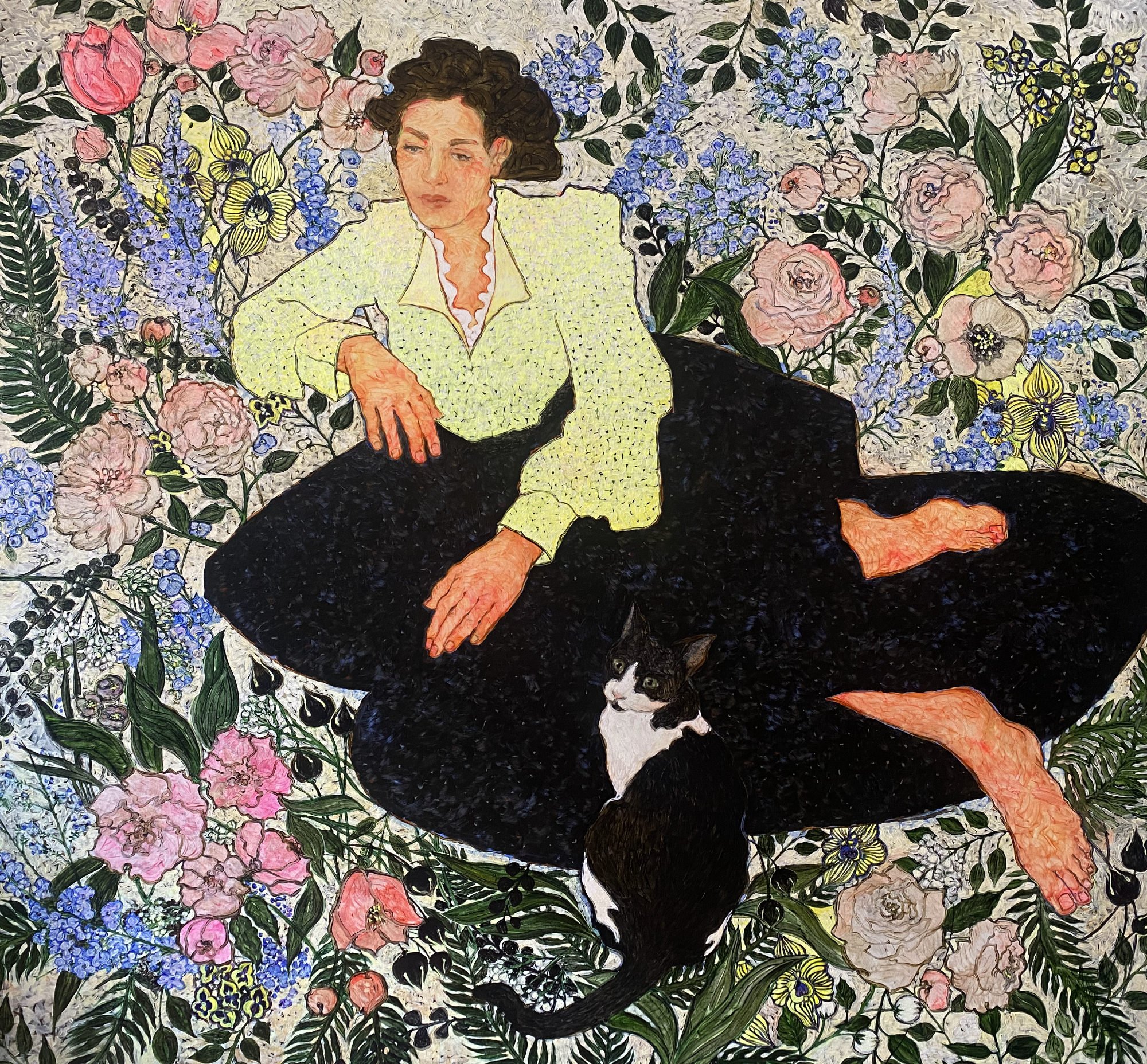
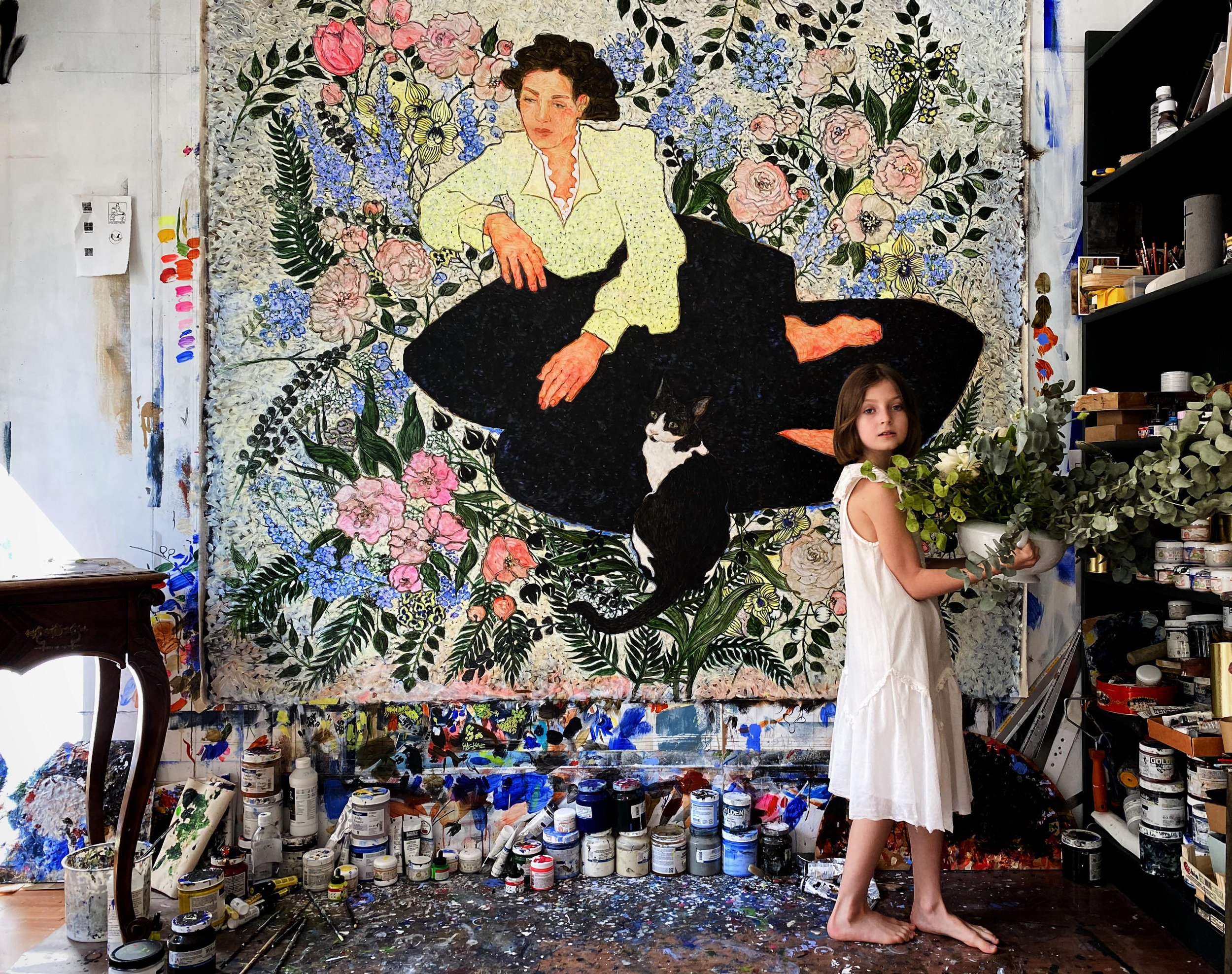
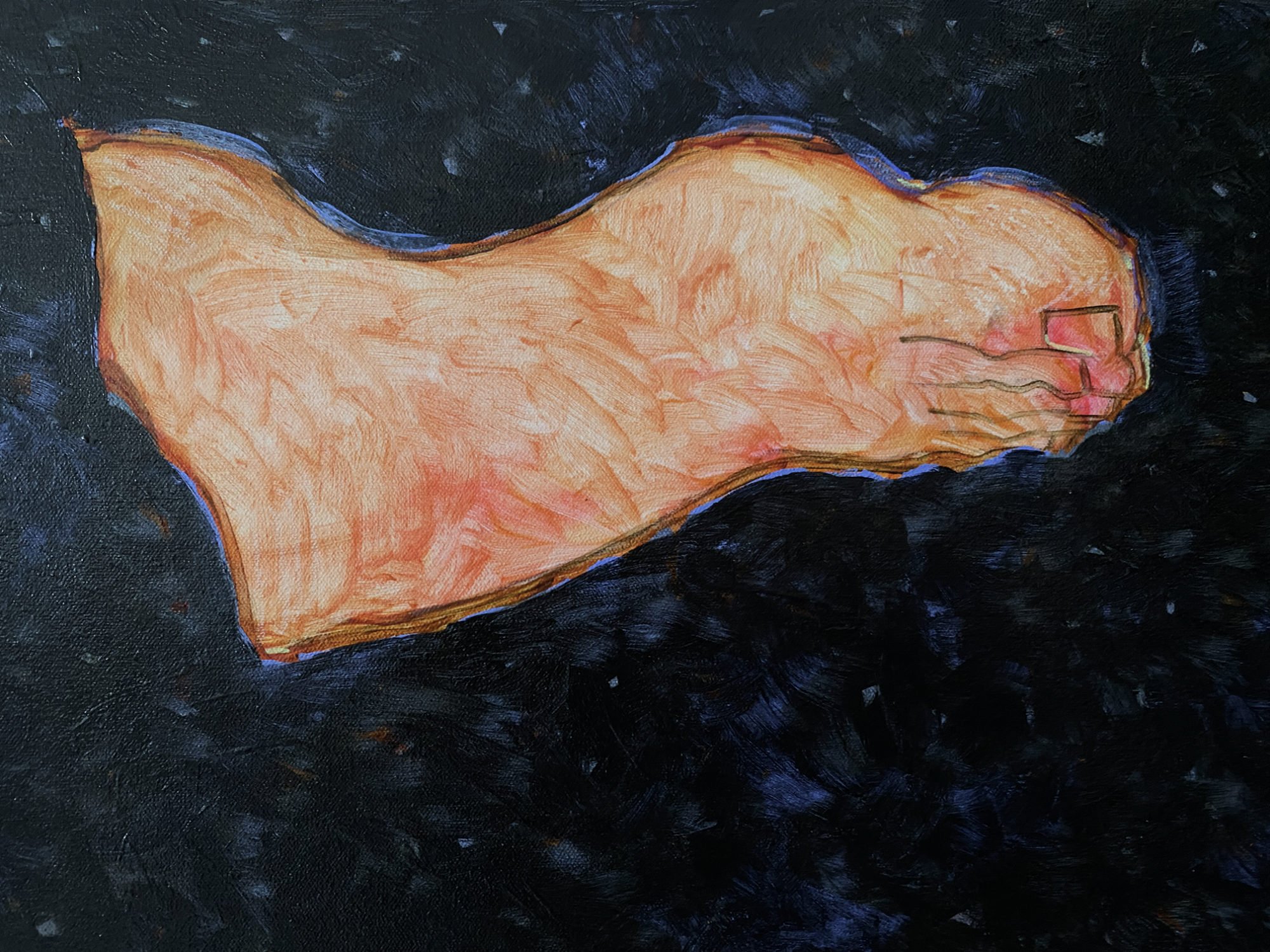
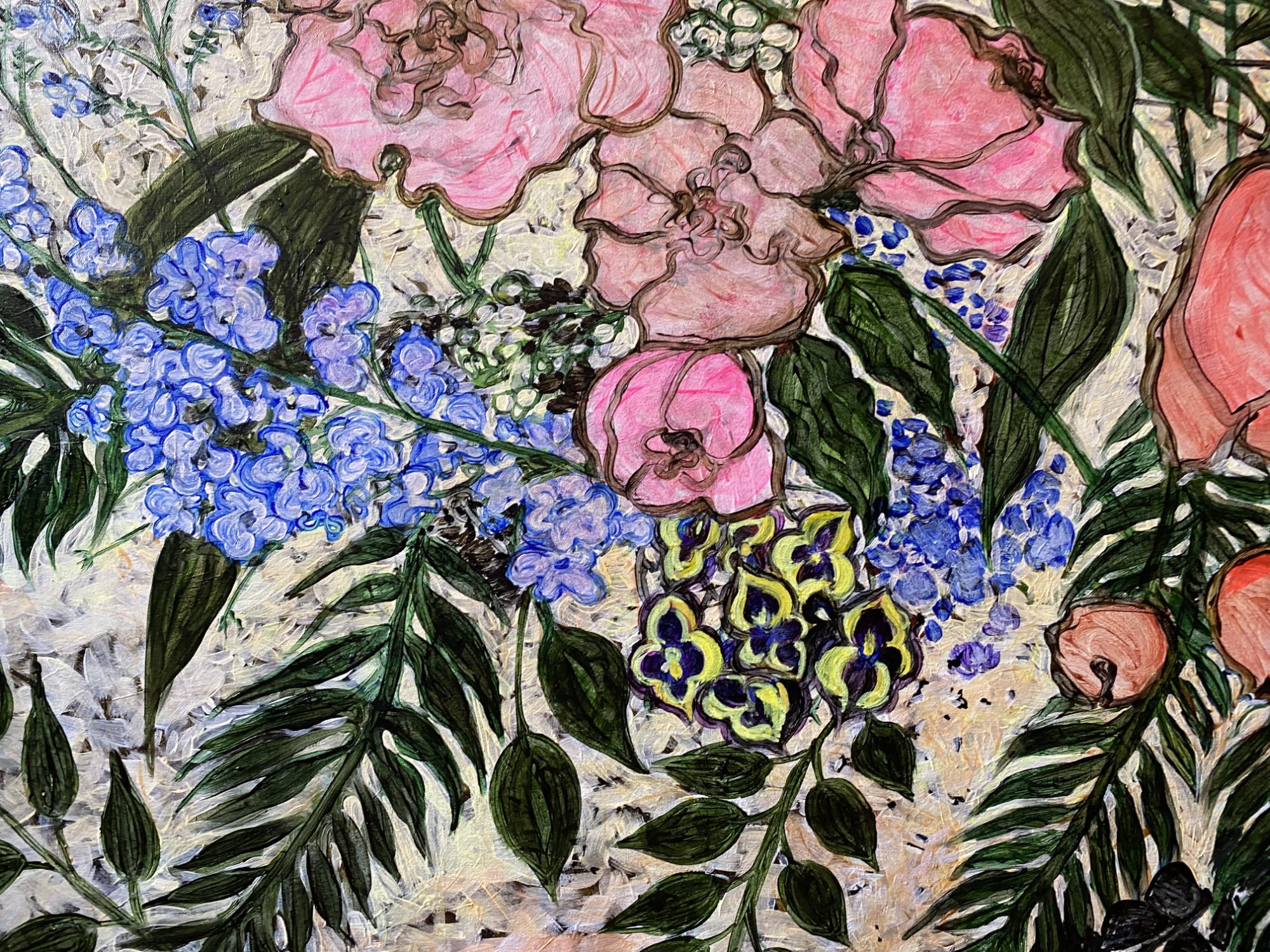
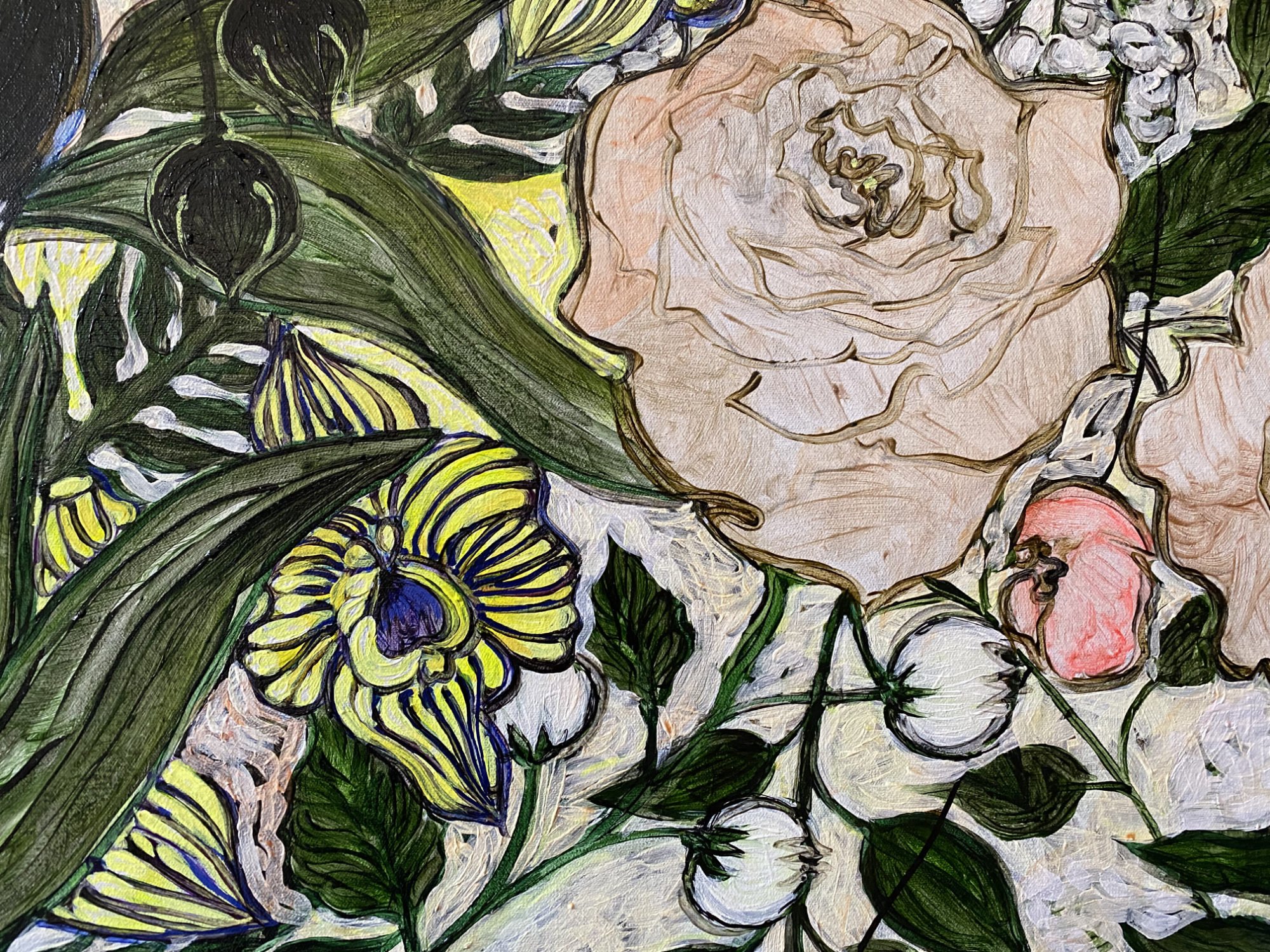
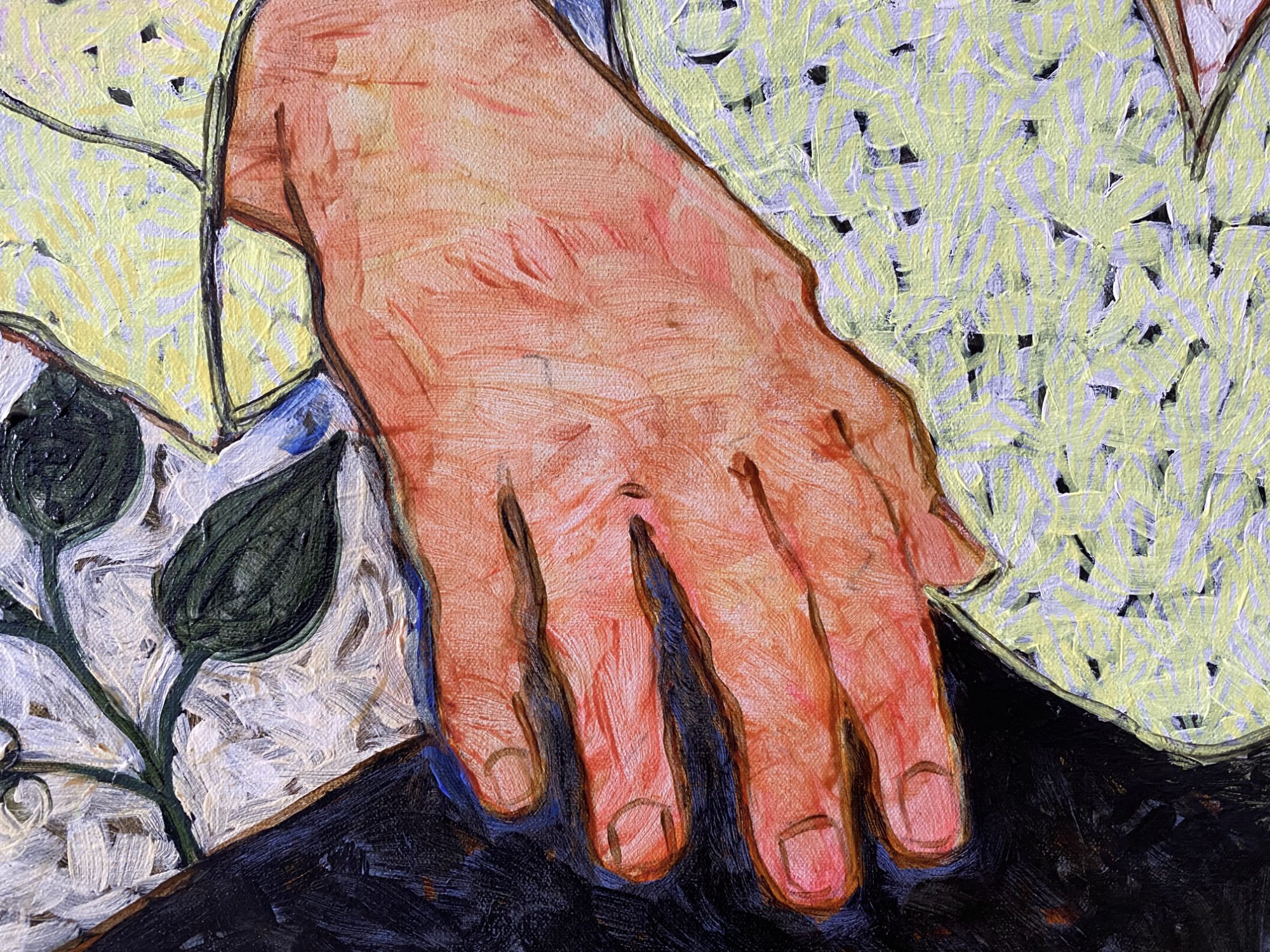
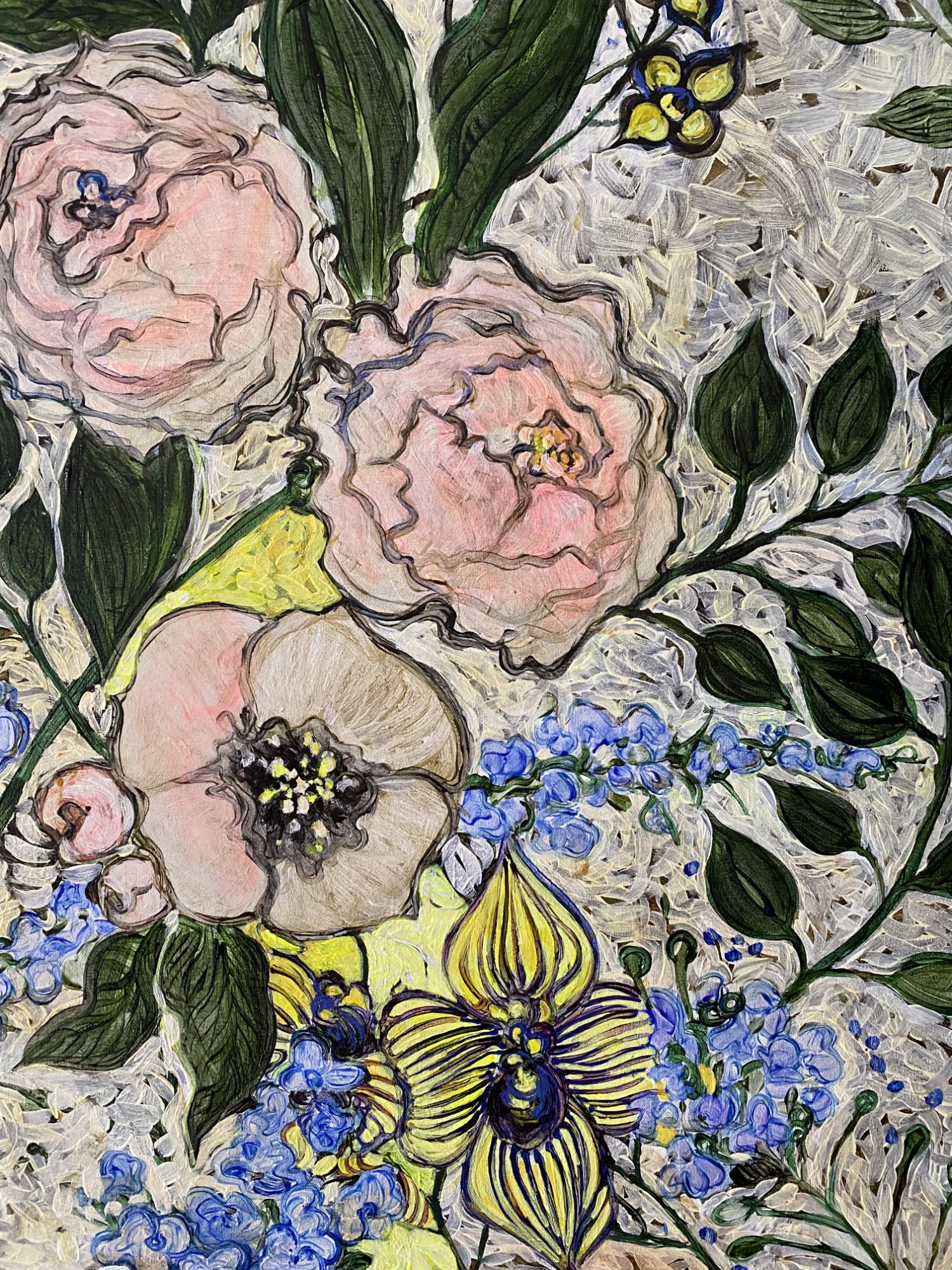
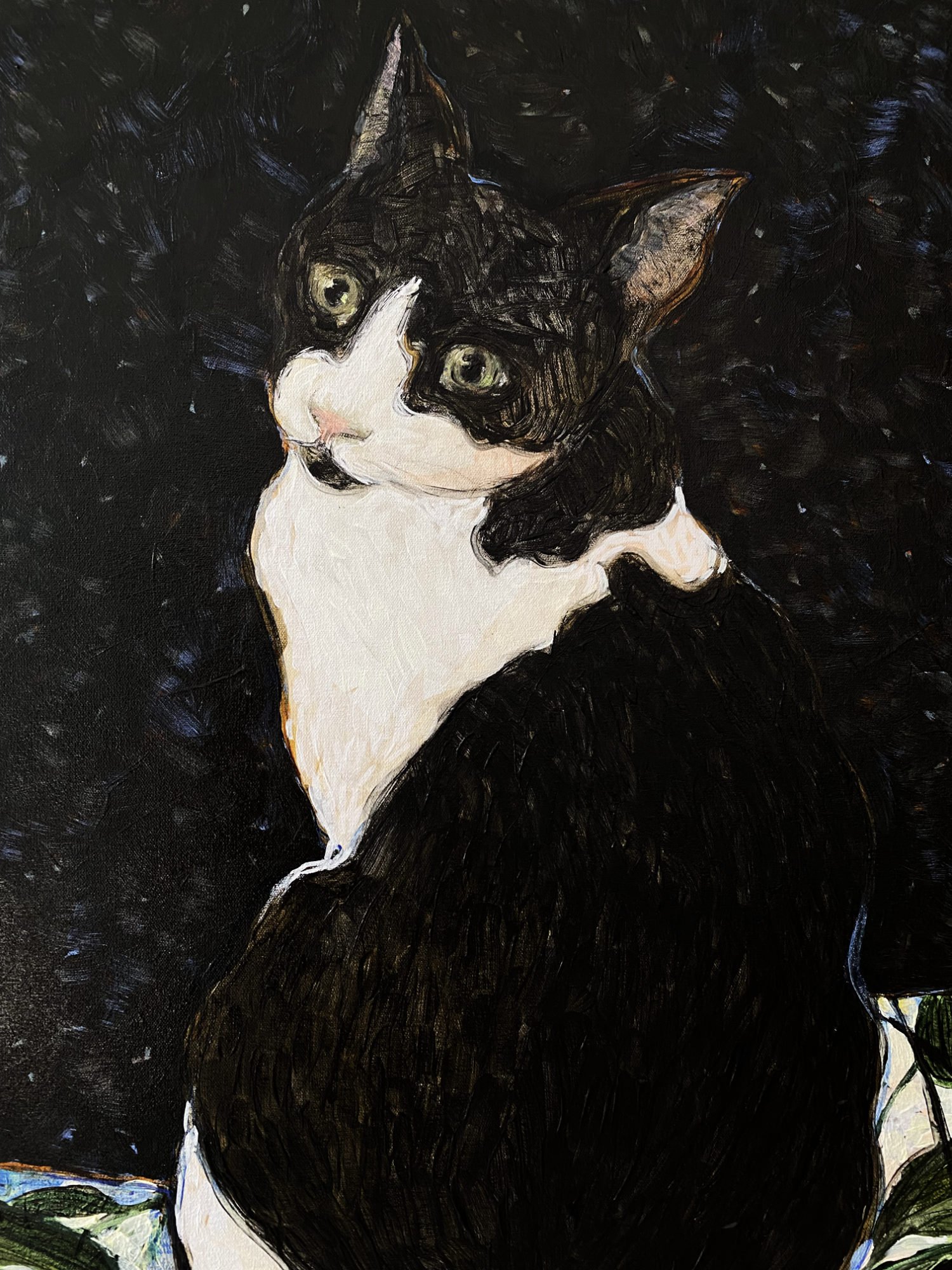
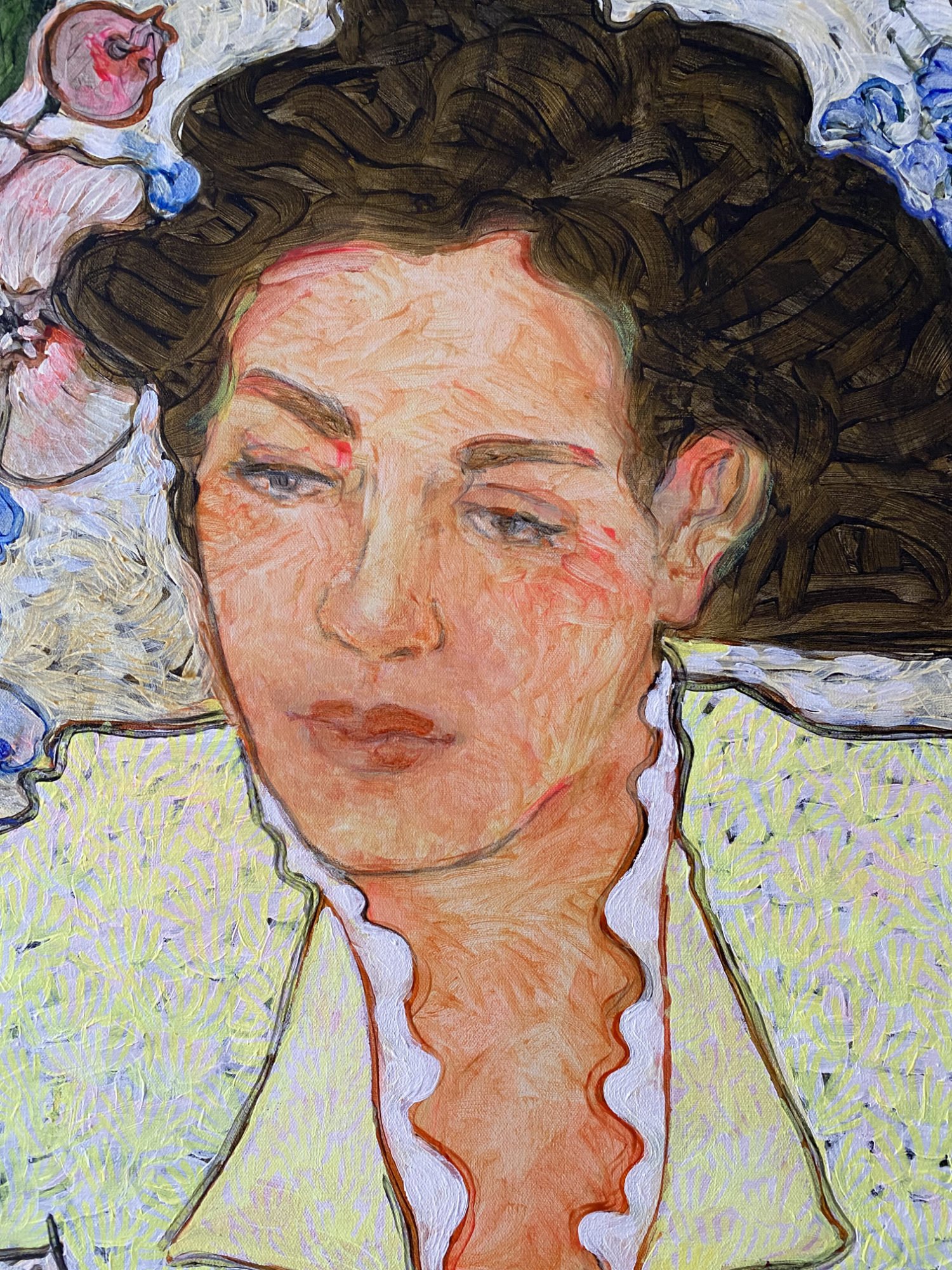
“Spring Quiet
Gone were but the Winter,
Come were but the Spring,
I would go to a covert
Where the birds sing;
Where in the whitethorn
Singeth a thrush,
And a robin sings
In the holly-bush.
Full of fresh scents
Are the budding boughs
Arching high over
A cool green house:
Full of sweet scents,
And whispering air
Which sayeth softly:
”We spread no snare;
”Here dwell in safety,
Here dwell alone,
With a clear stream
And a mossy stone.
”Here the sun shineth
Most shadily;
Here is heard an echo
Of the far sea,
Though far off it be.”
VITA SACKVILLE WEST - 142 x 184 CM


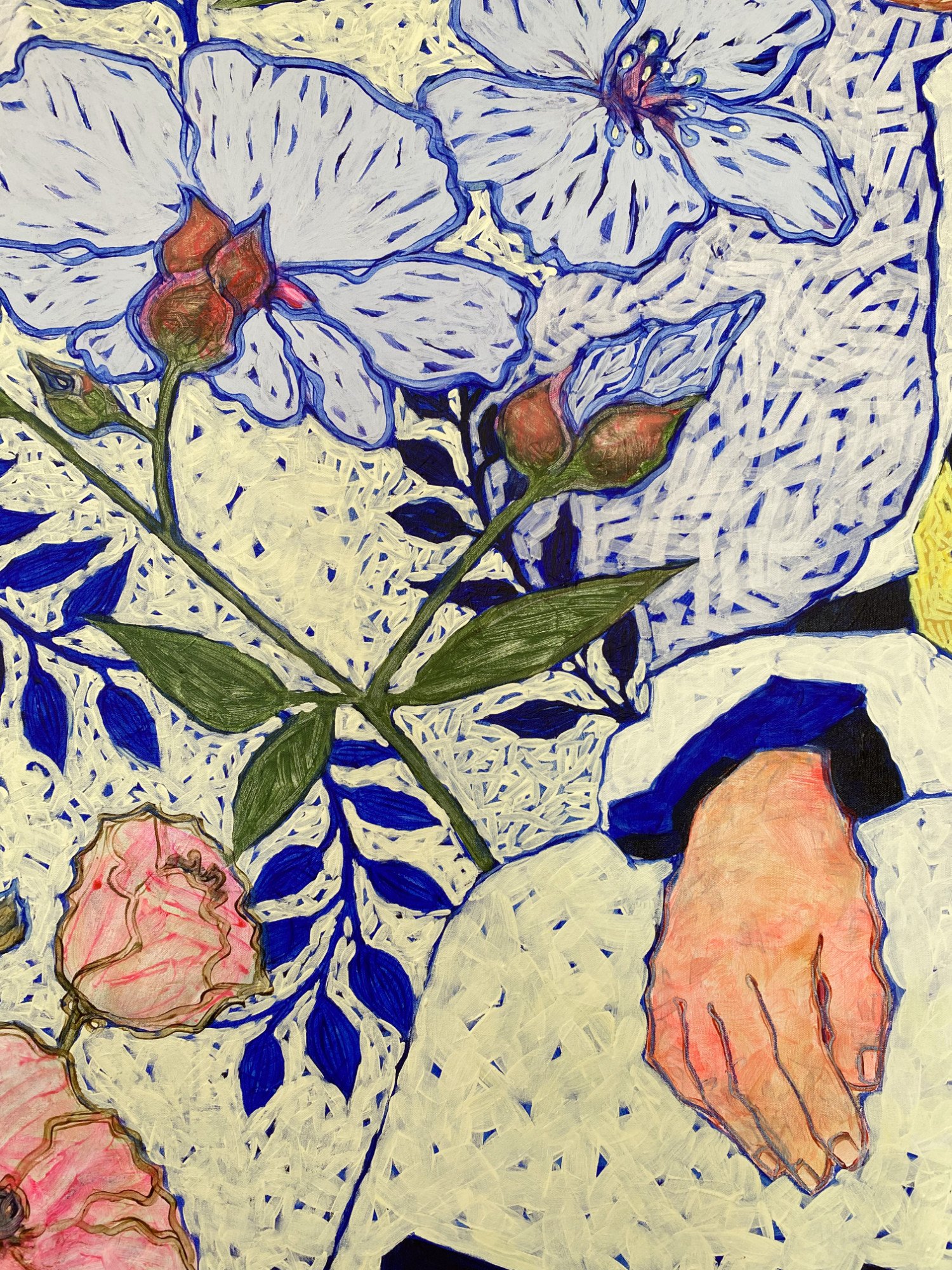
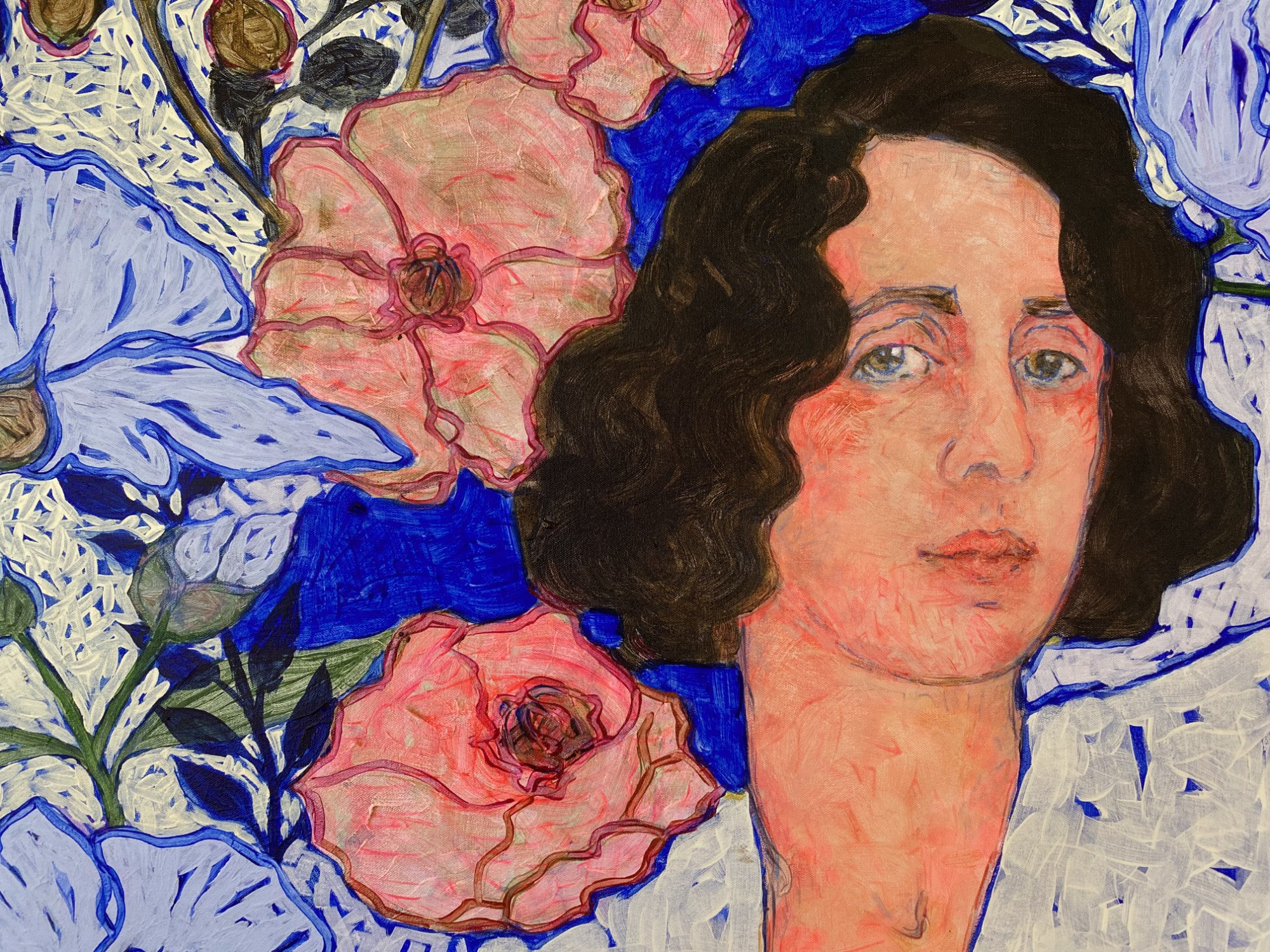
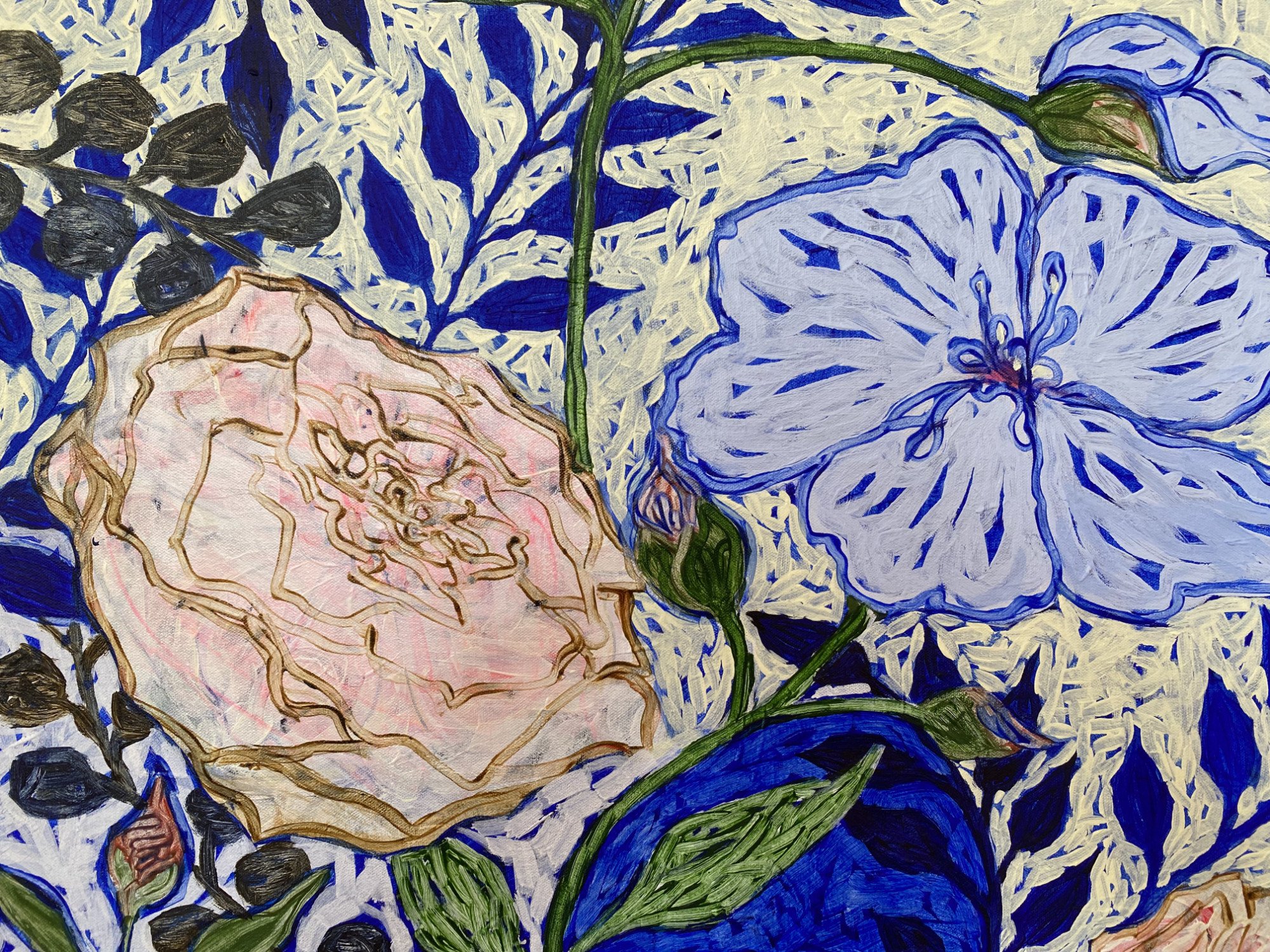
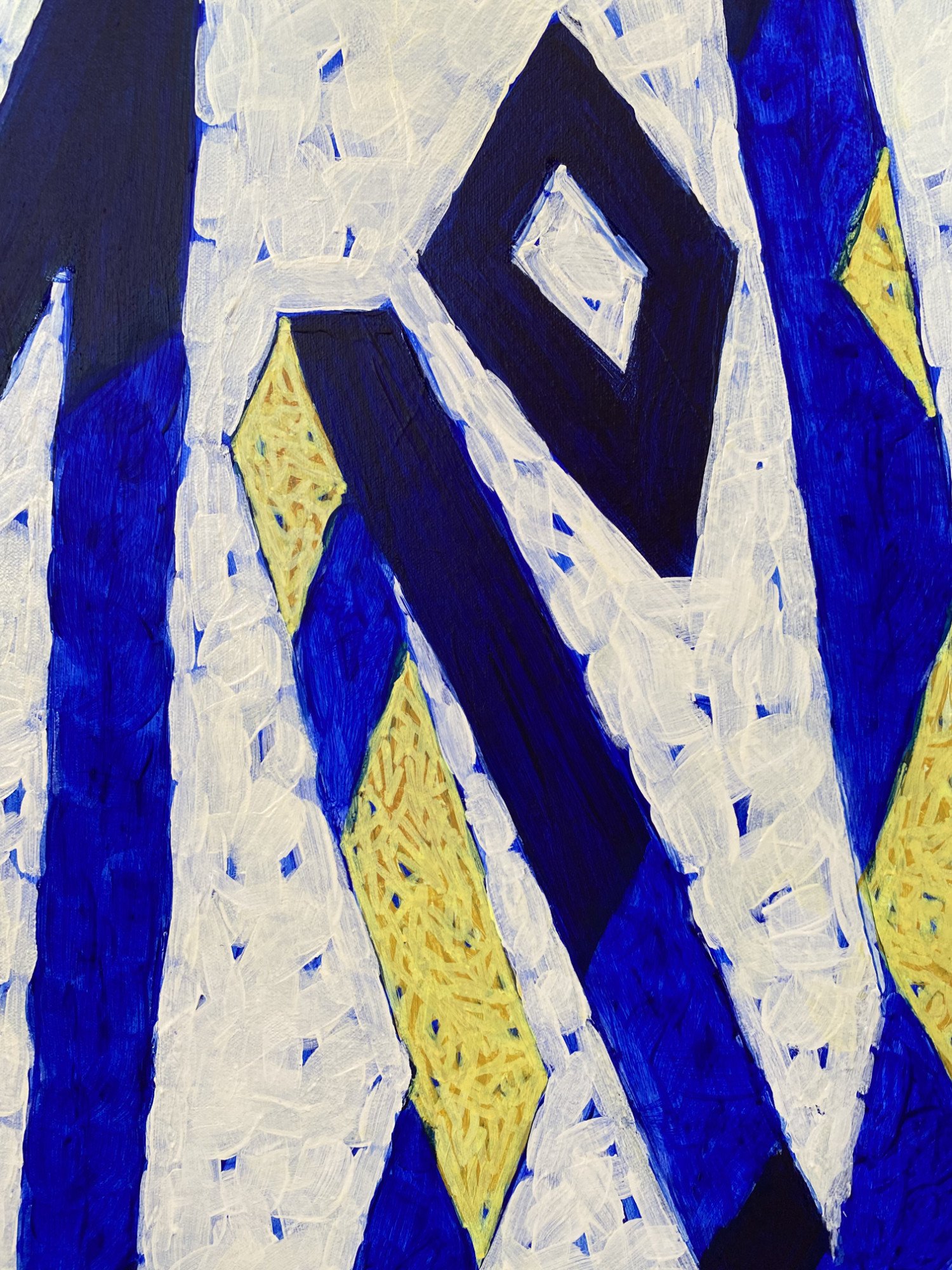
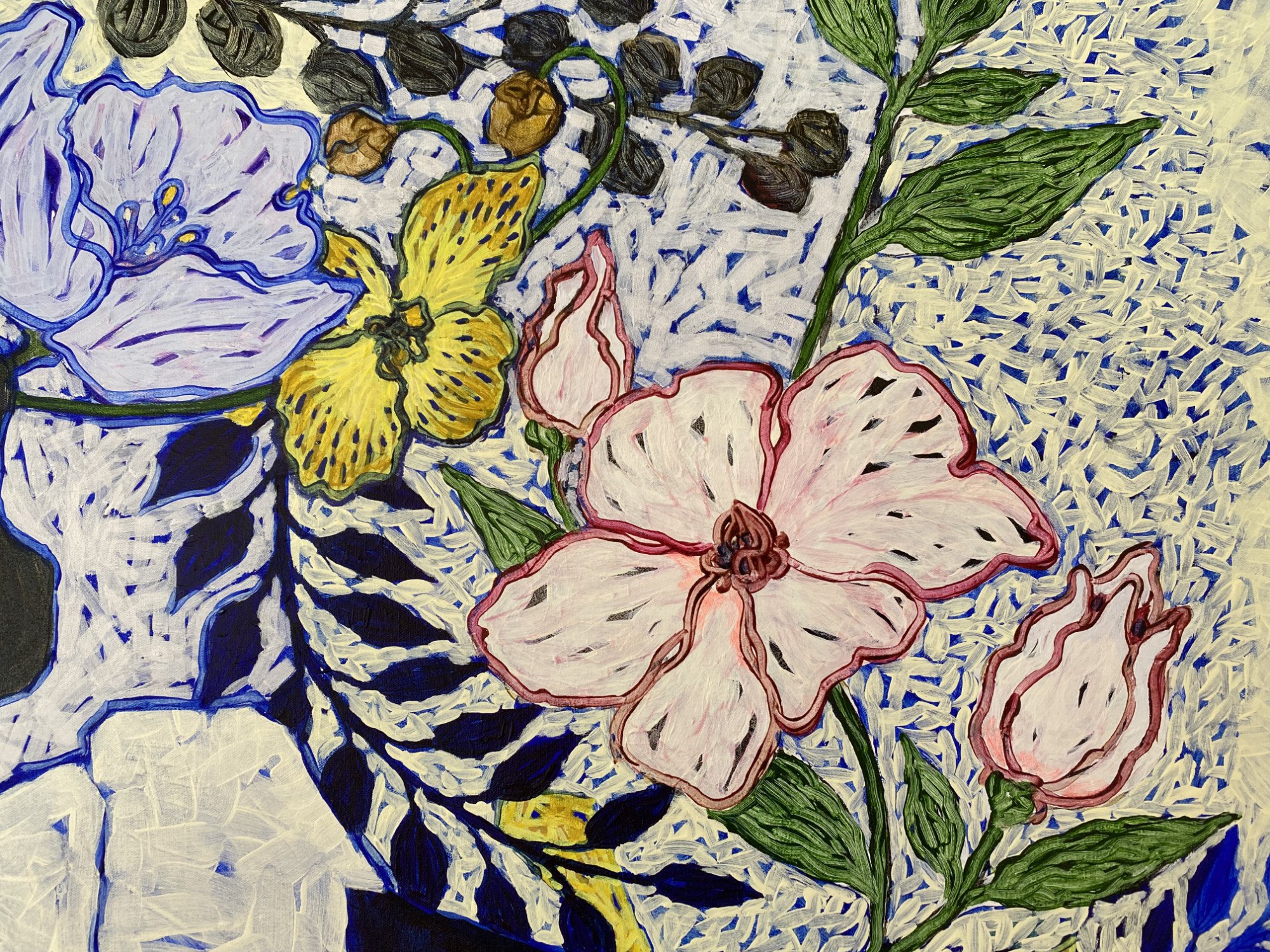
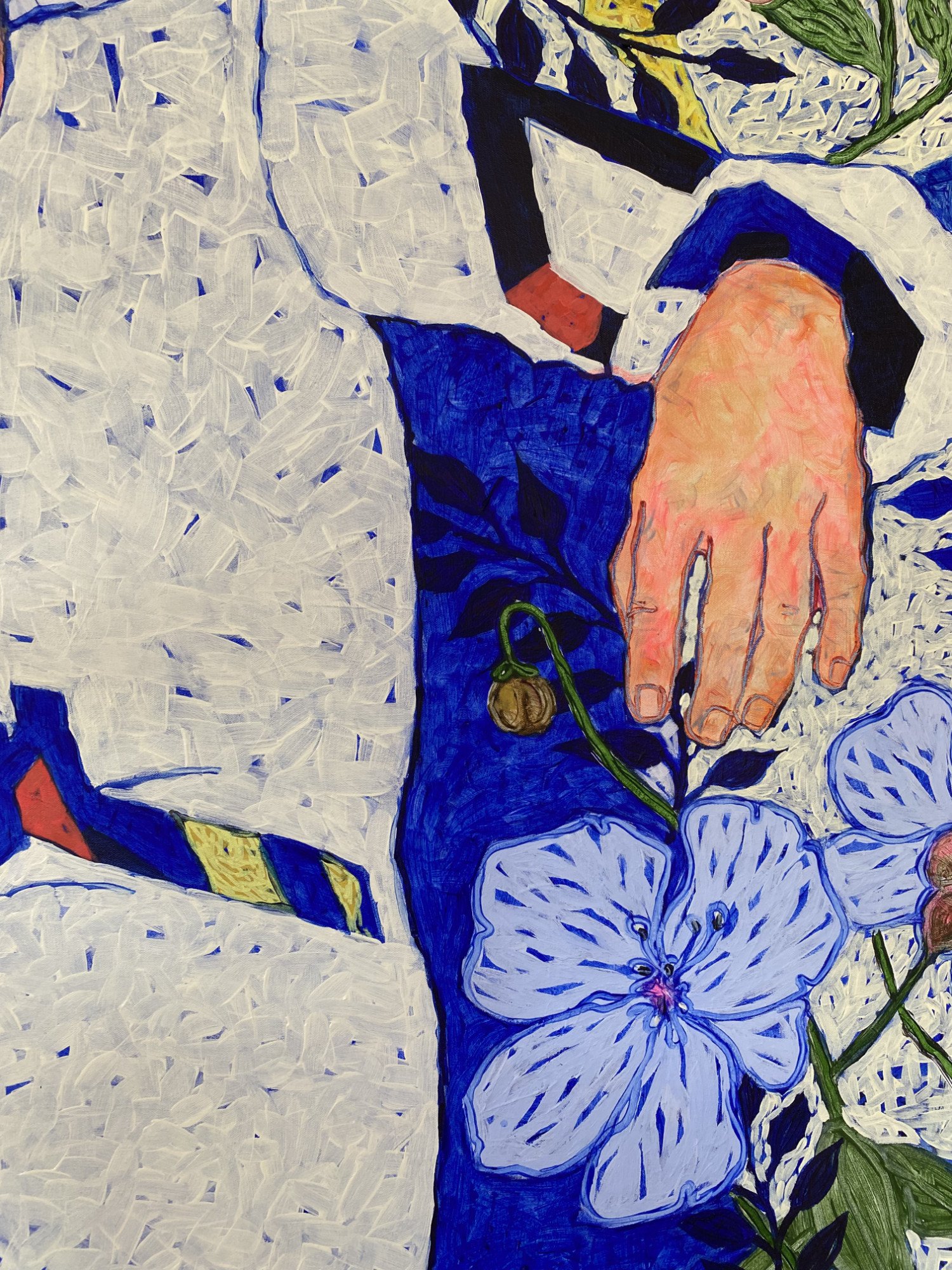
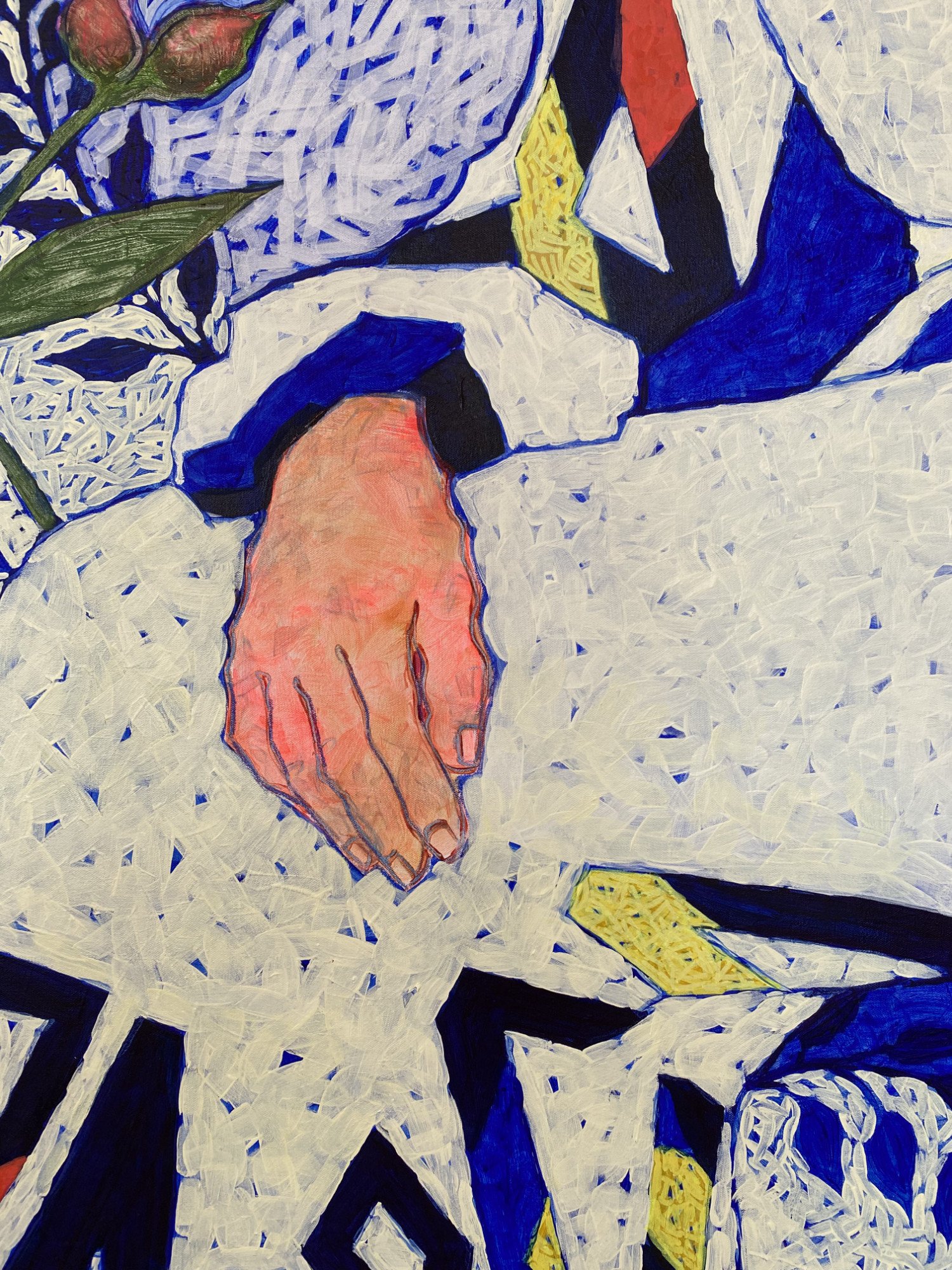
“Days I enjoy
Days I enjoy are days when nothing happens,
When I have no engagements written on my block,
When no one comes to disturb my inward peace,
When no one comes to take me away from myself
And turn me into a patchwork, a jig-saw puzzle,
A broken mirror that once gave a whole reflection,
Being so contrived that it takes too long a time
To get myself back to myself when they have gone to.
The years are too strickly measured, and life too short
For me to afford such bits of myself to my friends.
And what have I to give my friends in the last resort?
An awkwardness, a shyness, and a scrap,
No thing that’s truly me, a bootless waste,
A waste of myself and them, for my life is mine
And theirs presumably theirs, and cannot touch.”
E.M. FORSTER - 160 x 177 CM
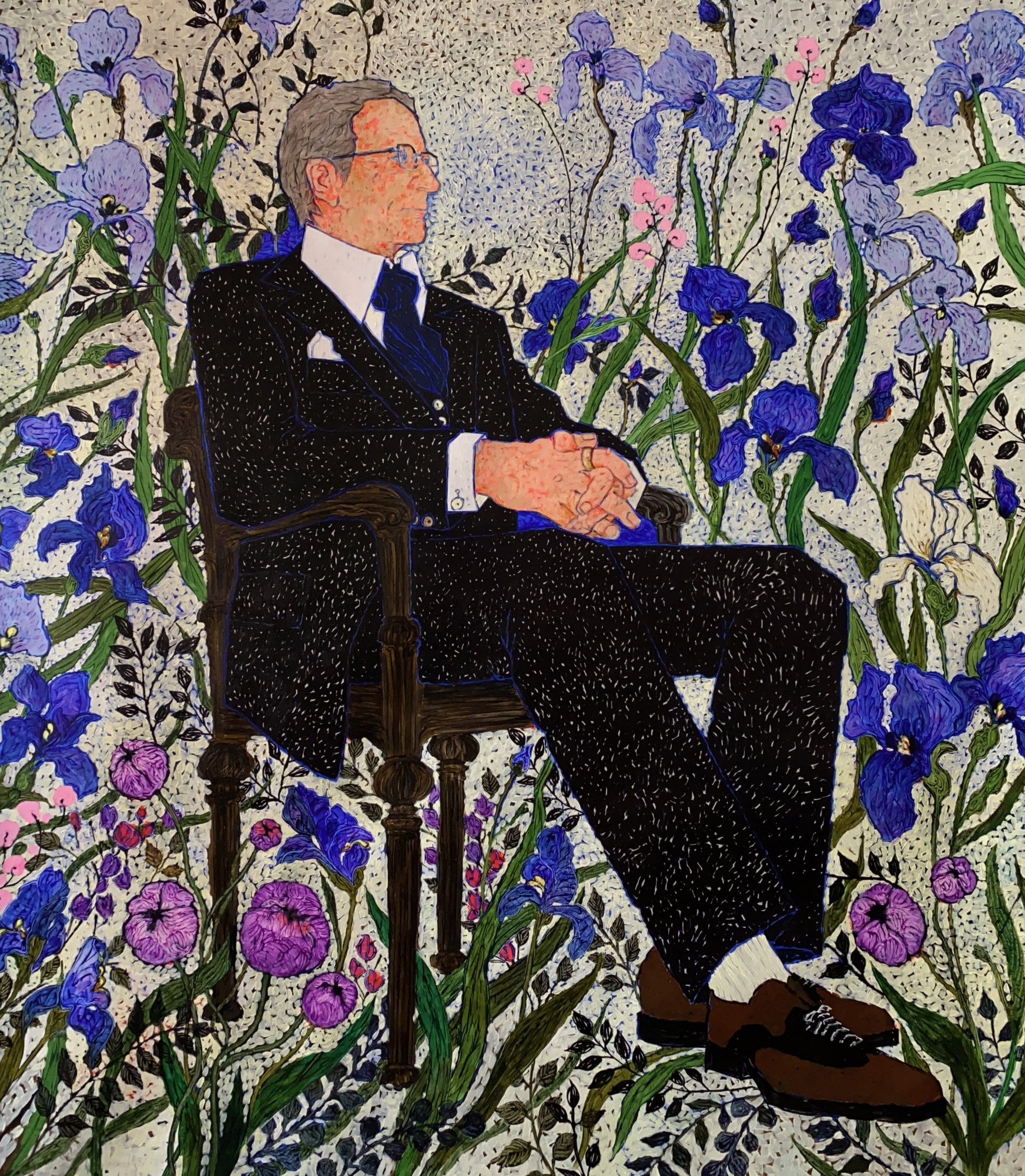

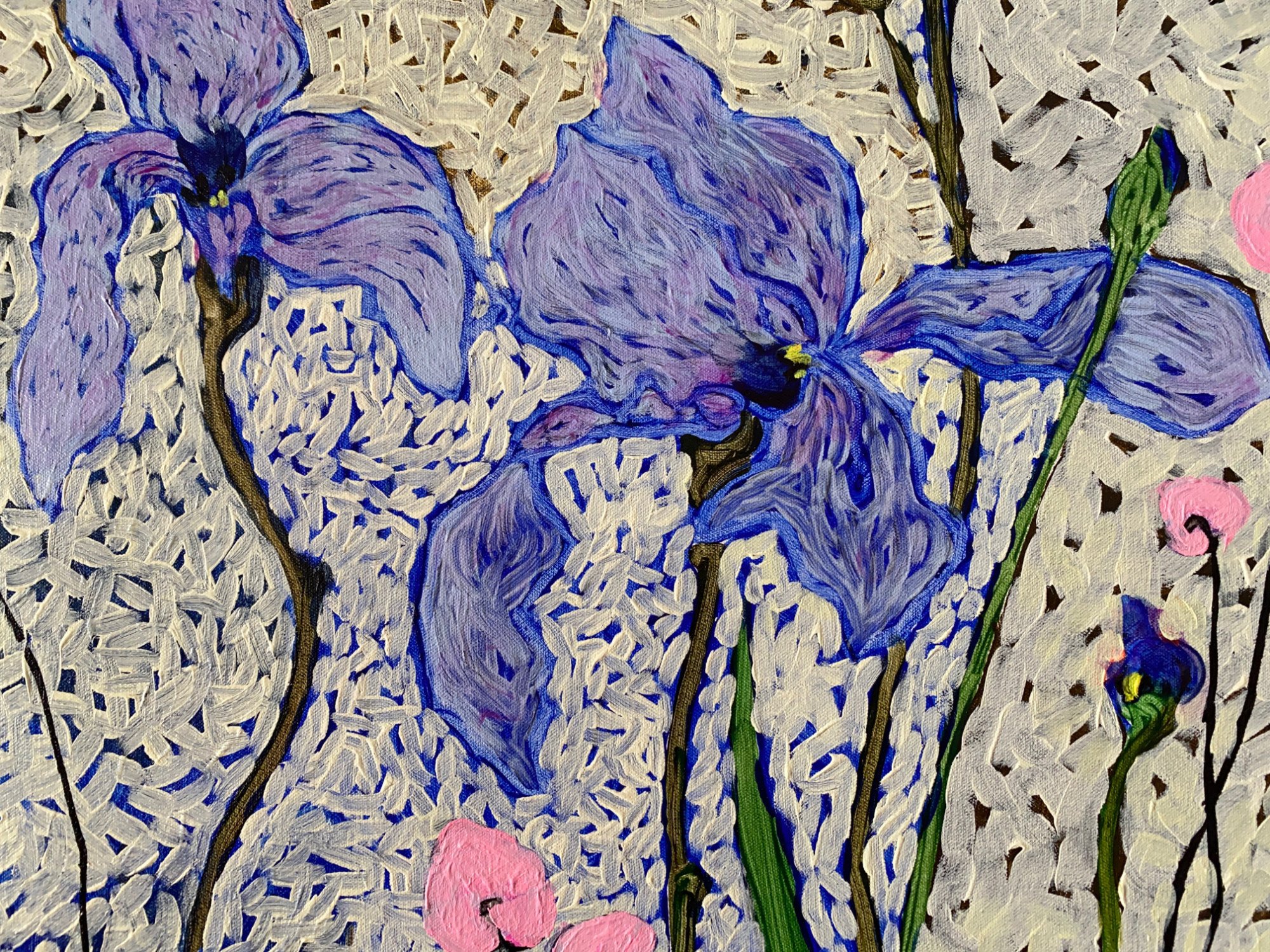
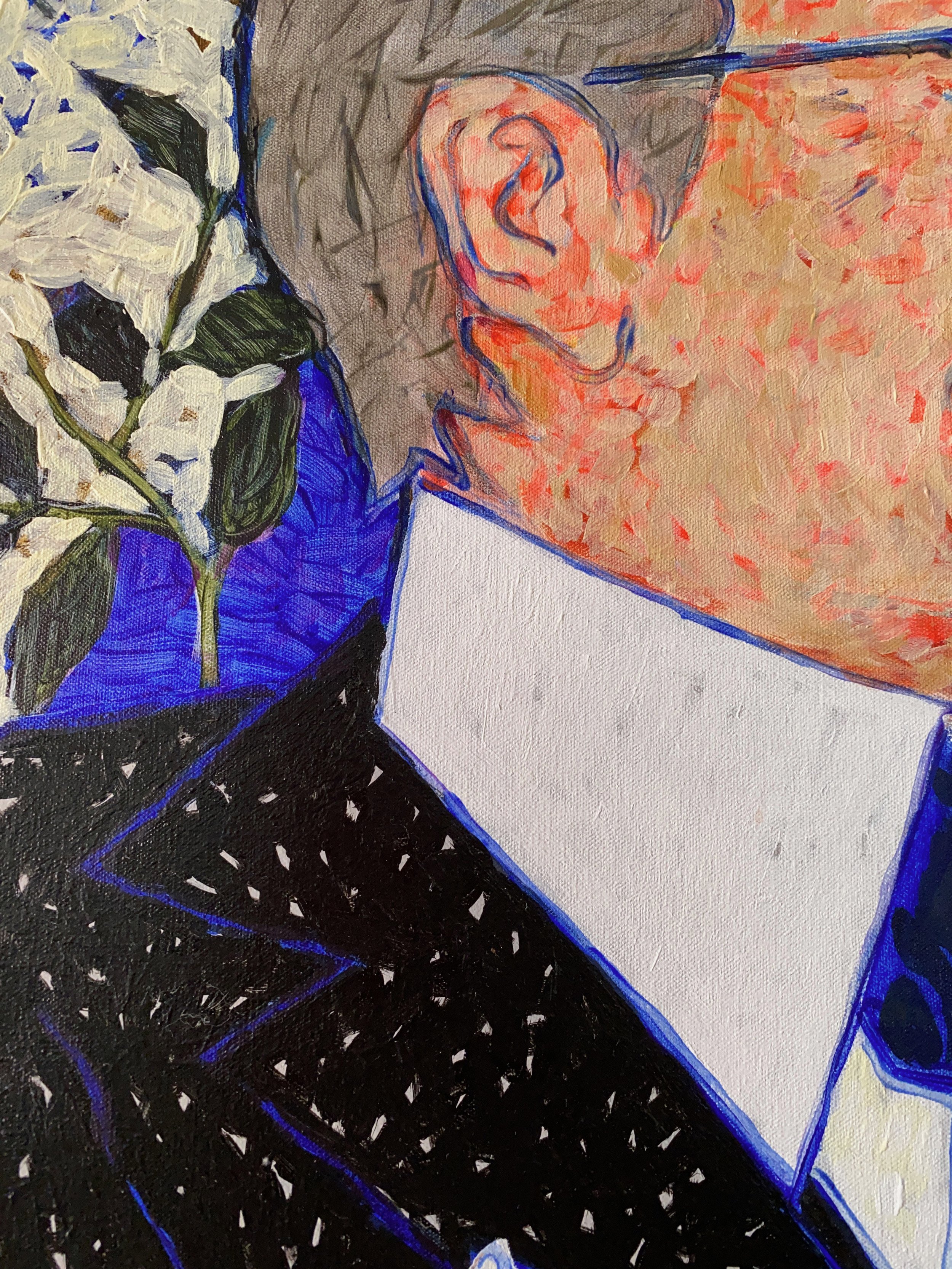
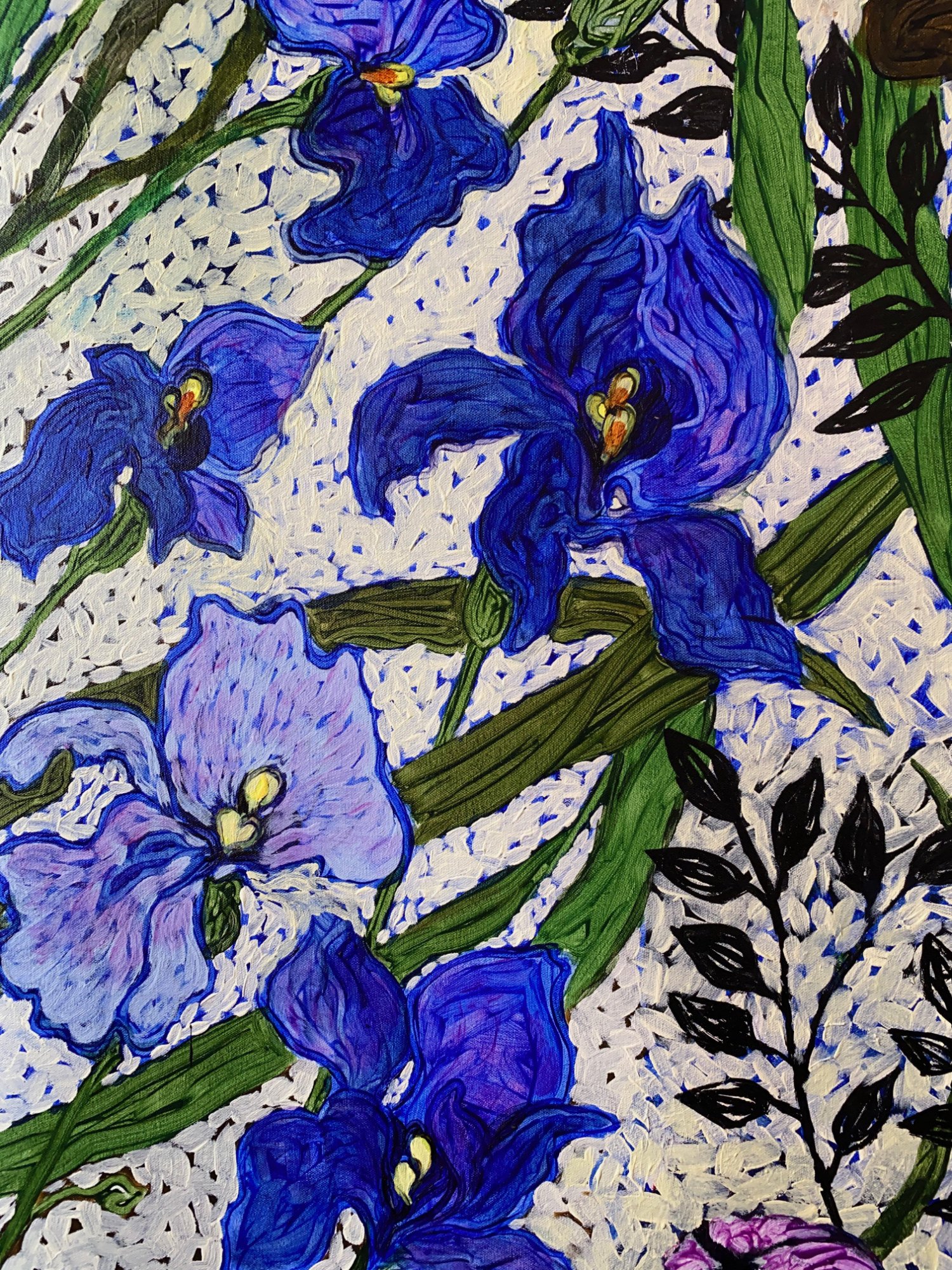
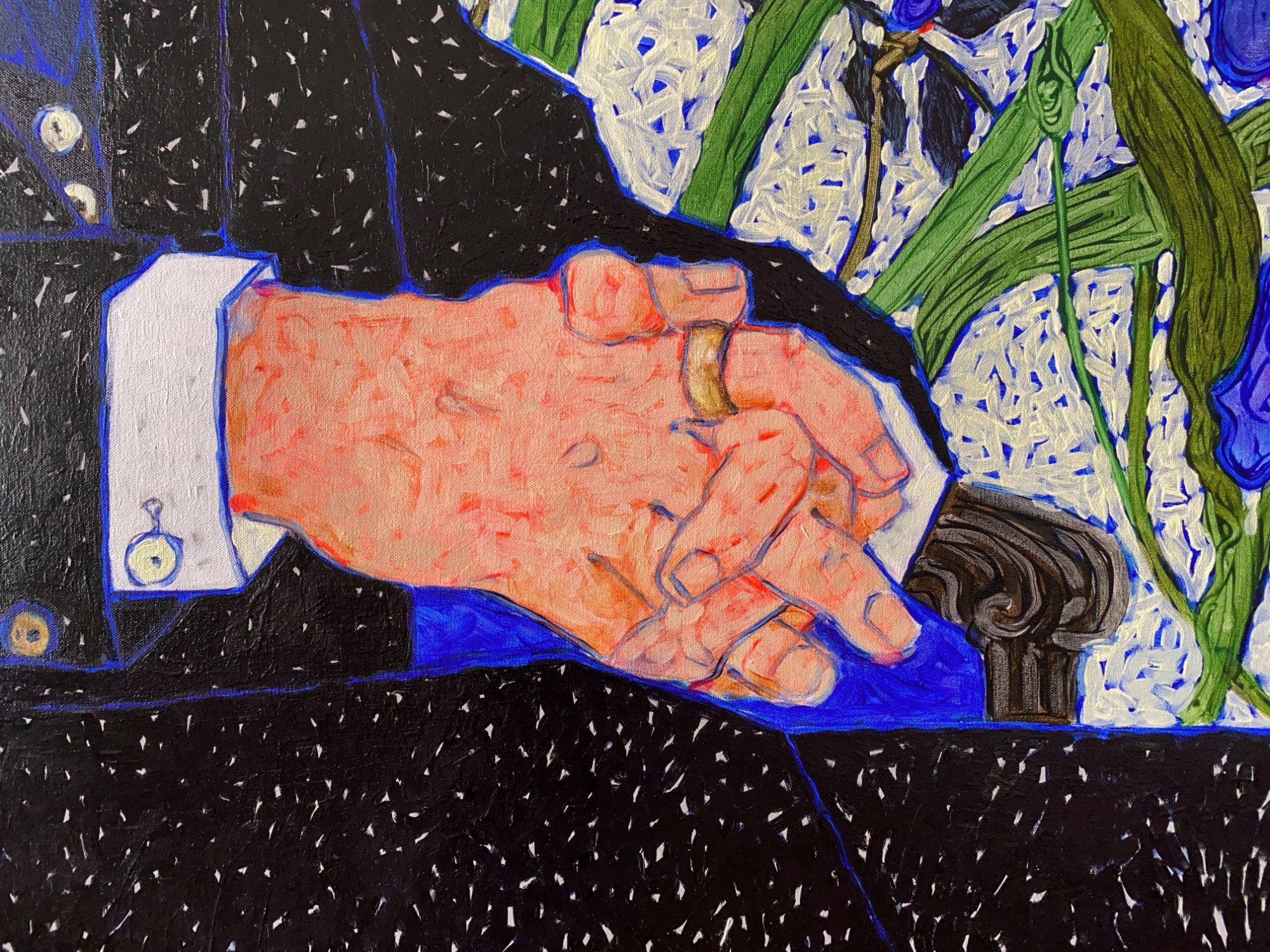
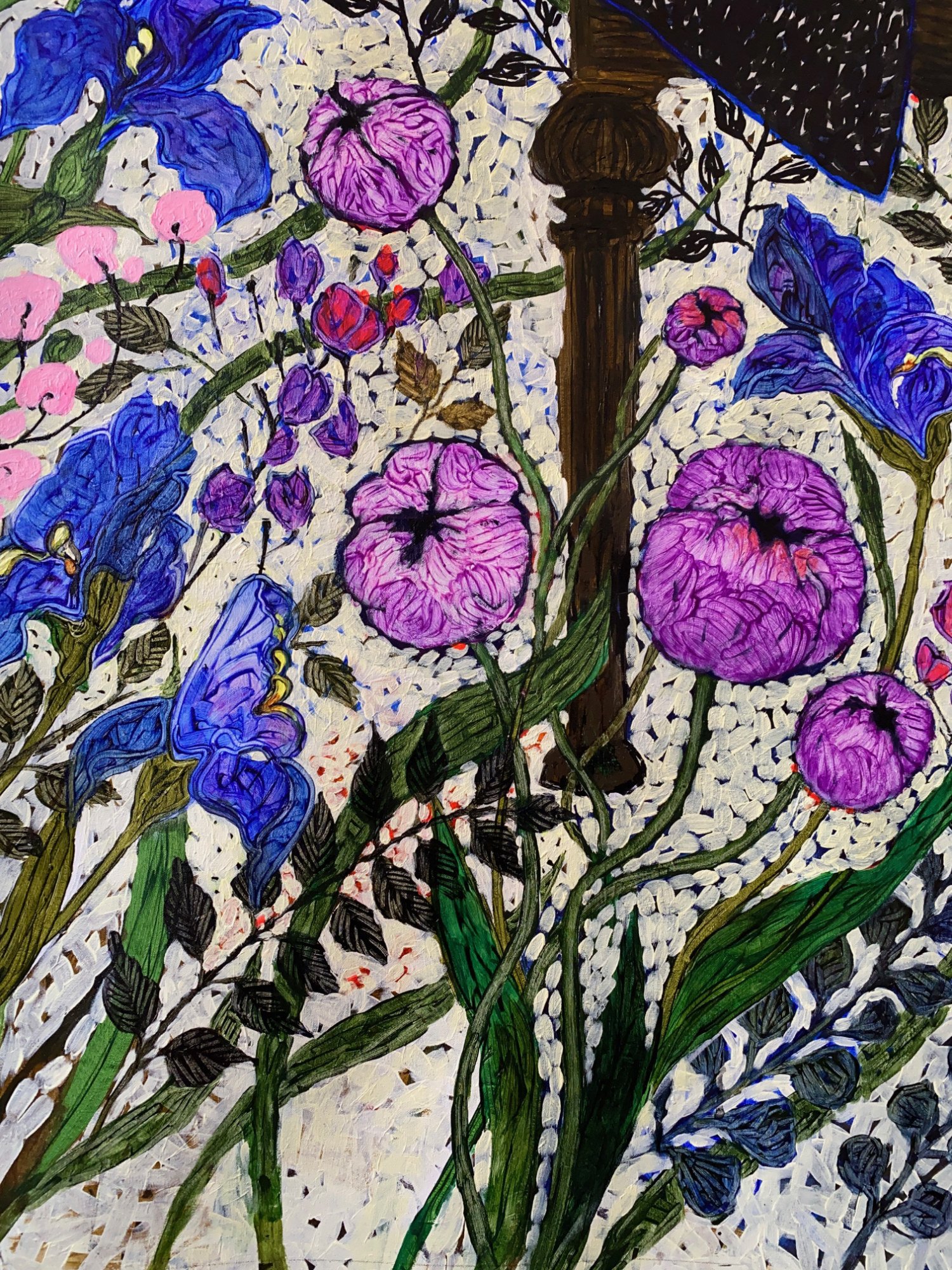
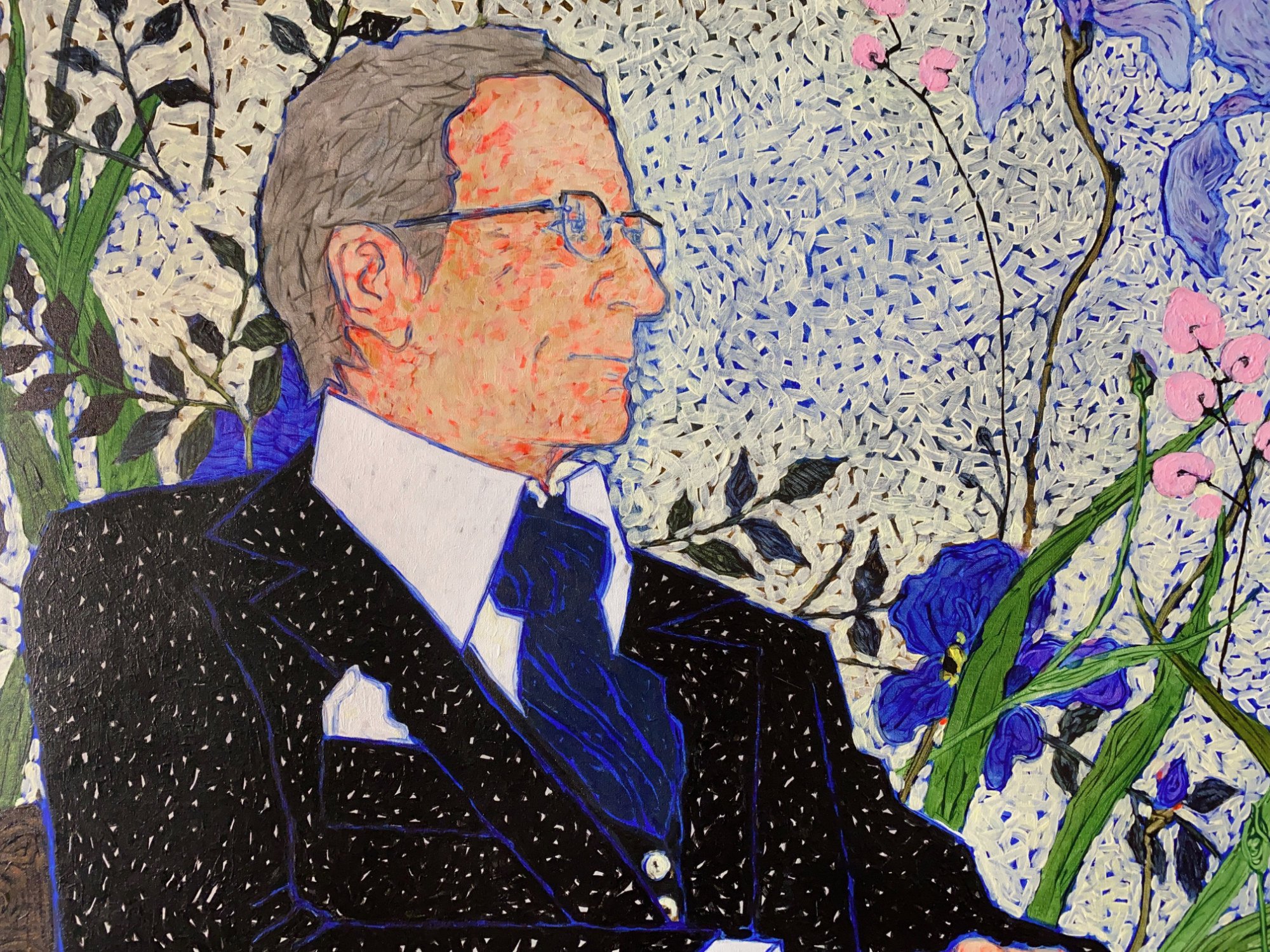
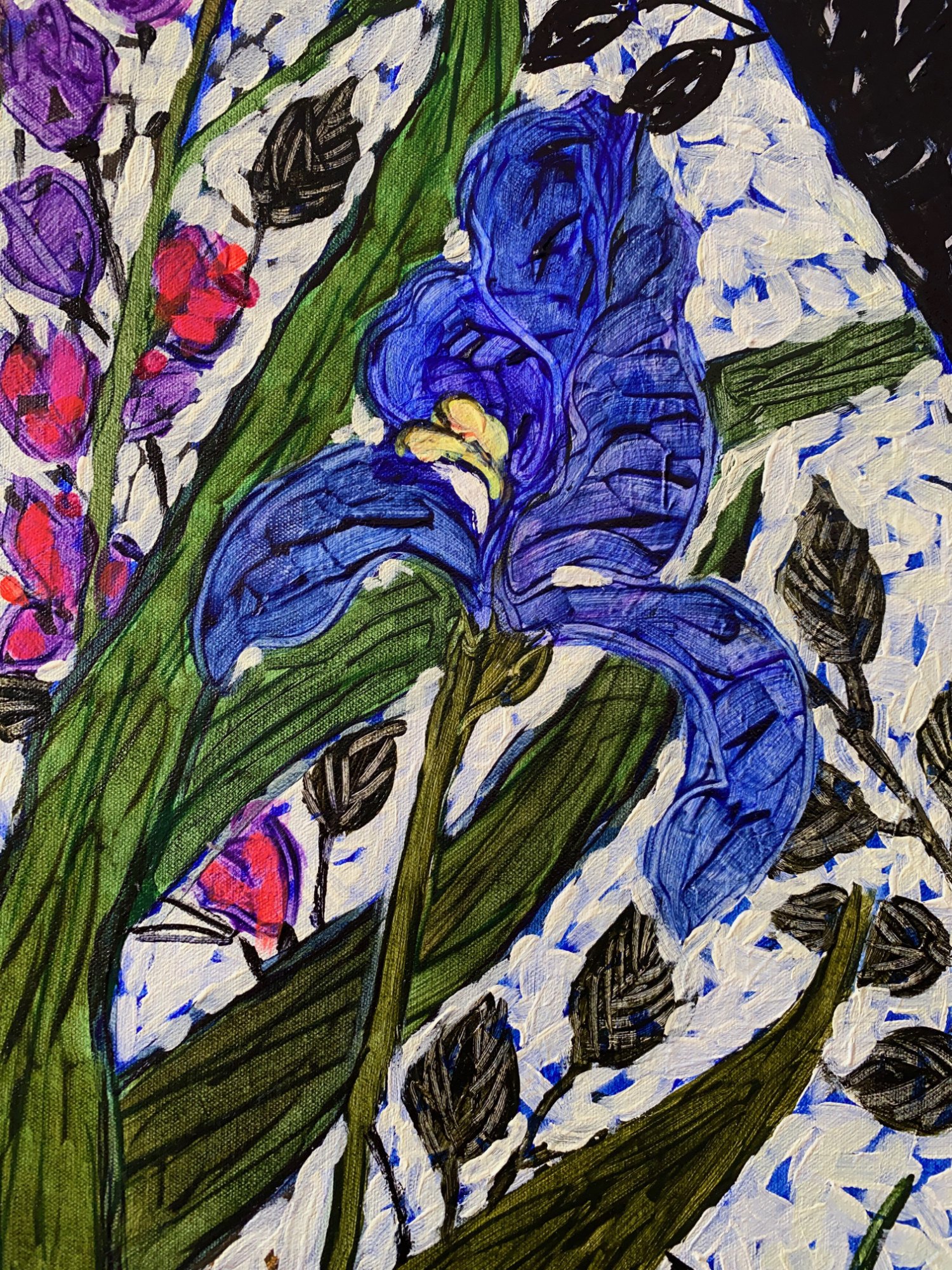
“It is only that people are far more different than is pretended. All over the world men and women are worrying because they cannot develop as they are supposed to develop. Here and there they have the matter out, and it comforts them. Don’t fret yourself, Helen. Develop what you have; love your child. I do not love children. I am thankful to have none. I can play with their beauty and charm, but that is all - nothing real, not one scrap of what there ought to be. And others - others go farther still, and move outside humanity altogether. A place, as well as a person, may catch the glow. Don’t you see that all this leads to comfort in the end? It is part of the battle against sameness. Differences - eternal differences, planted by God in a single family, so that there may always be colour; sorrow, perhaps, but colour in the daily grey.”
APHRA BEHN - 195 X 130 cm









“IRIS EYES
Cold as my solid Chrystal is,
Hard and impenetrable too;
Yet I am sensible of Bliss,
When your charming Eyes I view:
Even by me their Flames are felt;
And at each Glance I fear to melt.
Ah, how pleasant are my Days!
How my glorious Fate I bless!
Mortals never knew my Joys,
Nor Monarchs guest my Happiness.
Every Look that’s soft and gay,
Iris gives me every Day.
Spight of her Virtue and her Pride,
Every Morning I am blest
With what to Damon is deny’d;
To view her when she is undrest.
All her Heaven of Beauty’s shown
To triumphing Me——alone.
Scarce the prying Beams of Light,
Or th’ impatient God of Day,
Are allow’d so near a Sight,
Or dare profane her with a Ray;
When she has appear’d to me,
Like Venus rising from the Sea.
But Oh! I must those Charms conceal,
All too divine for vulgar Eyes:
Should I my secret Joys reveal,
Of sacred Trust I break the Ties;
And Damon would with Envy die,
Who hopes one Day to be as blest as I.
Keep, lovely Maid, the Softness In your Eyes,
To flatter Damon with another Day:
When at your Feet the ravish’d Lover lies,
Then put on all that’s tender, all that’s gay:
And for the Griefs your Absence makes him prove,
Give him the softest, dearest Looks of Love.
His trembling Heart with sweetest Smiles caress,
And in your Eyes soft Wishes let him find;
That your Regret of Absence may confess,
In which no Sense of Pleasure you could find:
And to restore him, let your faithful Eyes
Declare, that all his Rivals you despise.”
COUNTESS AUGUSTA ADA KING - 152 x 190 CM
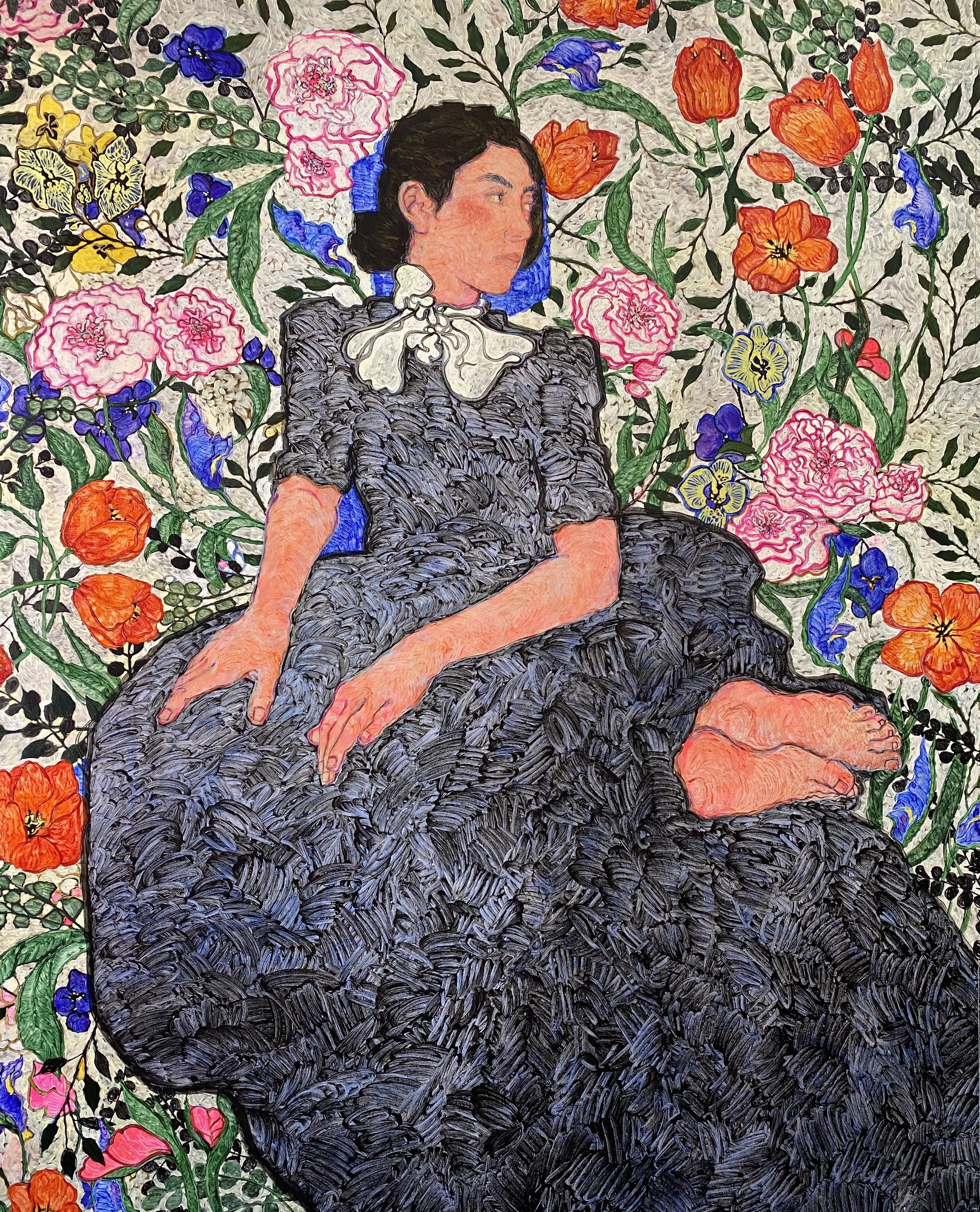
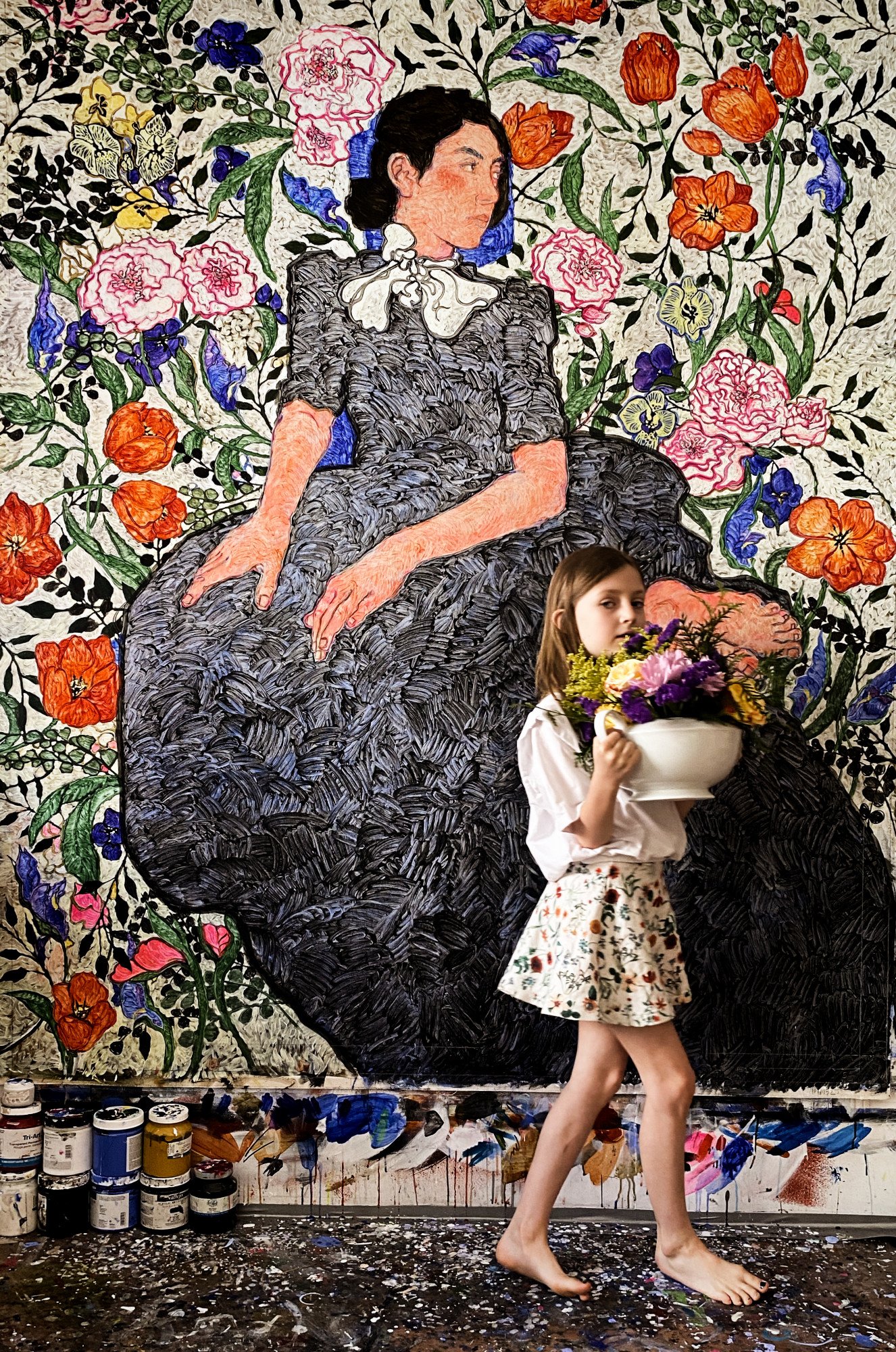
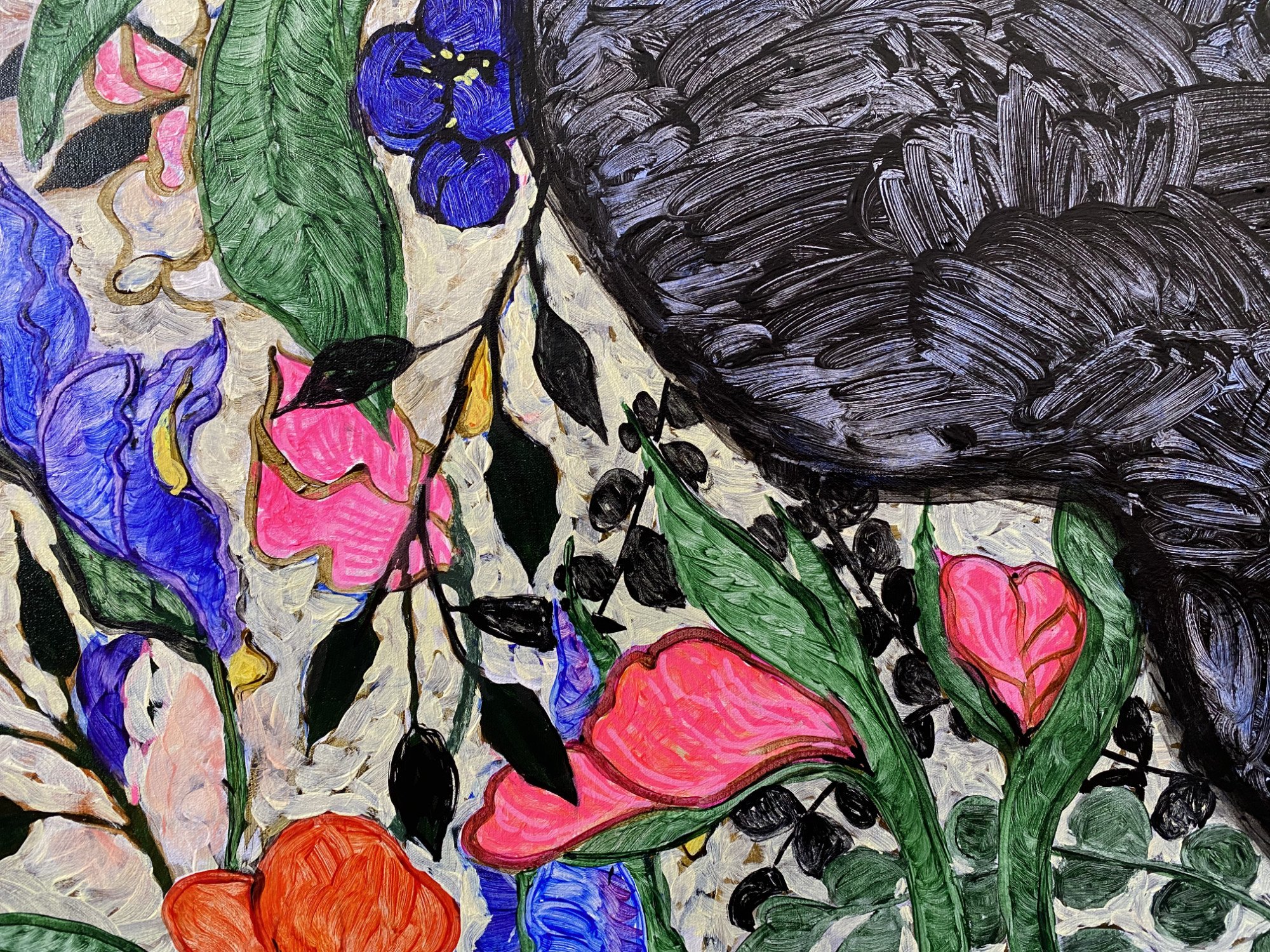
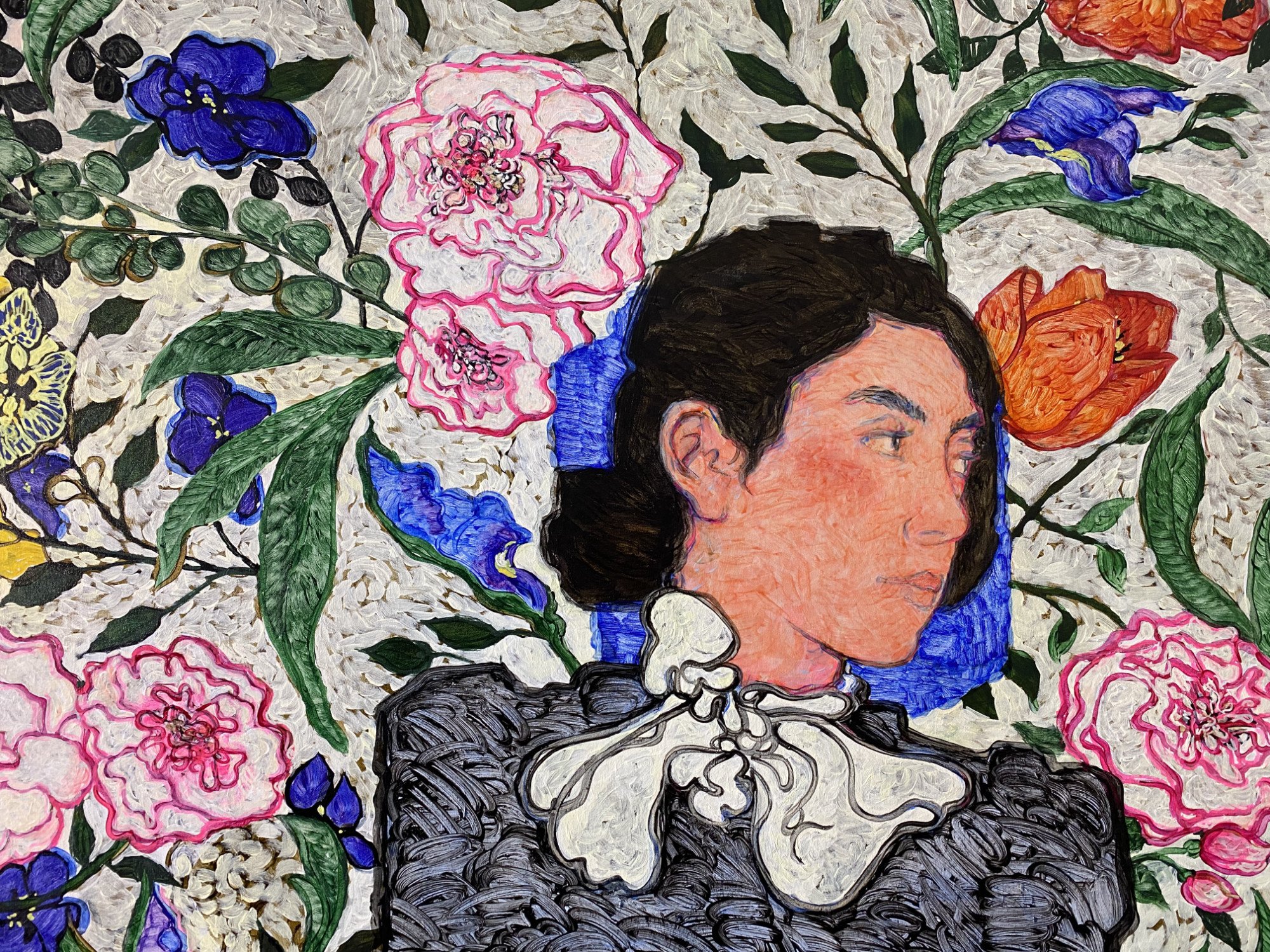
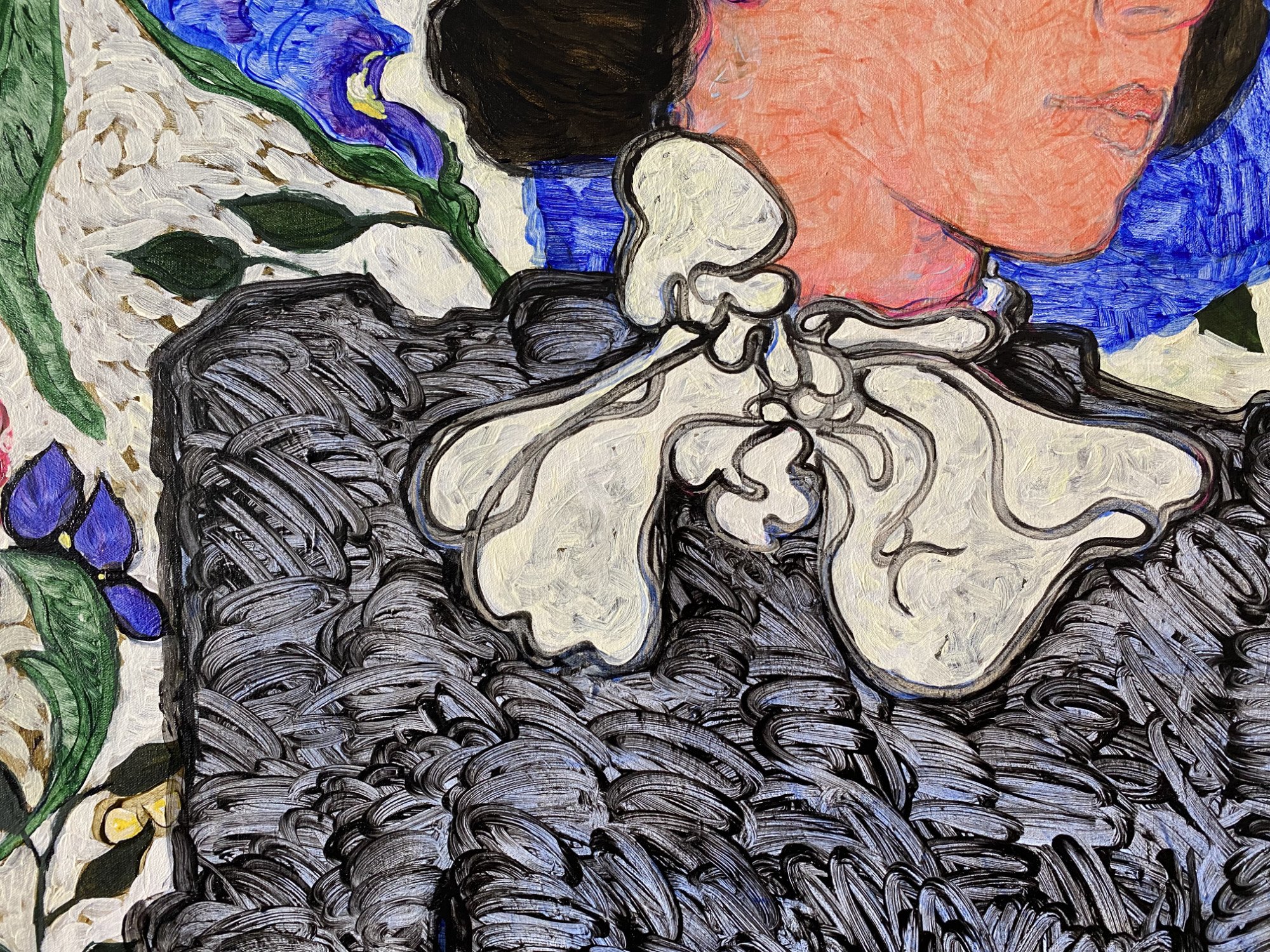
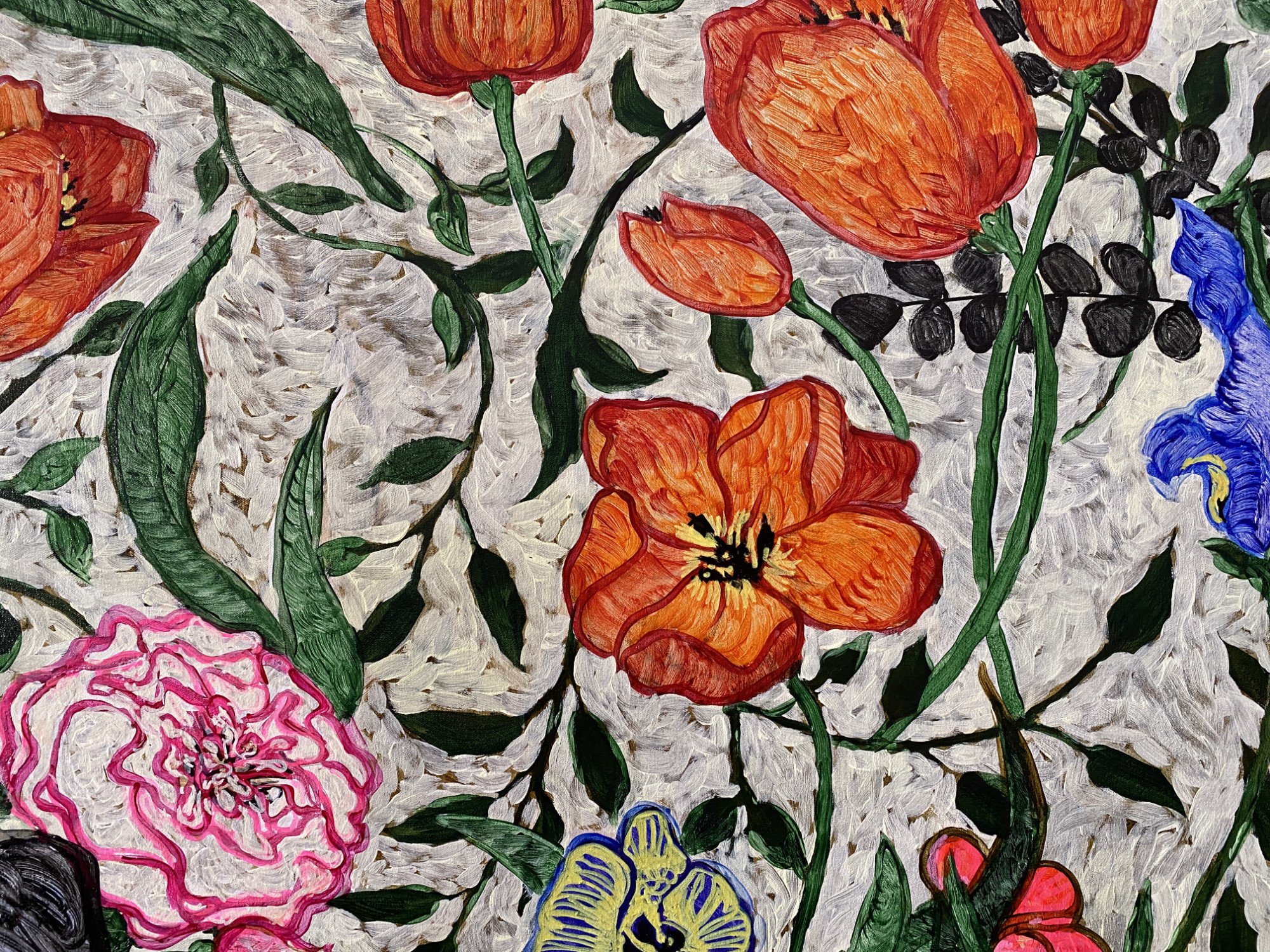
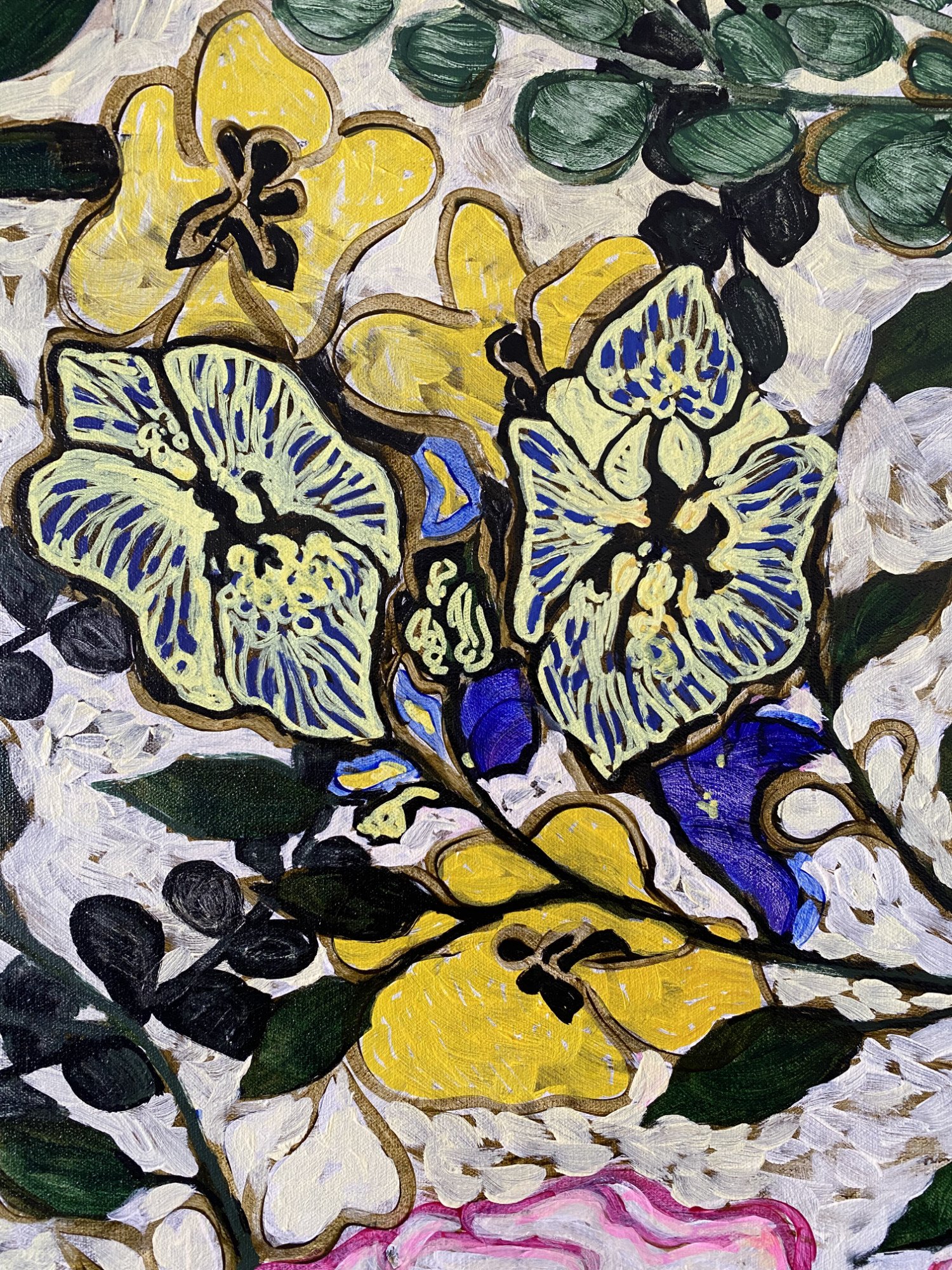
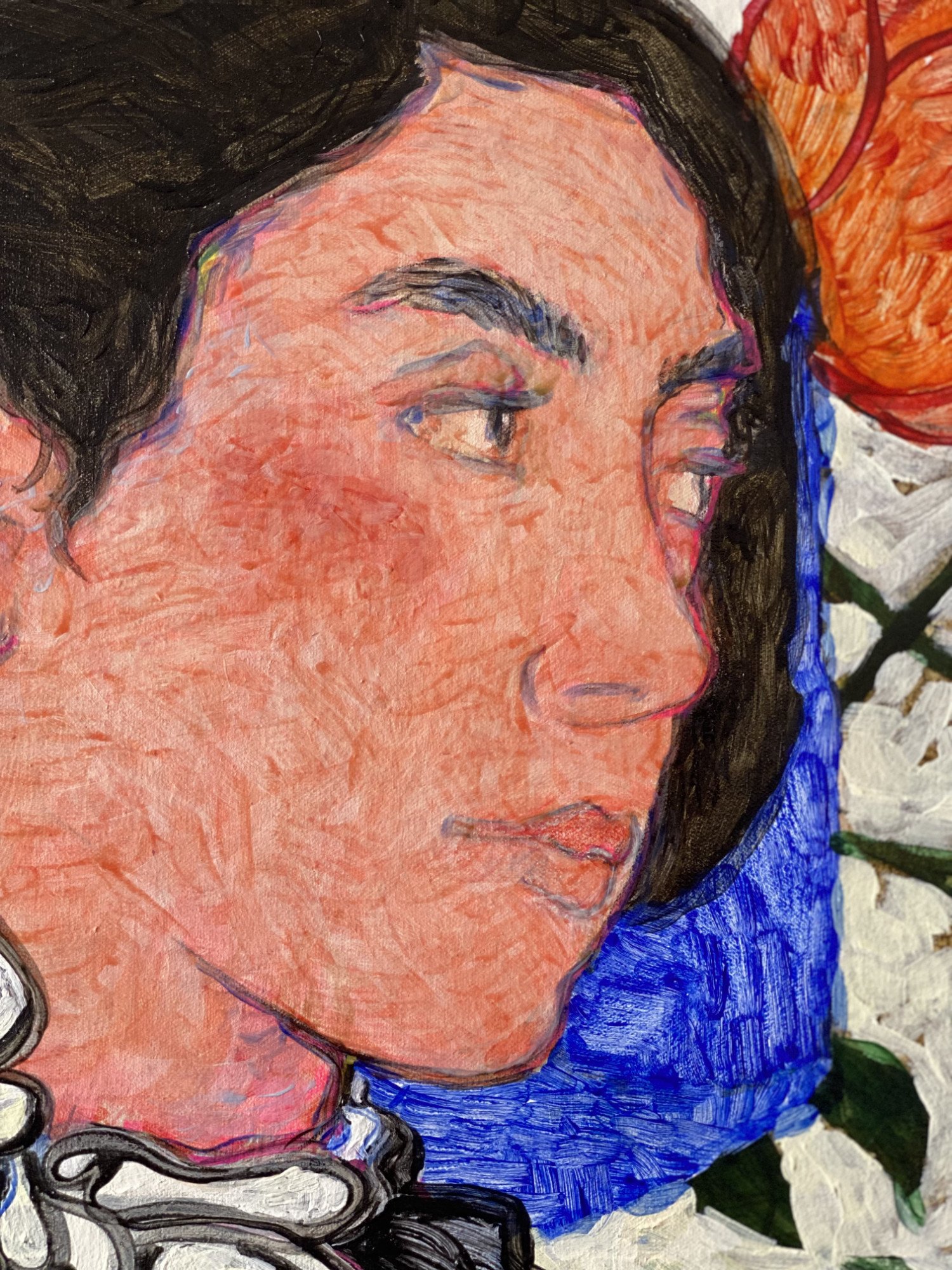
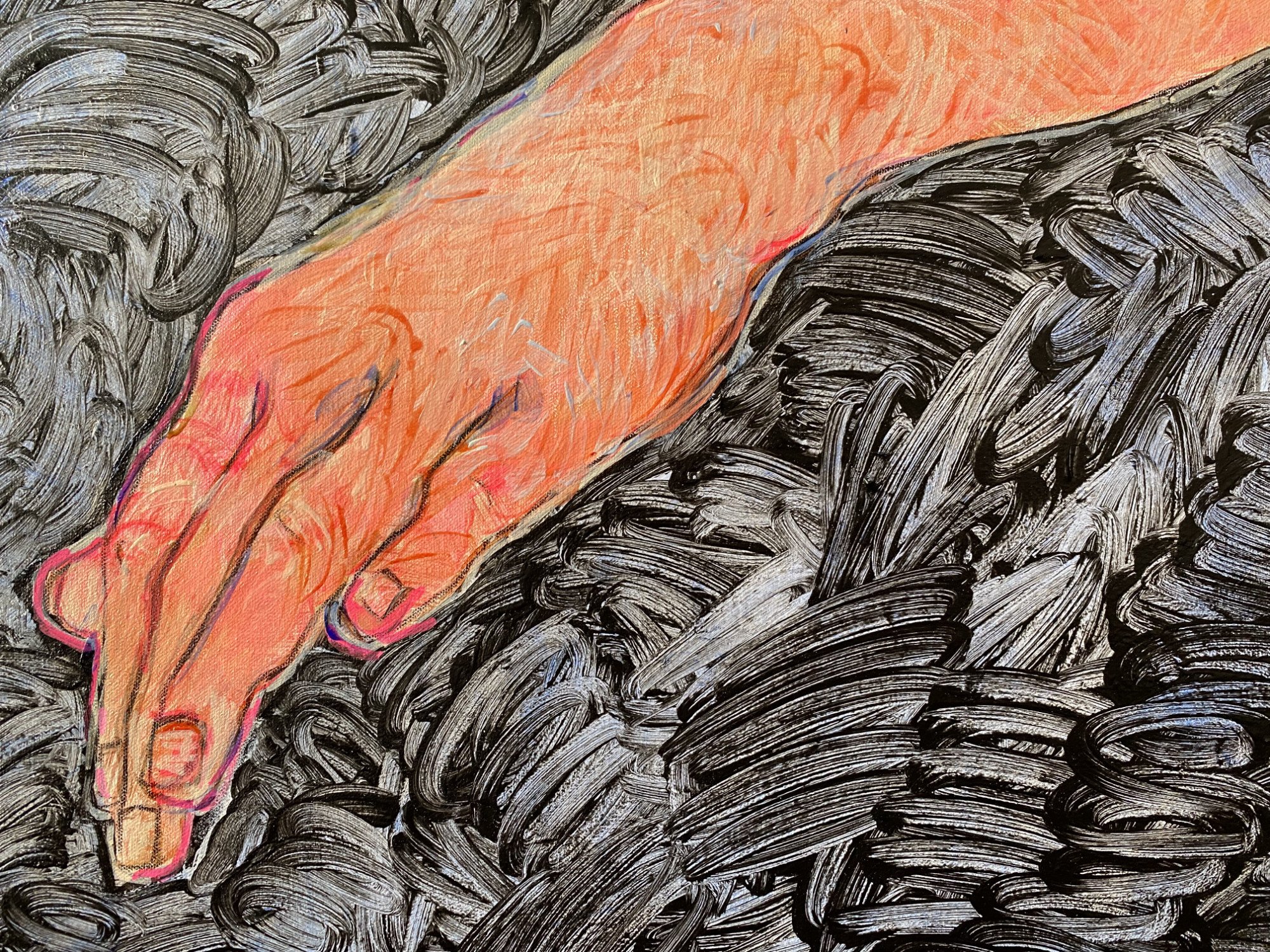
“In my notes on the Analytical Engine (published in 1843), a translation and continuation of the description of the machine by Italian mathematician Luigi Menabrea, I wrote the following:
“The science of operations, as derived from mathematics more especially, is a science of itself, and has its own abstract truth and value. This science constitutes the language through which alone we can adequately express the great facets of the natural world, and those unceasing changes of mutual relationship which, visibly or invisibly, consciously or unconsciously to our immediate physical perceptions, are interminably going on in the agencies of the creation we live amidst” (as cited in Morais, “Ada Lovelace, The First Tech Visionary”).
Further, the engine – even incomplete – was one of poetic significance, an imaginative machine capable not just of manipulating language, but of creating it.
Again, I refer to my published notes, where I wrote, “The Analytical Engine does not occupy common ground with mere “calculating machines.” It holds a position wholly its own…a new, a vast, and a powerful language is developed…in which to yields its truths so that these may become of more speedy and accurate practical application for the purposes of mankind than the means hitherto in our possession have rendered possible. Thus not only the mental and the material, but the theoretical and the practical in the mathematical world, are brought into more intimate and effective connection with each other” (as cited in Gleick 116).”
KATE SHEPPARD - 130 X 150 cm
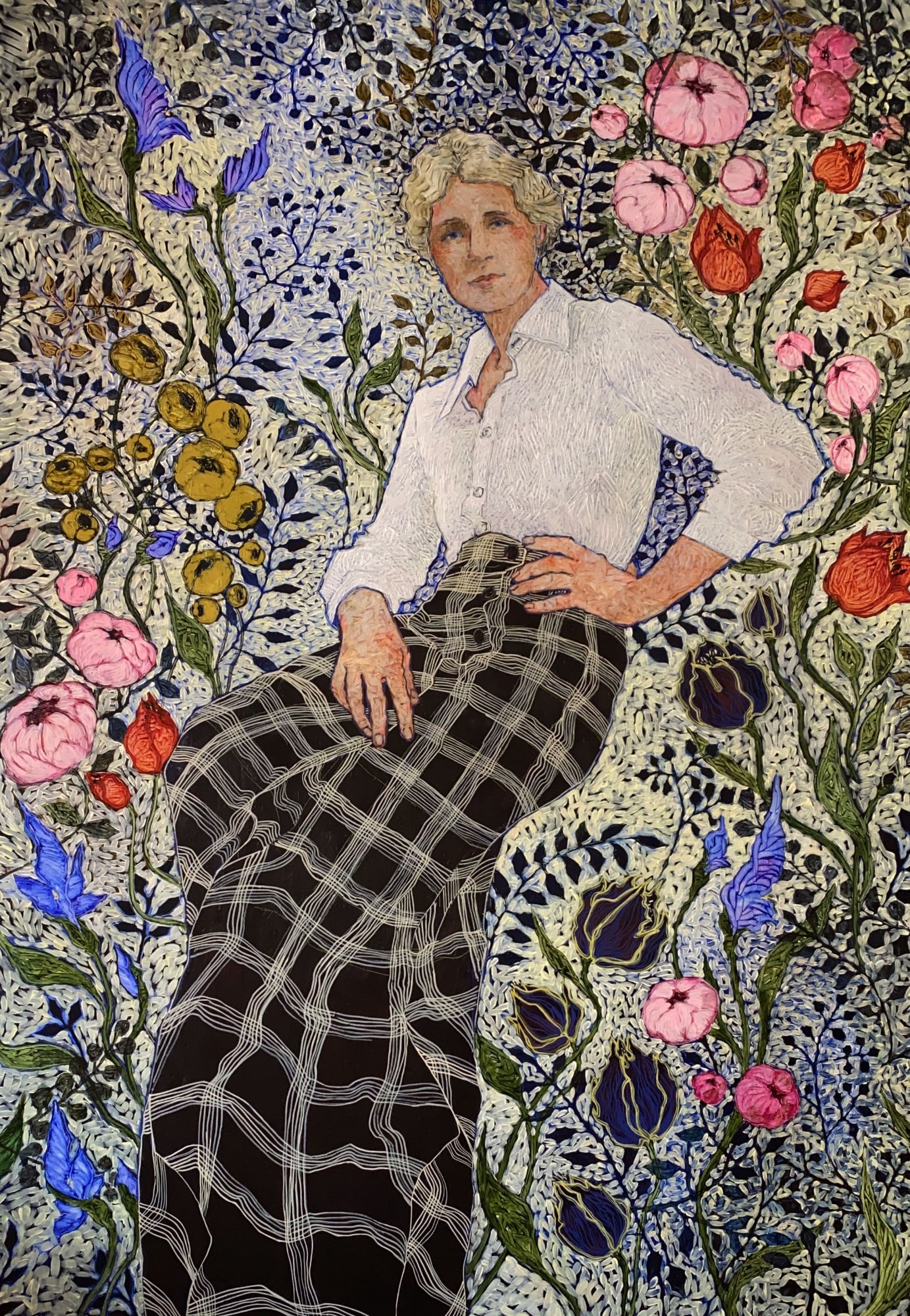

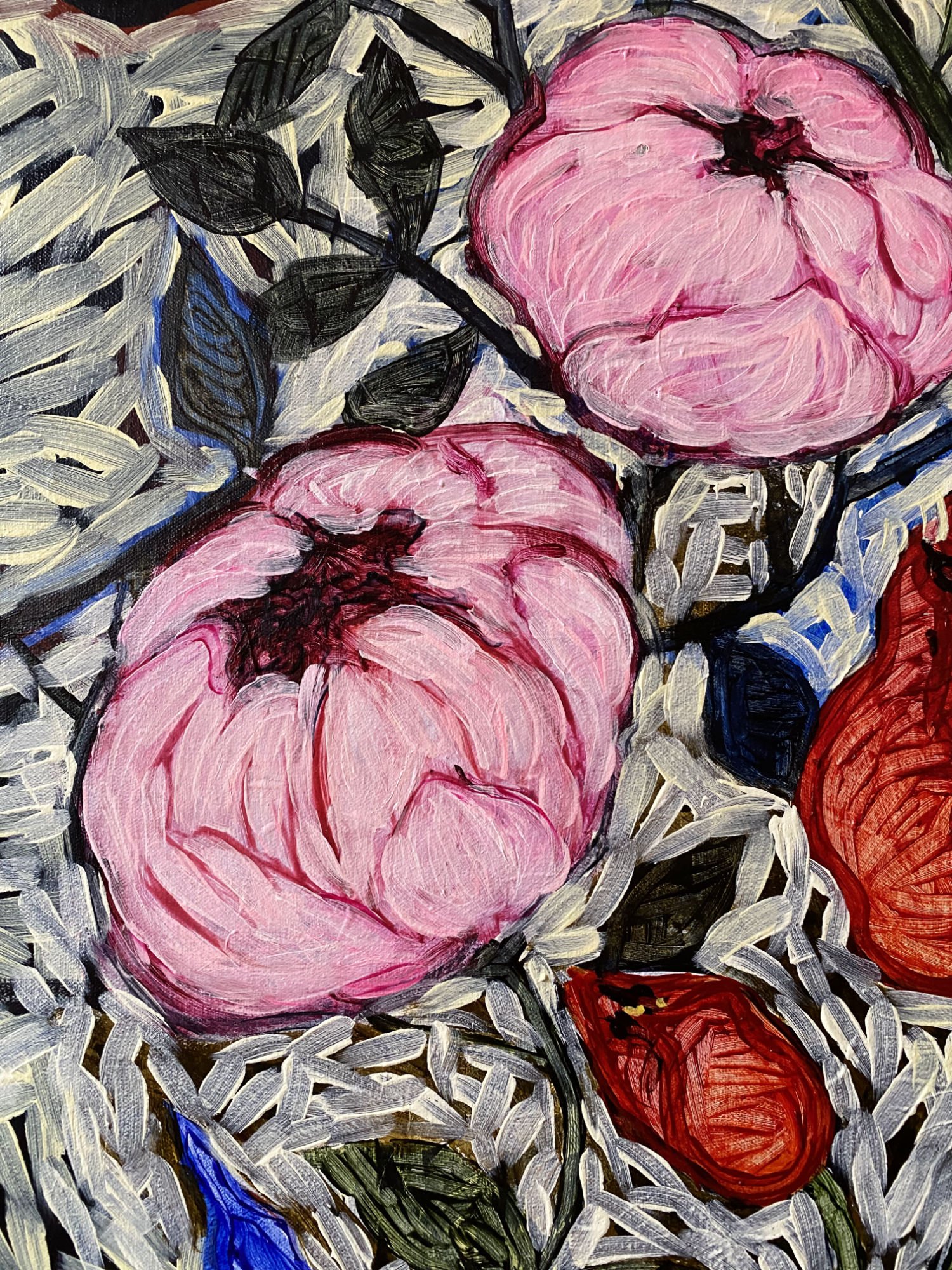
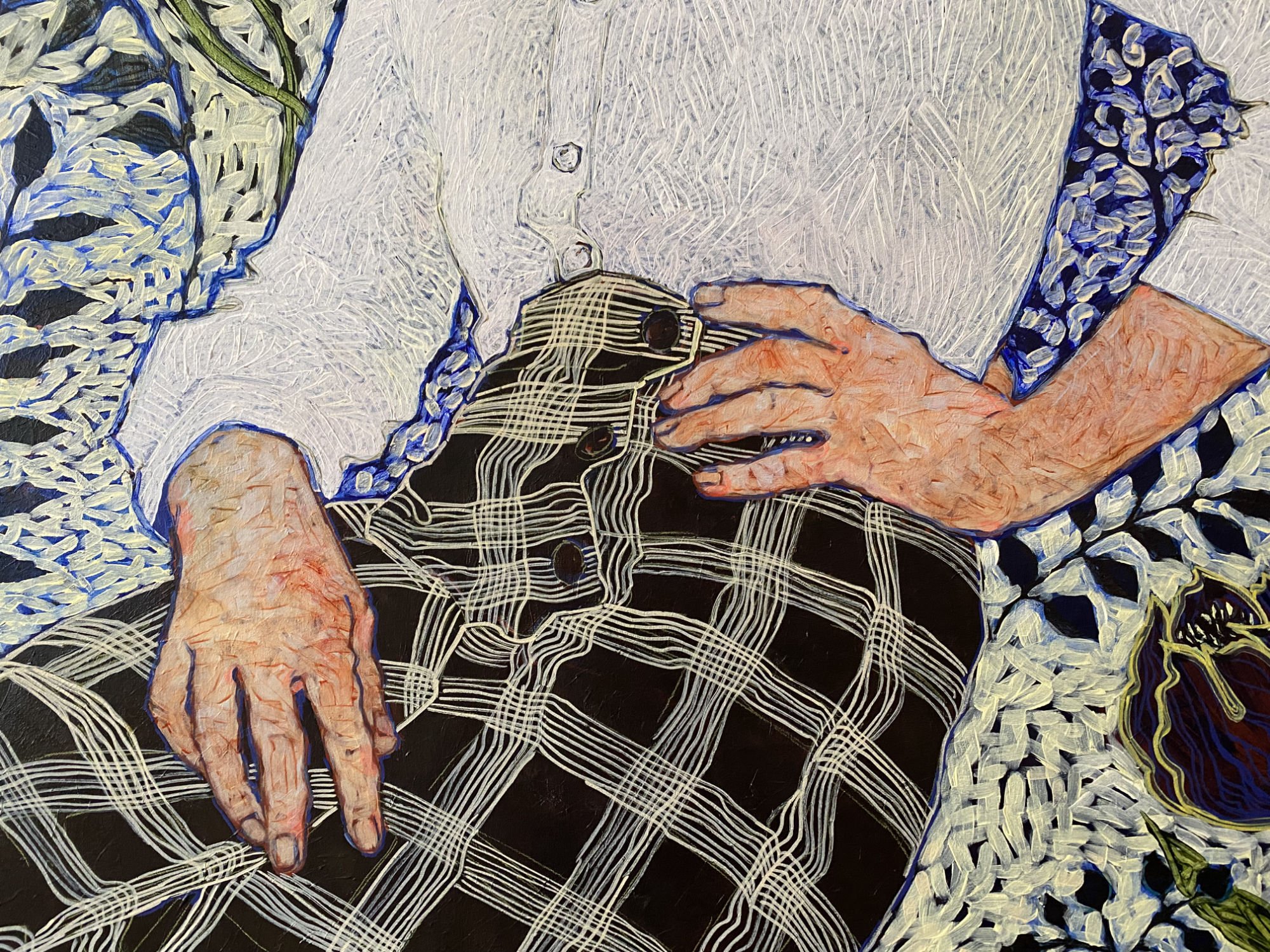
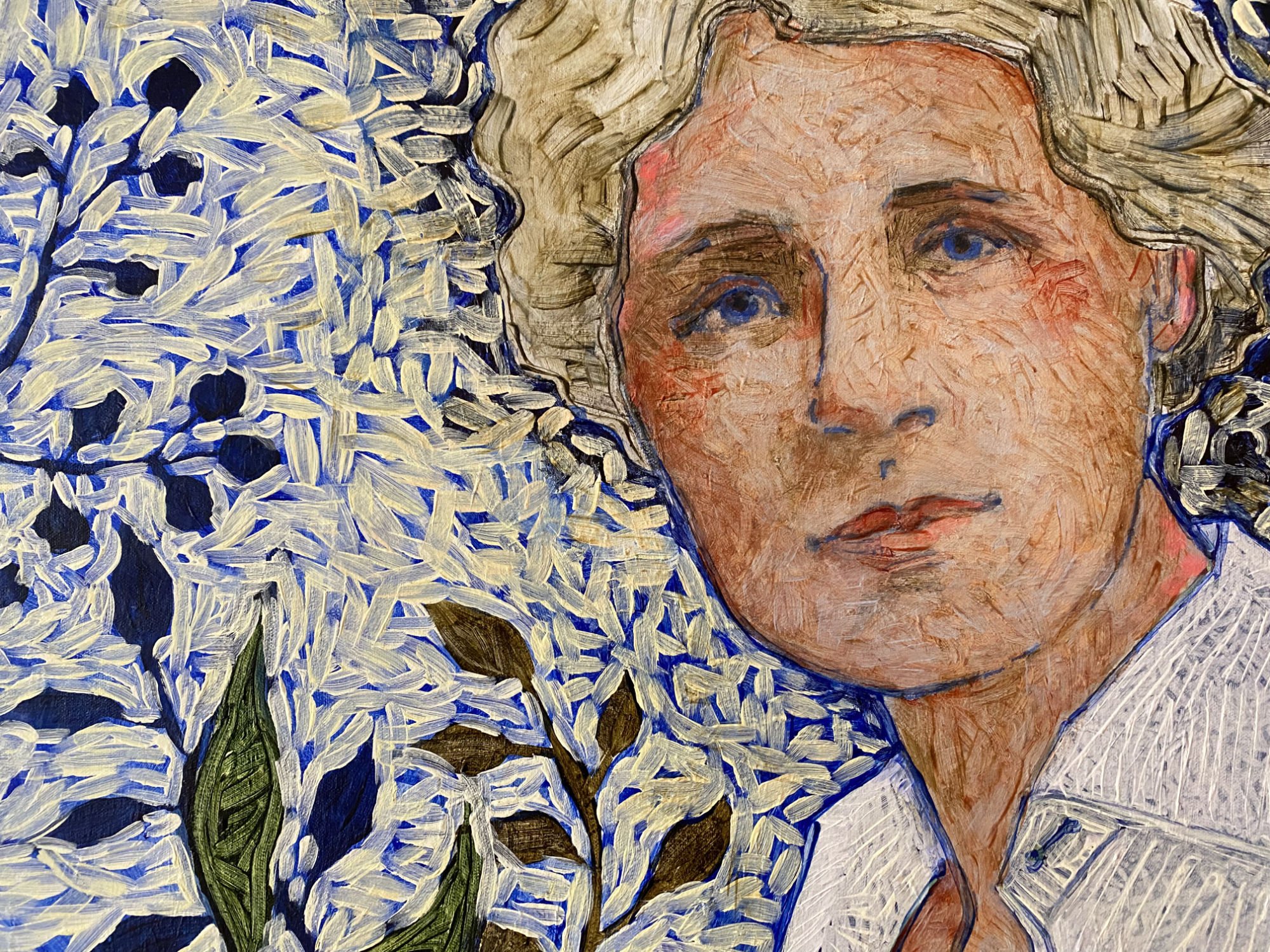
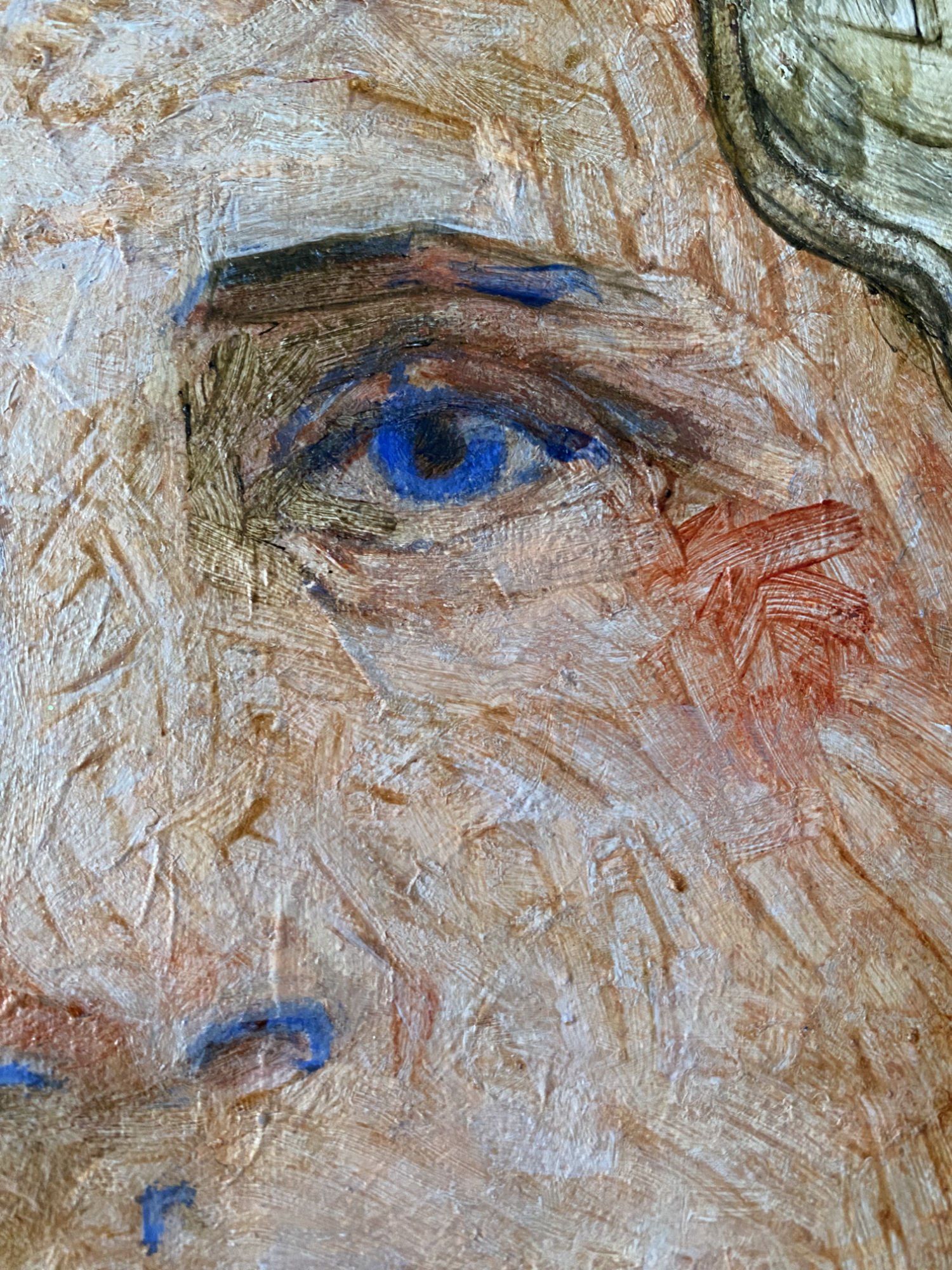
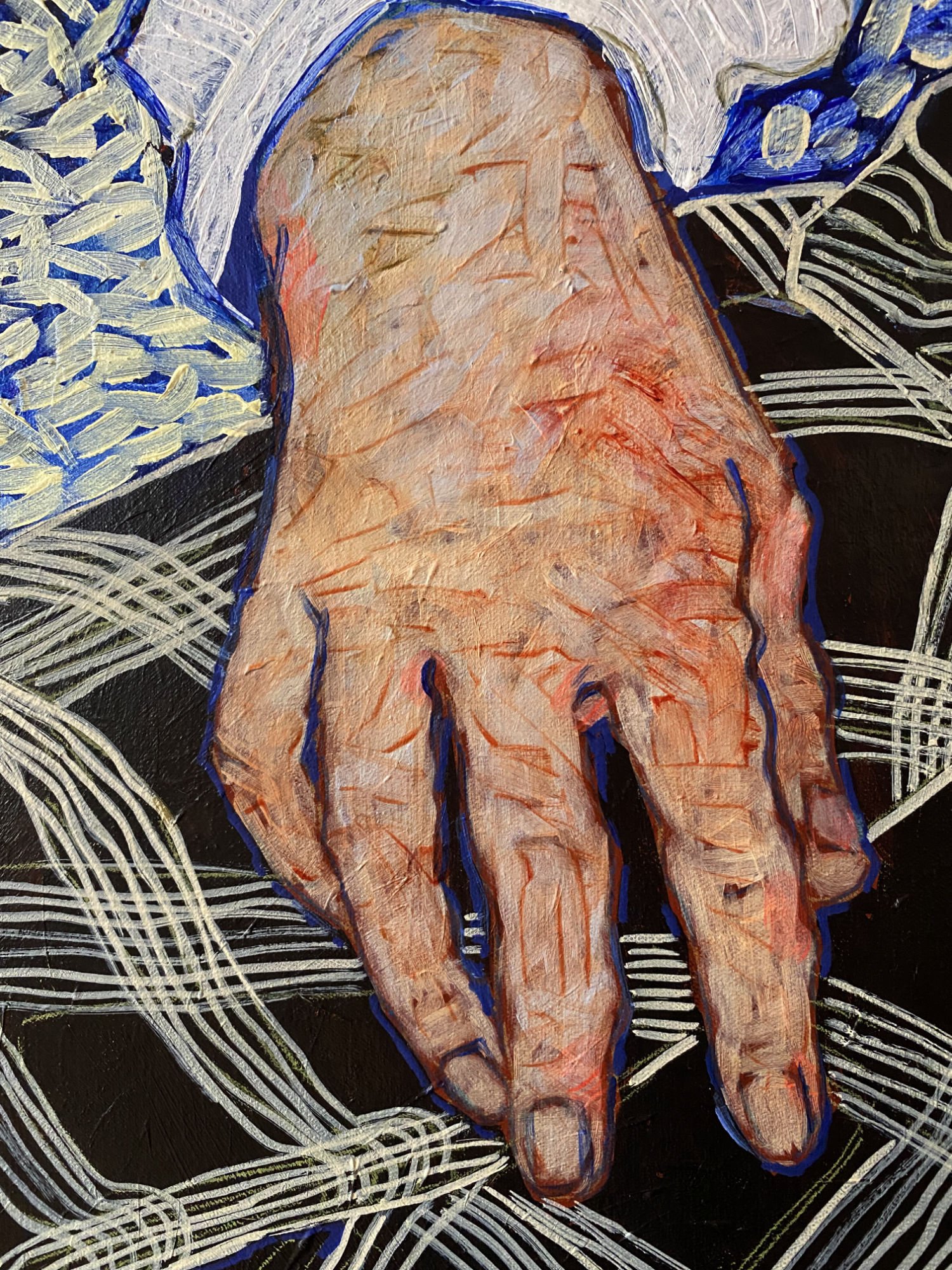
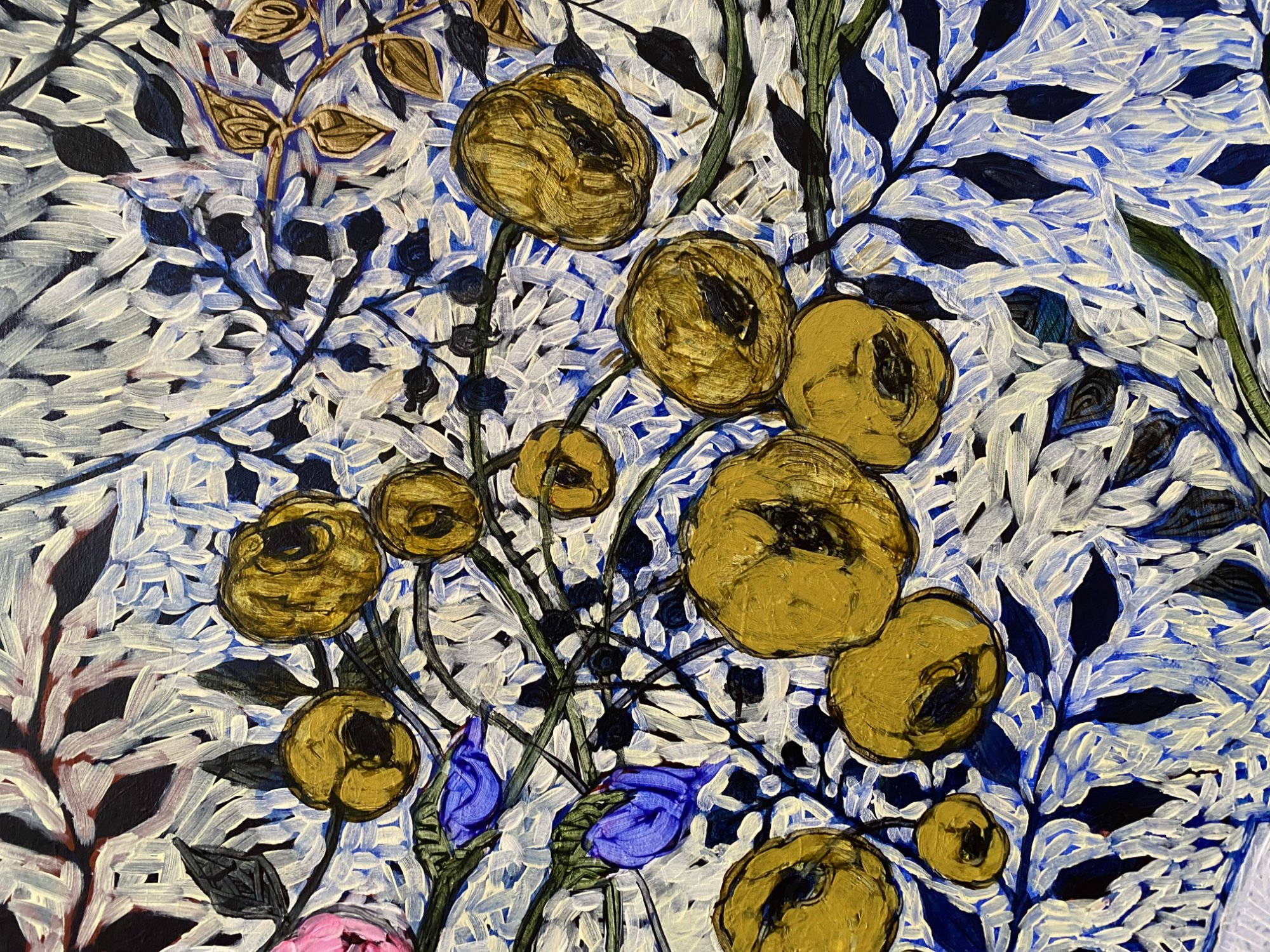
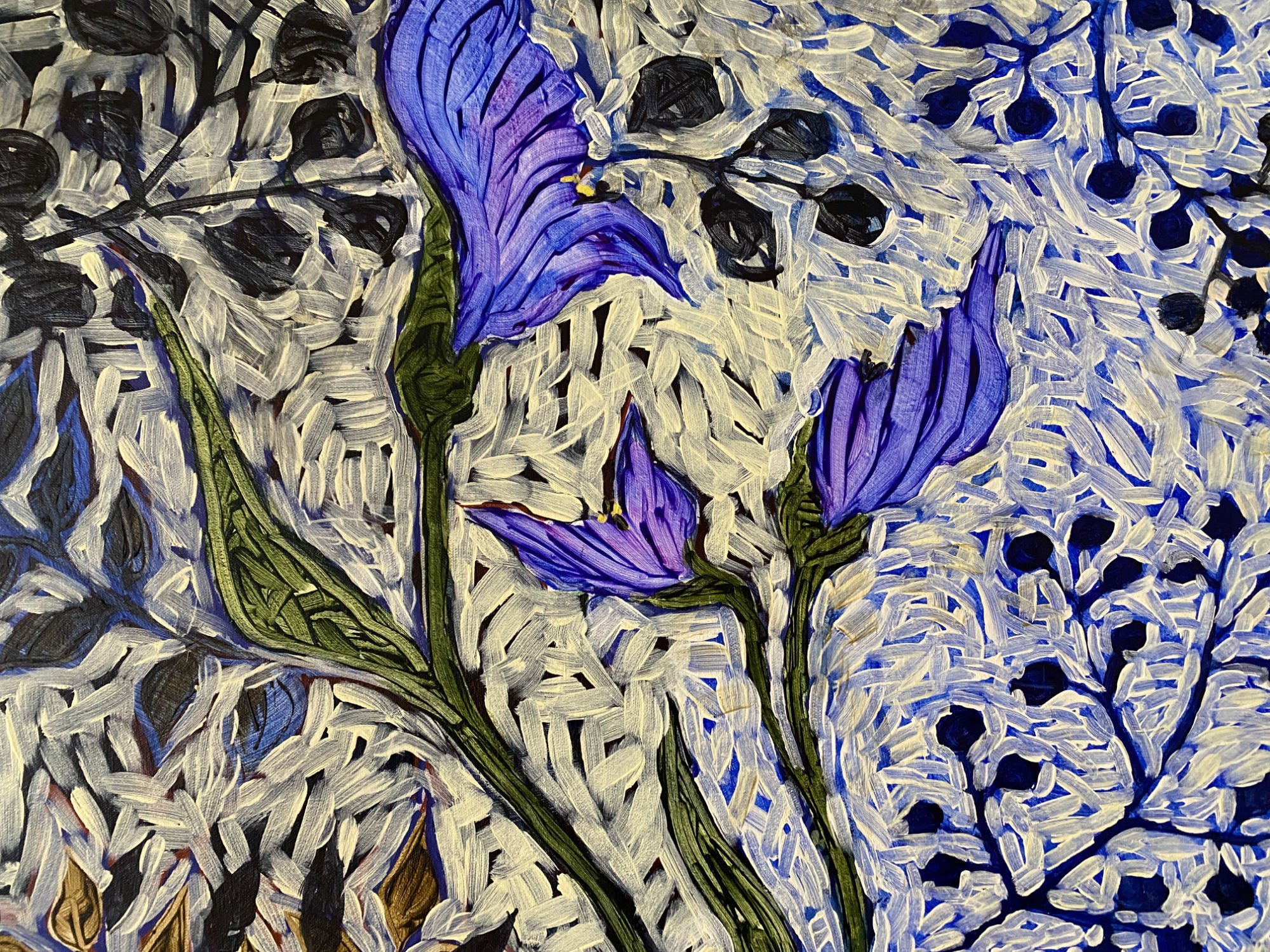
“When we were told that “the franchise would make woman unwomanly”, that “she would neglect her home duties on account of it”, that “it would cause dissension between husband and wife,” that “giving women the franchise, would only be giving dual votes to married men,” that “because she cannot fight she should not vote,” that “because of motherhood she has not time to vote,” that “it would demoralise women to associate with men at polling-booths,” that “women are already represented by their fathers, brothers or sons,” that “women do not want to vote” — when we hear of these objections — we feel somehow as if that way of thinking had gone out of date a long time ago. . . unfortunately however, there are still many who have thought very little on the subject at all, and it is for us, who have the earnest desire to take part in the social and political reforms that are so much needed, to influence those who are indifferent or antagonistic to the question, by pointing out the shallowness of the objections above quoted.
Women themselves must take the matter up, feel sure of their ground and then bring all their enthusiasm and personal influence to bear in breaking down the barriers that come between them and their rightful privileges. It is our earnest hope, that before the next general election, our wish in this matter may be accomplished.
The time is coming when women must become accomplished to the idea of taking part in the political world . . .”
ELIZABETH VON ARNIM - 125 x 183 CM
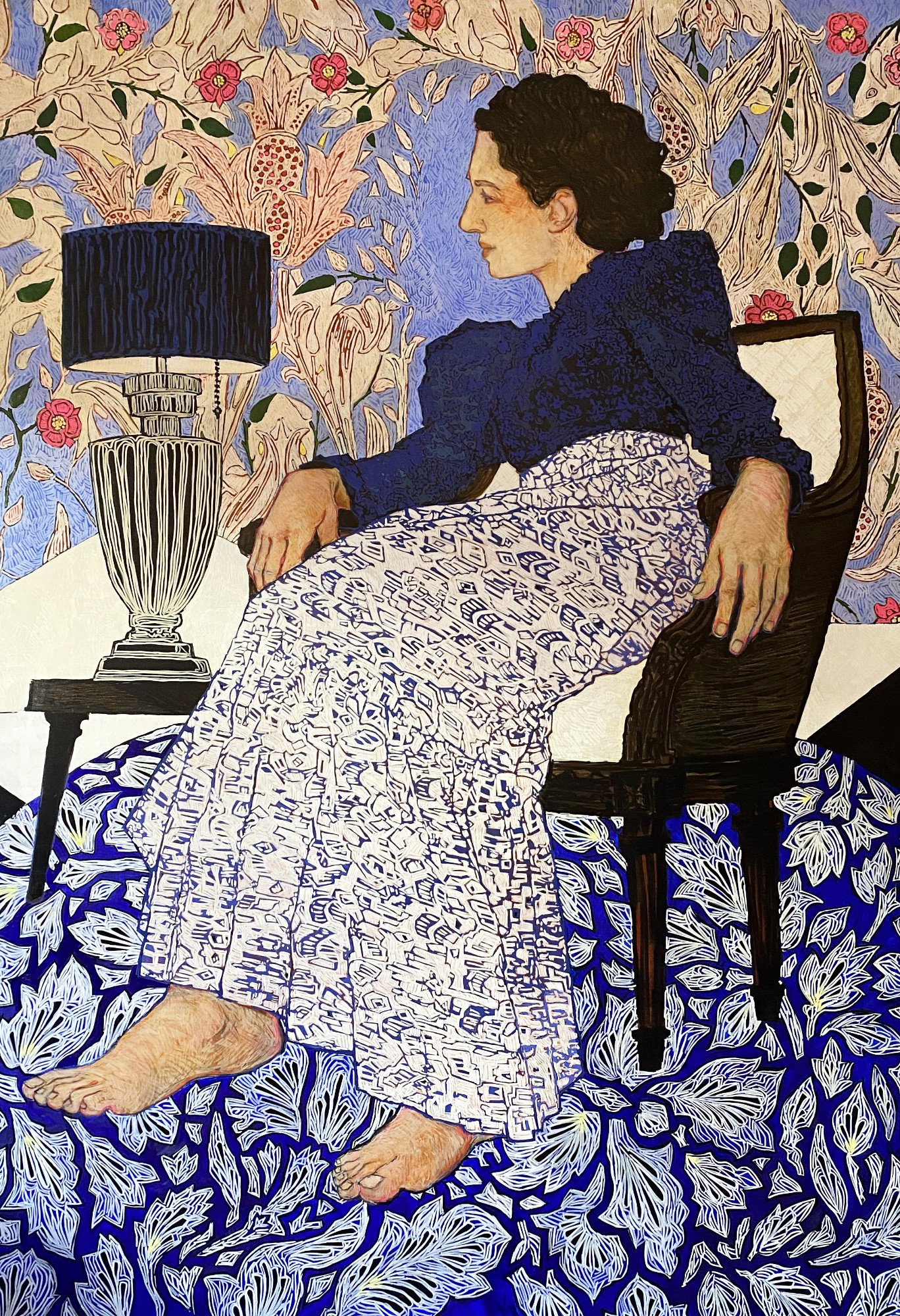
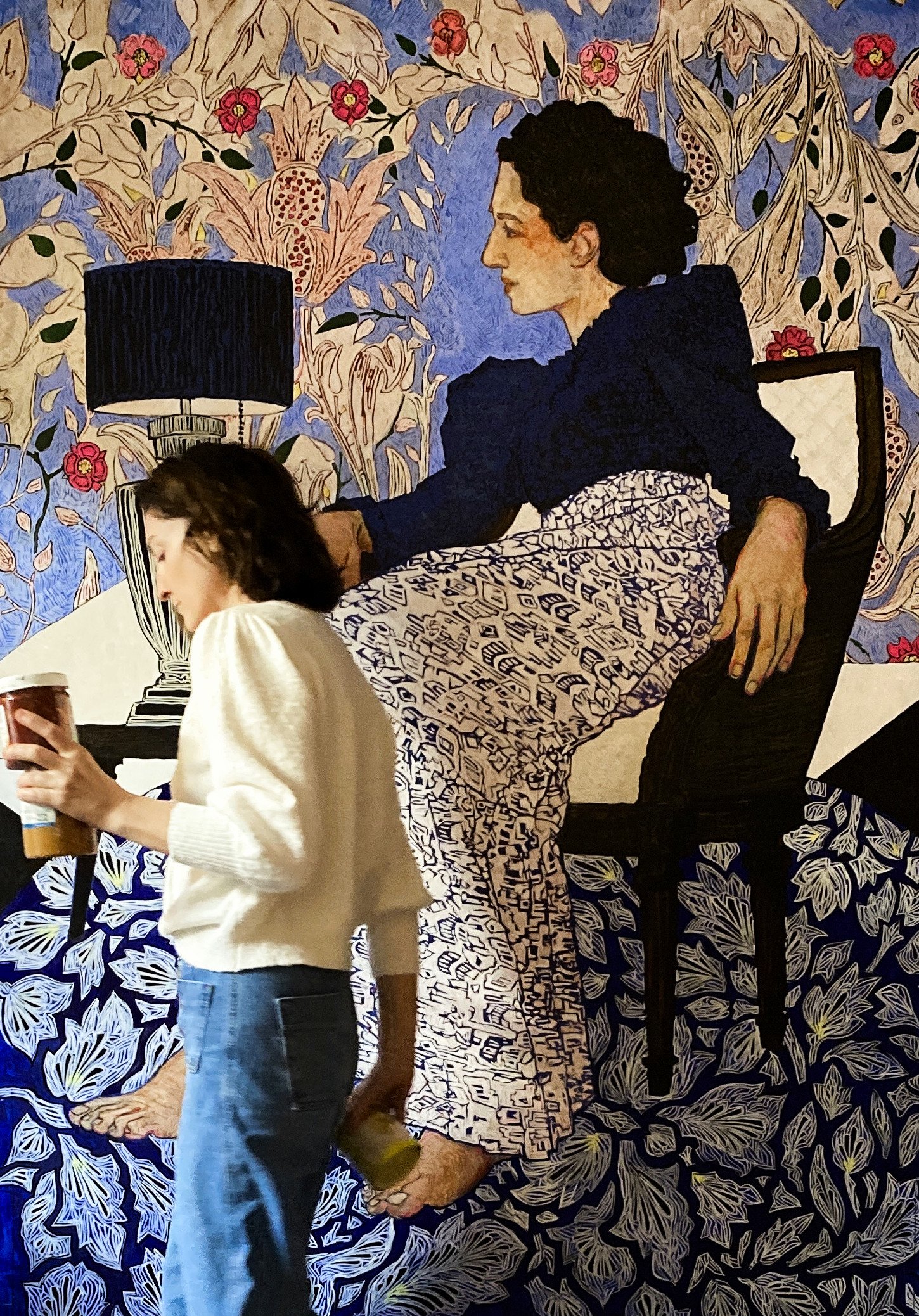
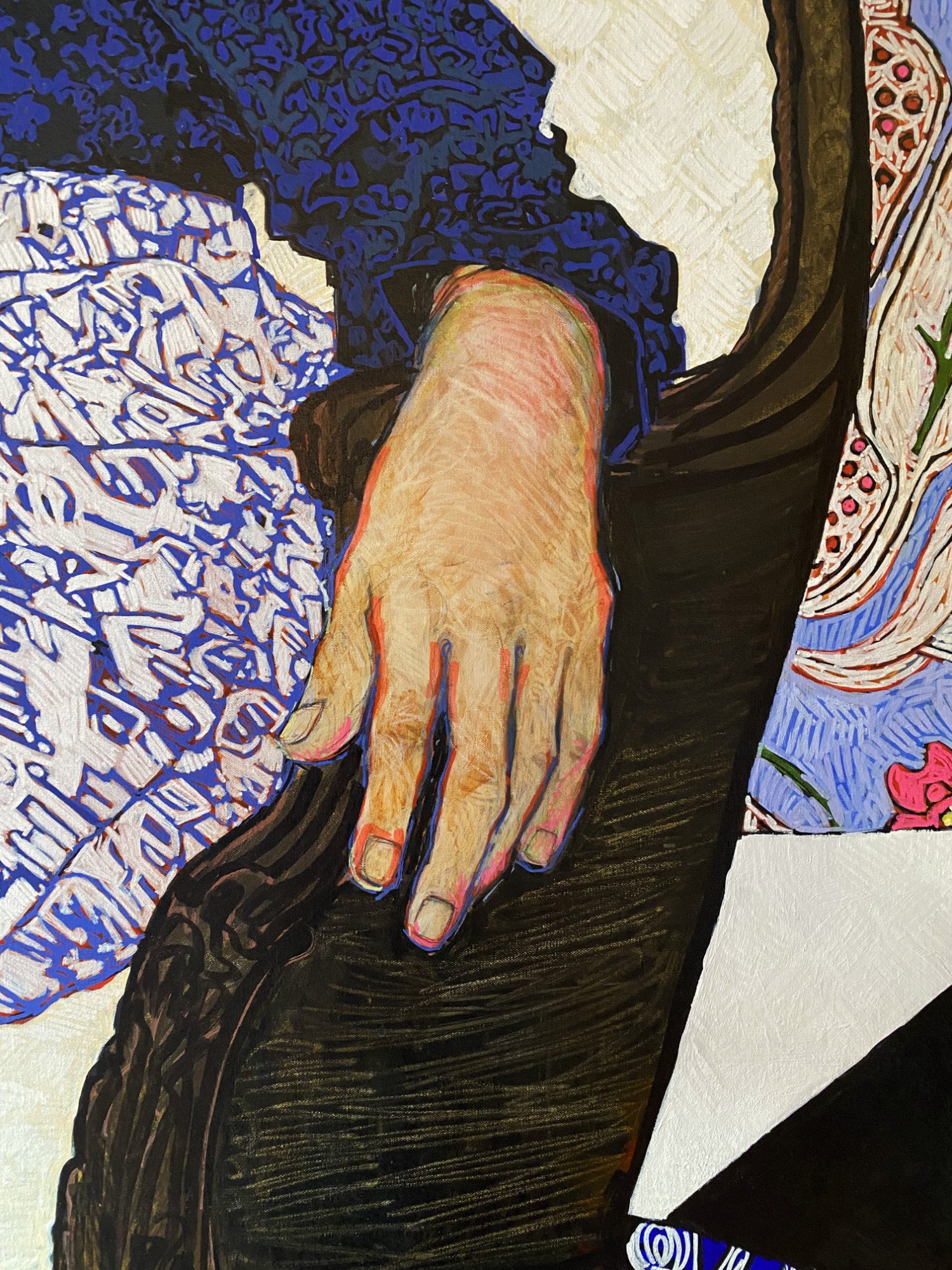
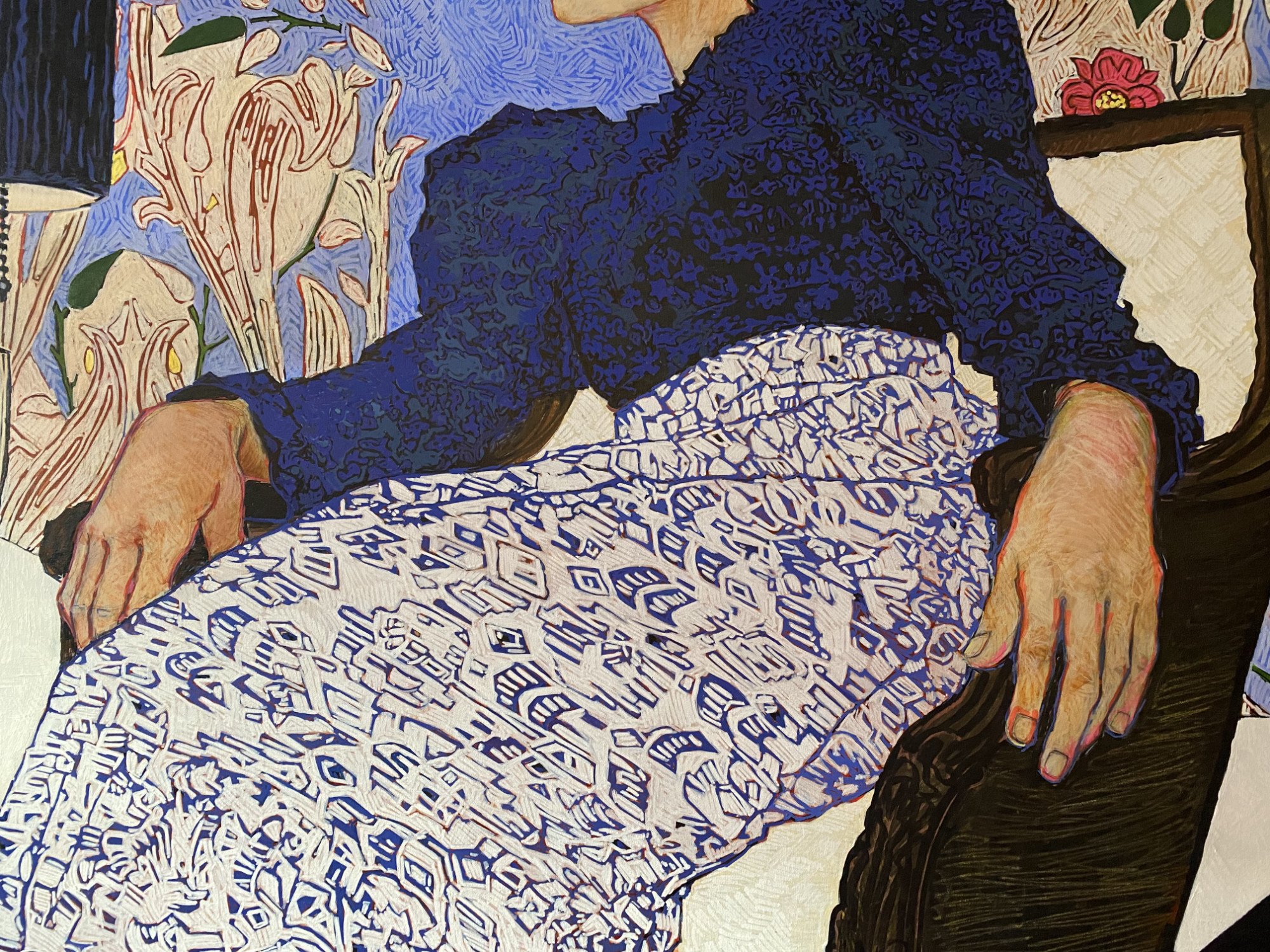
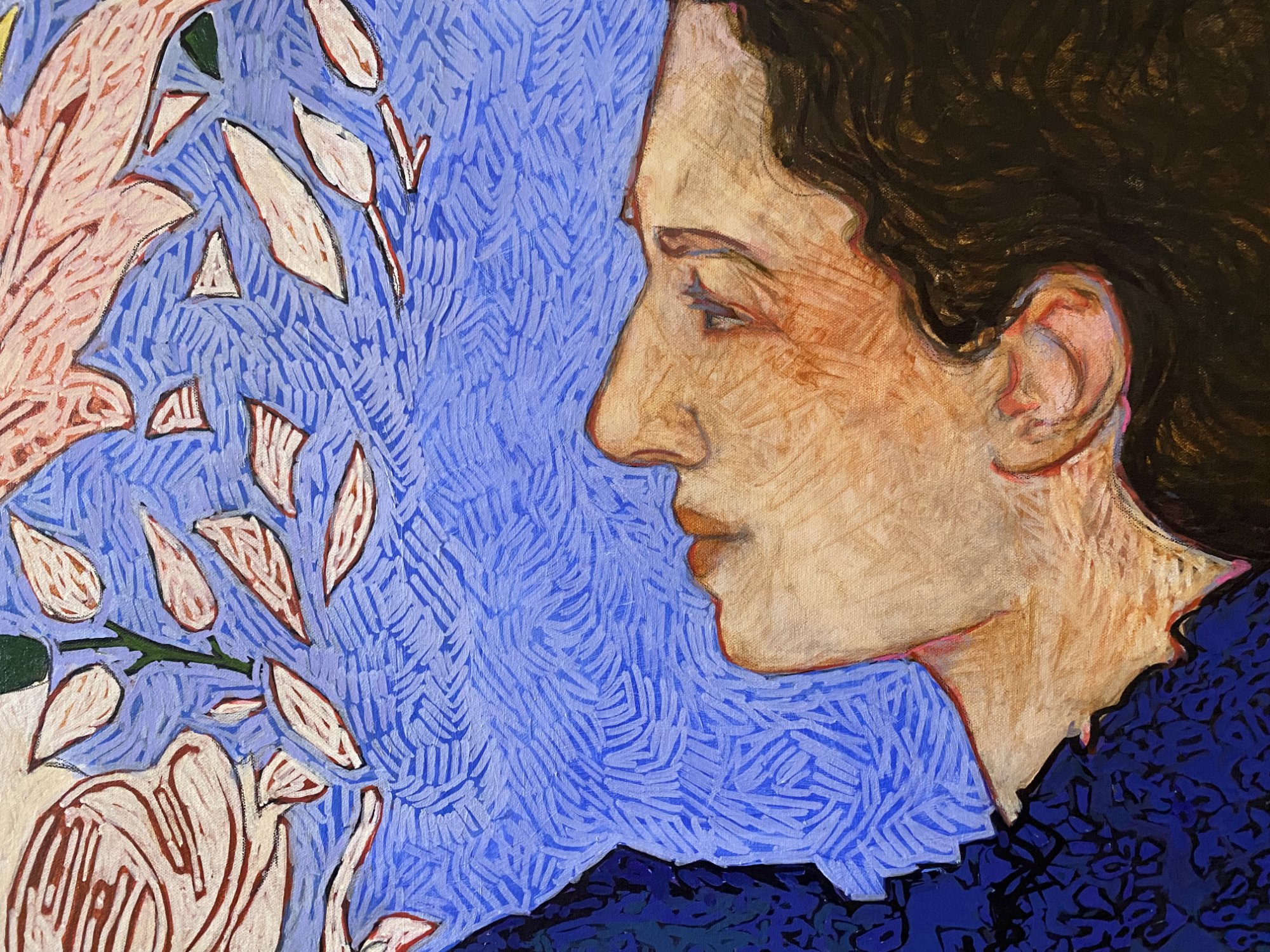
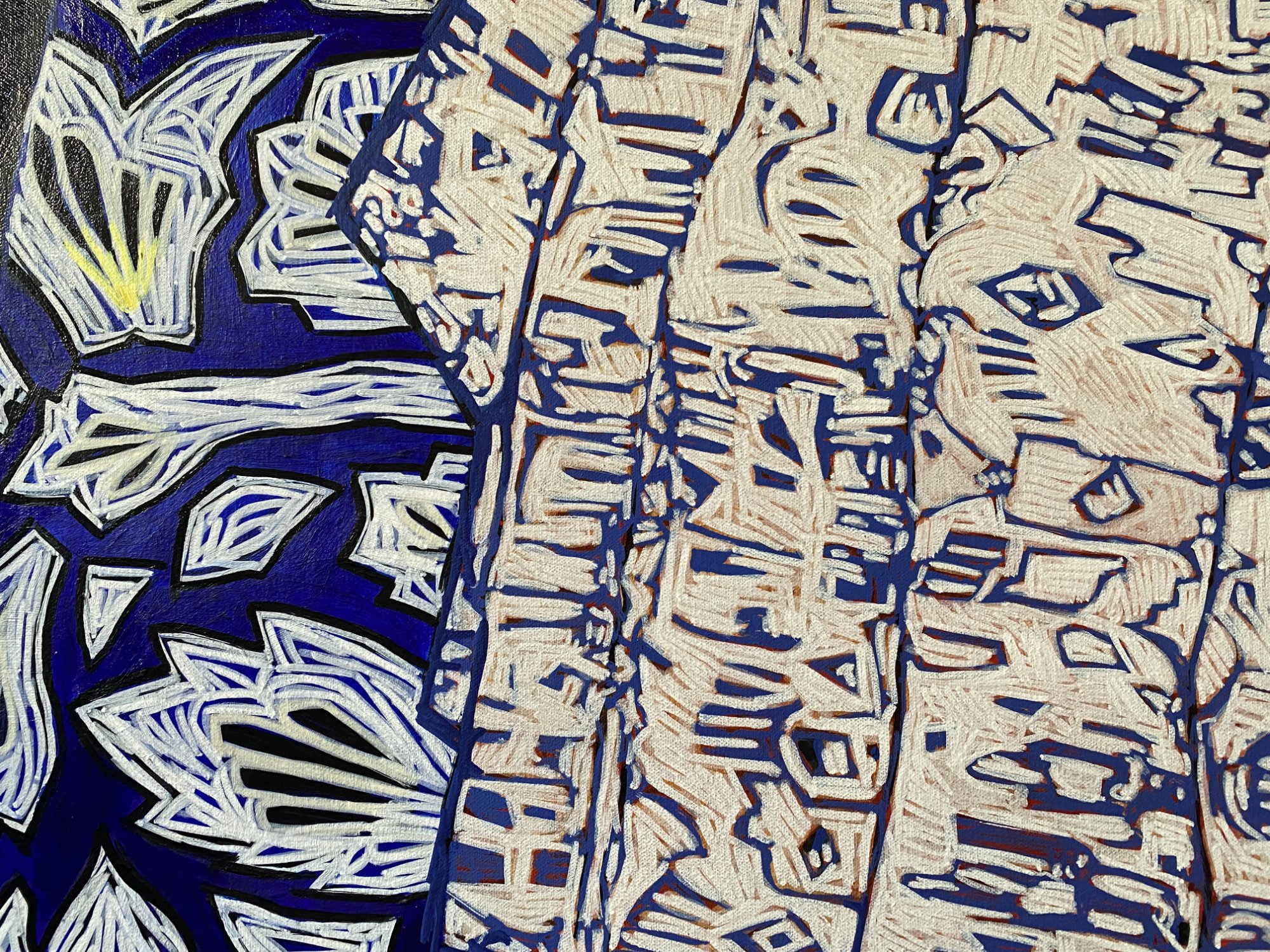
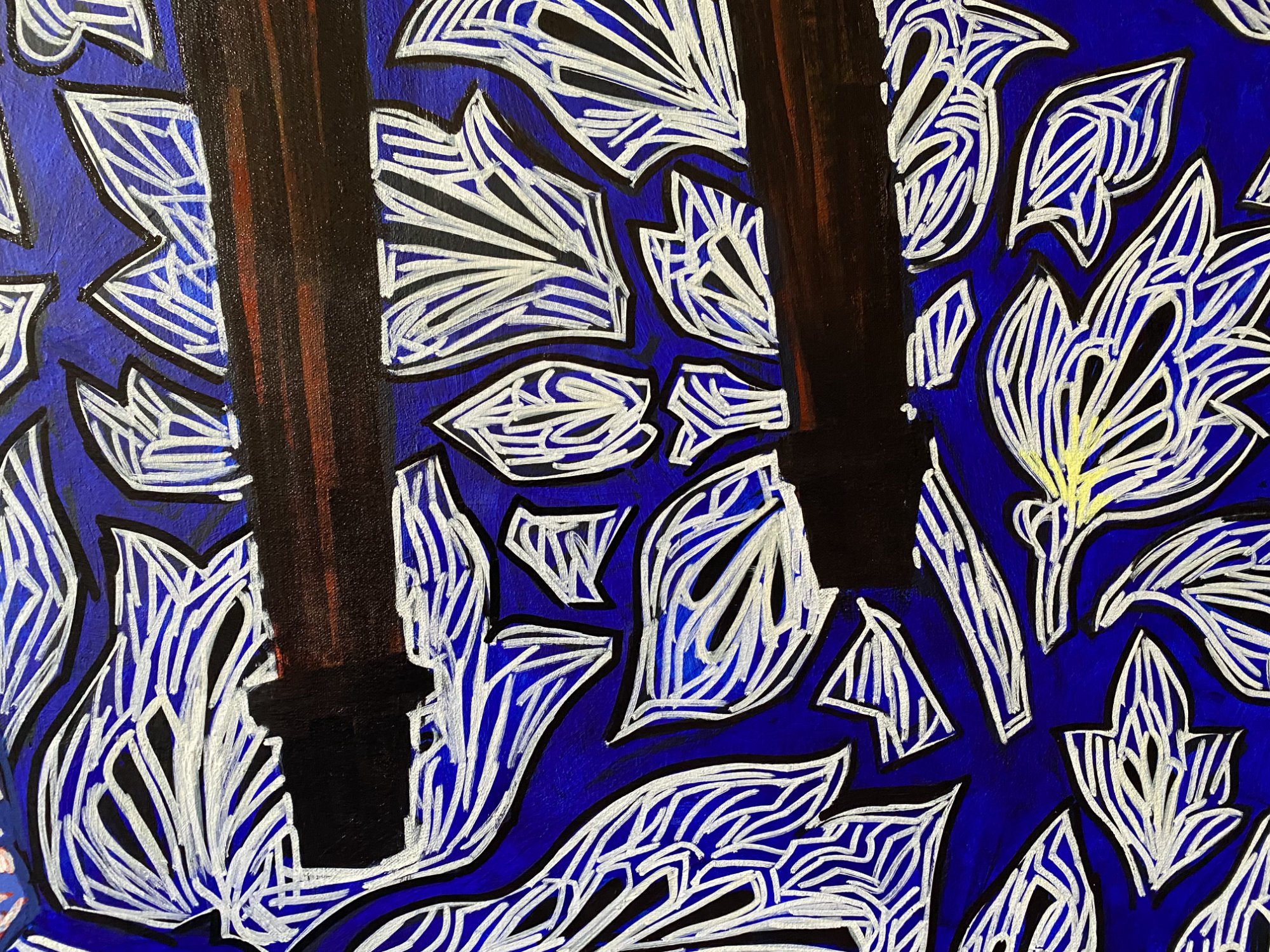
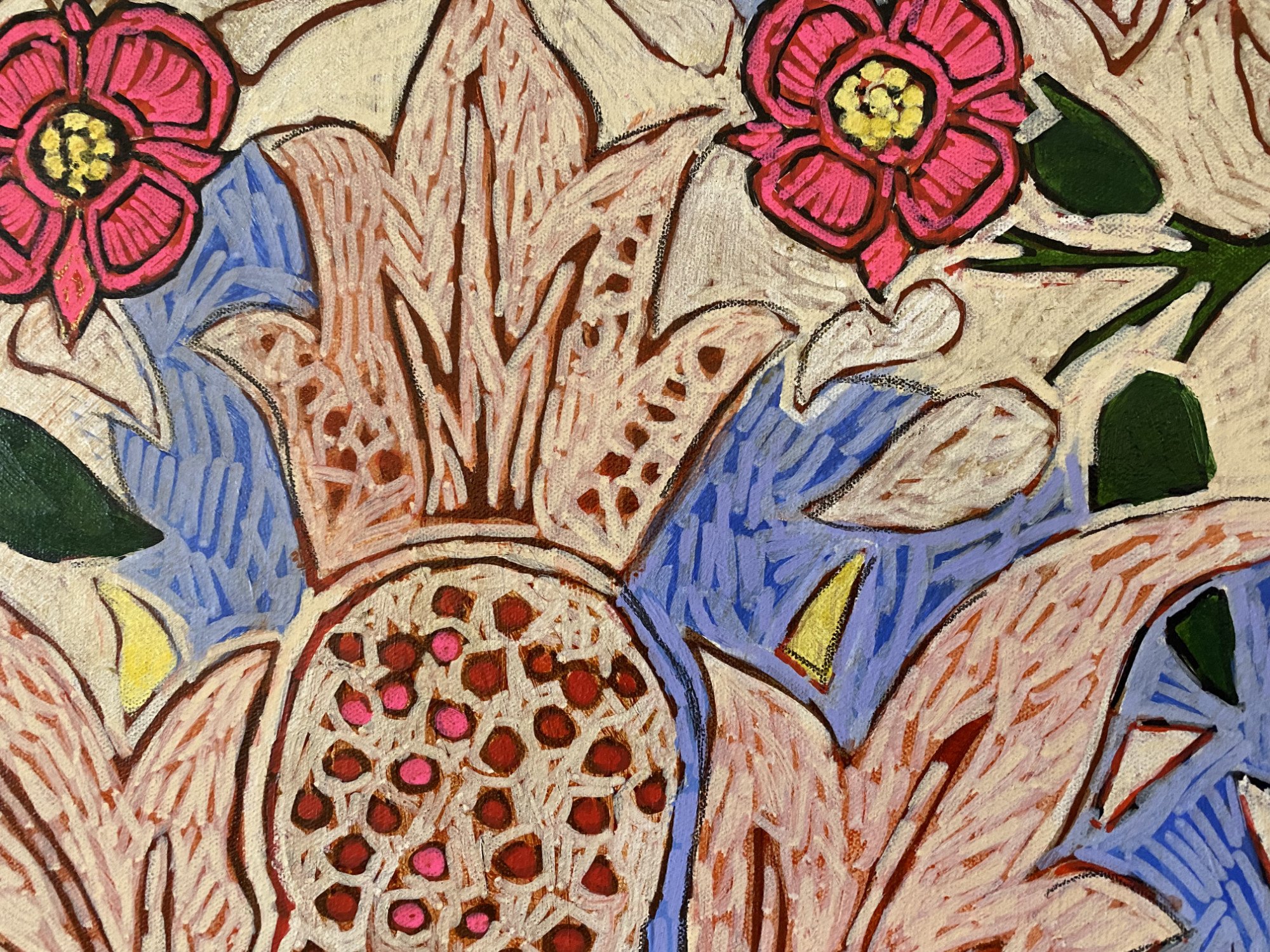
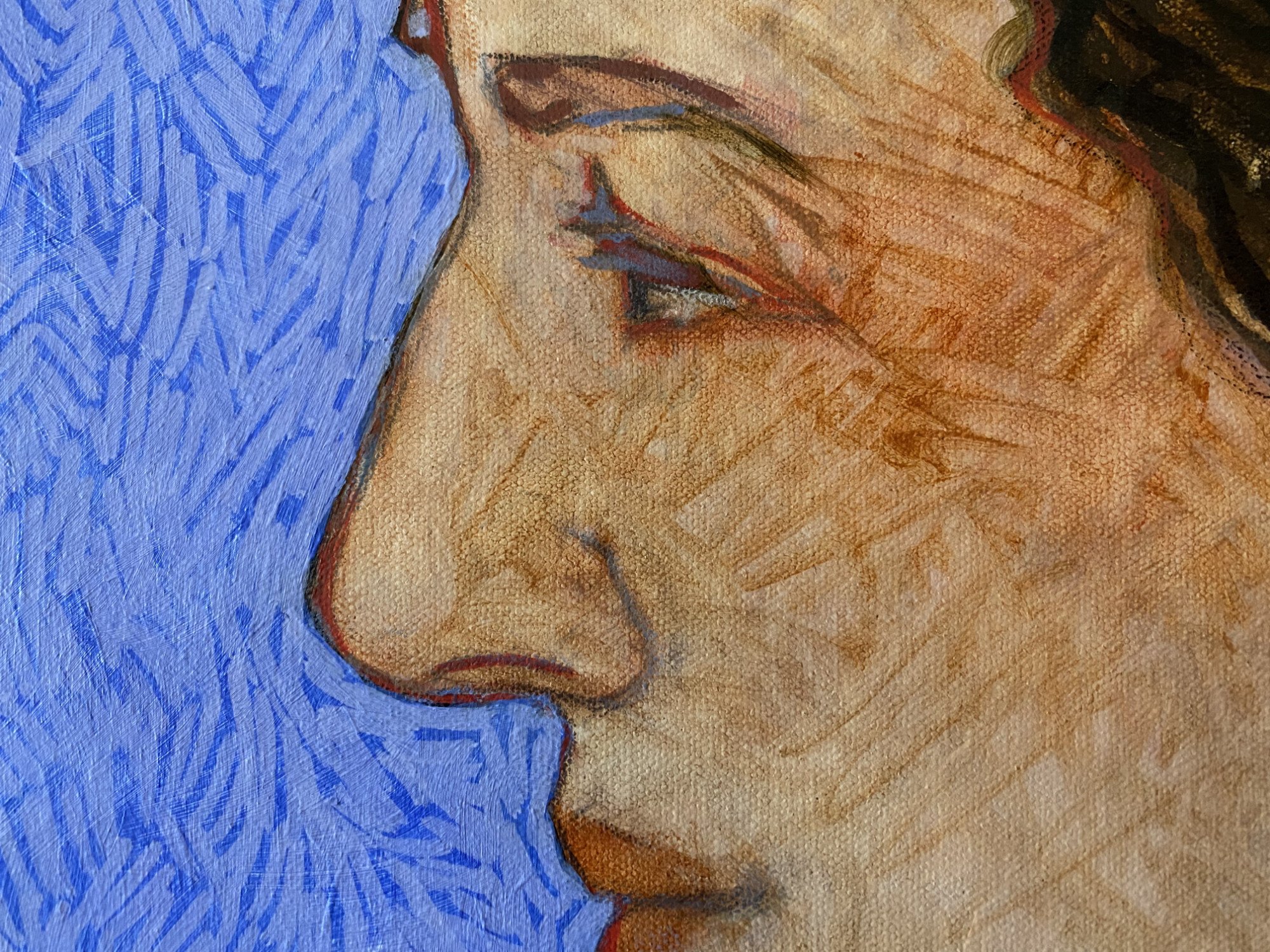
“In Goethe’s Garden
I from this hillock all my world survey!
Yon vale, bedecked by nature’s fairy fingers,
Where the still by-road picturesquely lingers,
The cottage white whose quaint charms grace the way—
These are the scenes that o’er my heart hold sway.
I from this hillock all my world survey!
Though I ascend to heights fair lands dividing,
Where stately ships I see the ocean riding,
While cities gird the view in proud array,
Naught prompts my heart’s impulses to obey.
I from this hillock all my world survey!
And could I stand while Paradise descrying,
Still for these verdant meads should I be sighing,
Where thy dear roof-peaks skirt the verdant way:
Beyond these bounds my heart longs not to stray.”
Reflections on the “ROSSETTI COLLECTION" 2023 - 2024
Woven together in the timeless tapestry of human experience, this collection portrays the spirits of classical female authors, muses and literary characters, who rose from the obscurity of time, carved from light and shadow and framed in the whispers of flowers and the murmurs of their unique stories. This collection is a reminder of the daring lives lived in defiance of convention, the hidden worlds that flourished in the minds of women who refused to be silent.
At first sight the portraits may transport us to another age, give us a sense of beauty set against a background of flowers and amber light, the glow of a red cheek kissed by candlelight. But linger a little longer, and the air will thicken and the fragrance will imbue with meaning. Inevitably, in their presence one cannot escape the pull of nostalgia, that bittersweet longing for times gone by, both imagined and real. It is not merely an era that is evoked but a mood, a sensibility towards romanticism that refuses to be confined.
The women depicted are not symbols of perfection but flawed and magnificent beings, complex and majestic, their legacies enduring precisely because they dared to be themselves. It is not about capturing the exact features of each subject, but to portray their states of mind. Hence to find the wild untamed spirit in Emily Brontë’s eyes, the quiet strength radiating from Virginia Woolf’s dreamy gaze, the pulsating romance in Lady Caroline Lamb’s heart.
The flowers are not mere adornments, they are there to speak. Flowers bloom, wither, and die, only to rise again in a perpetuity that mirrors the legacy of these authors, muses and characters. Each bloom tells a story of rebellion, triumph, or despair, where love and restraint waltz in tenuous embrace, their symbolism as striking as the thick ink that once flowed from the authors’ pens.
My aim is to bring timelessness to these works so they may embed themselves in the fabric of the home’s soul, allowing the spirits of these women to haunt, to inspire and to challenge us. These portraits, far from being mere wall adornments, I hope possess an emotional gravity that will transform a home and create a sanctuary of thought, a space where beauty and intellect intermingle. The paintings are profoundly intimate. They invite the viewer to sit with them, and find solace in their serenity. They remind us that beauty is not a veneer but a depth, a spirit, a richness of feeling.
These paintings show us women as they were and are: romantic, resilient, mysterious, and bold, pulsing with emotion and intellect. They should haunt us, inspire us, and call us to look deeper—not just at them but at ourselves. So when we look into their eyes and when we read their written works, we not only see their stories but our own.



